
Selection Guide
PlantPAx Distributed Control
System
System Release 5.30
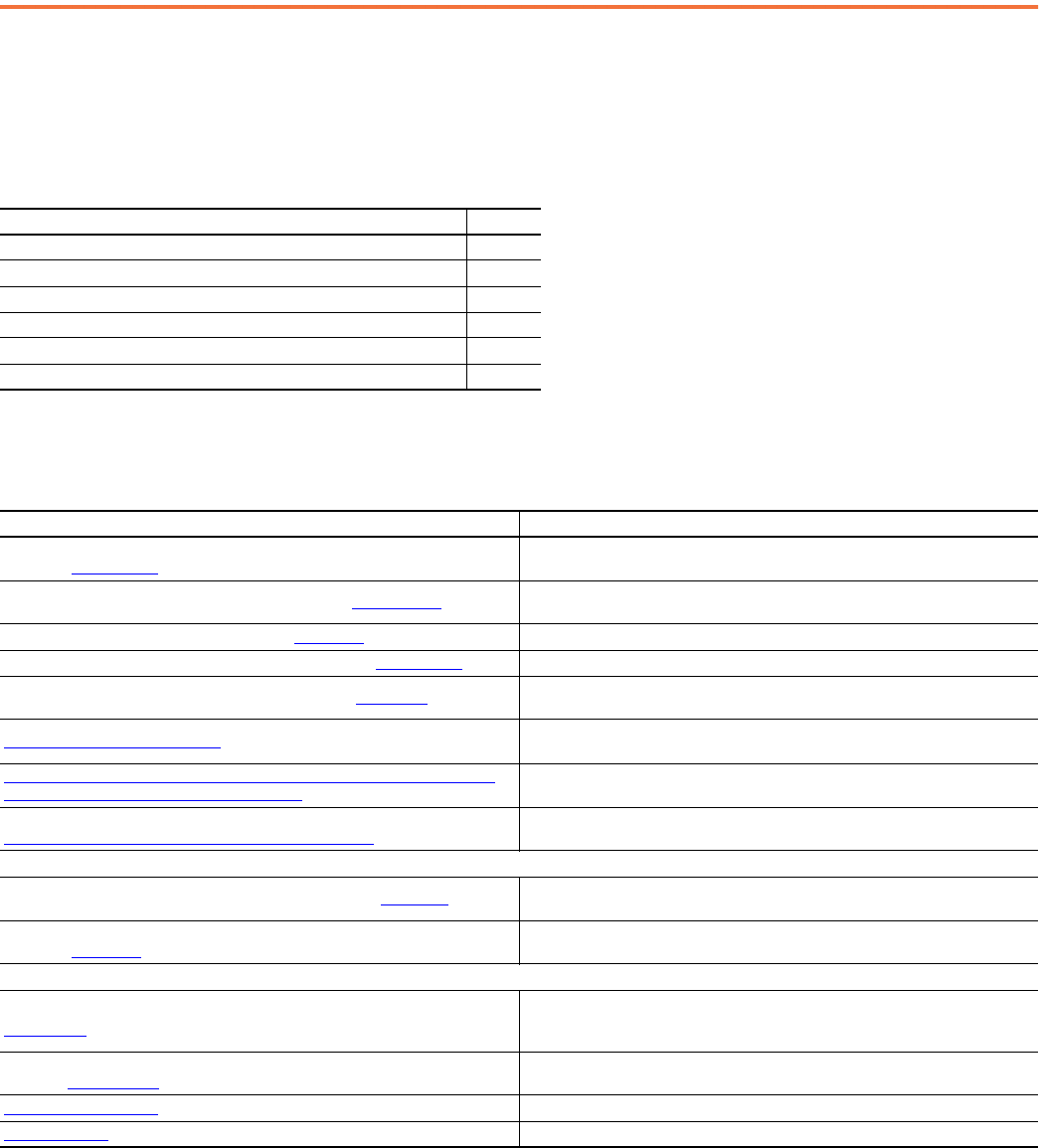
2 Rockwell Automation Publication PROCES-SG001T-EN-P - June 2024
PlantPAx Distributed Control System Selection Guide
The PlantPAx® system provides a modern approach to distributed control. The system shares common technology (Integrated Architecture®
system) with all other automation disciplines in the plant. This approach creates a seamless information flow across the plant for optimization
opportunities and enables a Connected Enterprise®. Our scalable platform provides you with the flexibility to implement a system appropriate for
your application.
What’s Inside
Additional Resources
These documents contain additional information concerning related products from Rockwell Automation.
Topic Page
Select a PlantPAx System 3
System Infrastructure 13
Servers and Workstations 21
Controllers, Field Networks, and I/O 35
Analytics 51
Process Safety Systems 55
Resource Description
PlantPAx Distributed Control System Configuration and Implementation User Manual,
publication PROCES-UM100
Provides procedures to configure infrastructure components for your
PlantPAx system.
Rockwell Automation Library of Process Objects, publication PROCES-RM200
Provides information on how to use the Process library, including the PlantPAx
Instructions and display elements.
FLEXHA 5000 I/O System User Manual, publication 5015-UM001 Provides information on how to use FLEXHA 5000™ I/O
PlantPAx Hardware Specifications and Certifications, publication PROCES-SR027
Provides information on PlantPAx system hardware specifications and certifications.
Process Automation System Training Curriculum, publication GMST-SP027
Describes the courses that are available for a better understanding of the
PlantPAx system.
https://www.rockwellautomation.com
Provides general information about Rockwell Automation process capabilities. From the
menu bar, select Products> Distributed Control Systems.
https://www.rockwellautomation.com/en-us/capabilities/process-solutions/process-
systems/distributed-control-system-migration.html
Features prerecorded webinars on the DCS migration program and capabilities for
process customers.
Product Compatibility and Download Center at
https://compatibility.rockwellautomation.com/Pages/home.aspx
Website helps you find product-related downloads including firmware, release notes,
associated software, drivers, tools, and utilities.
Infrastructure
Stratix Ethernet Device Specifications Technical Data, publication 1783-TD00
2
Contains product specifications, certifications, and catalog numbers for Ethernet switch
devices.
Converged Plantwide Ethernet (CPwE) Design and Implementation Guide,
publication ENET-TD001
Provides information on Ethernet security and firewalls.
Field Device Integration
Rockwell Automation Library of Intelligent Electronic Protection Devices, publication
PROCES-RM
211
This manual describes how to configure the Add-On Instructions and visualization
objects to integrate intelligent electronic protection devices by using IEC 61850 or
EtherNet/IP™ connectivity within the PlantPAx® System.
Integrate E+H Instruments in a PlantPAx System Integration Document,
publication PROCES-SG003
Provides pre-engineered, pre-tested, supported, and maintained integrated solutions for
plant-wide diagnostics and lifecycle management.
https://www.endress.com/ Products from Endress+Hauser.
Business p
artners Provides a comprehensive listing of searchable Rockwell Automation Business Parners.
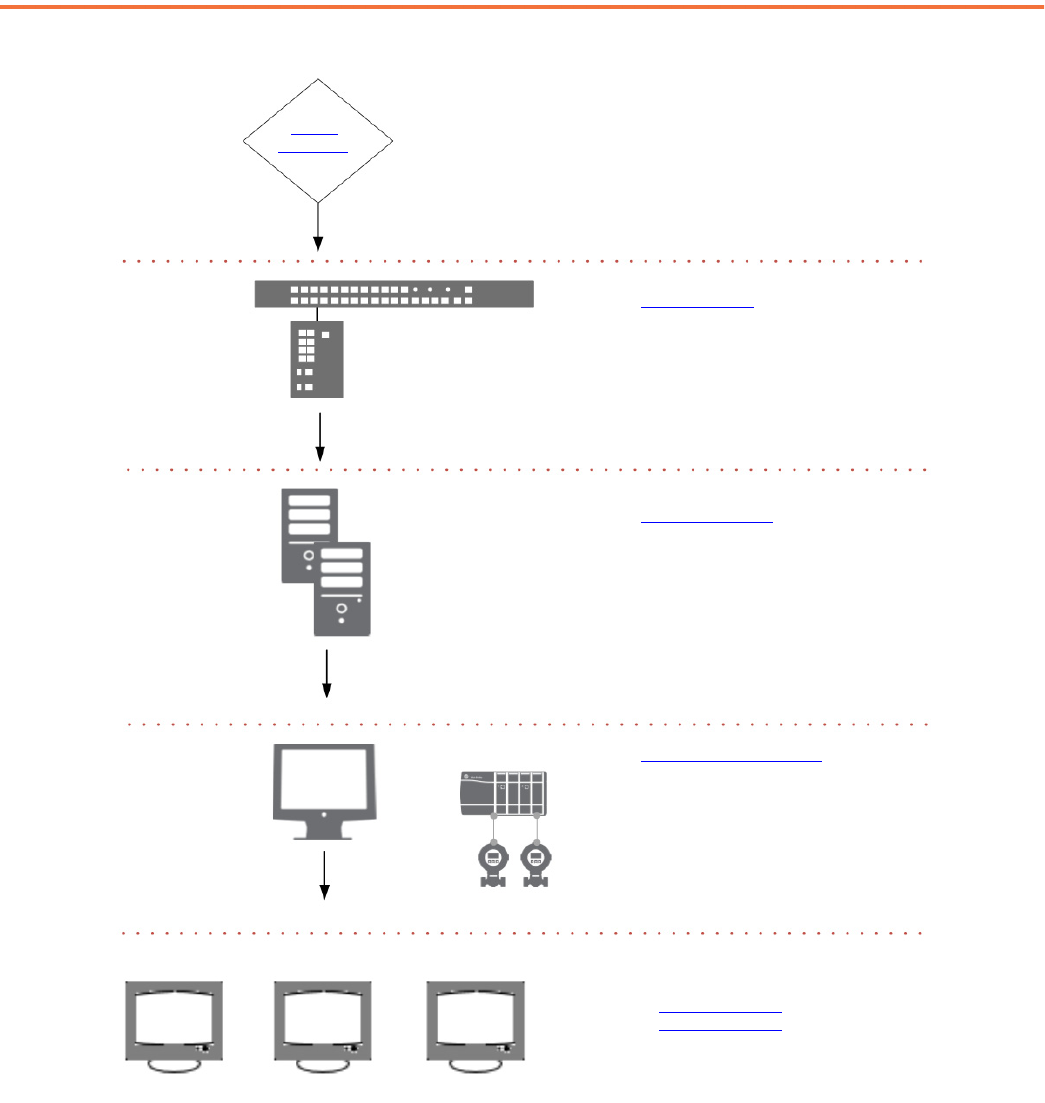
Rockwell Automation Publication PROCES-SG001T-EN-P - June 2024 3
Select a PlantPAx System
Scalable
Architectures
System Infrastructure
• Traditional infrastructure
• Virtual infrastructure
• VMware requirements
•Network topologies
• Ethernet switches
Servers and Workstations
•PASS servers
• Engineering workstations
• Operator workstations
• Independent workstations
• Application servers
• Domain controllers
Controllers, Field Networks, and I/O
• Simplex controllers
• Redundant controllers
• Skid-based controllers
•I/O products
• Process network I/O
• Motor Control devices
• Electrical Protection devices
Application-Specific Options
• Reporting and Analytics
• Process Safety Systems
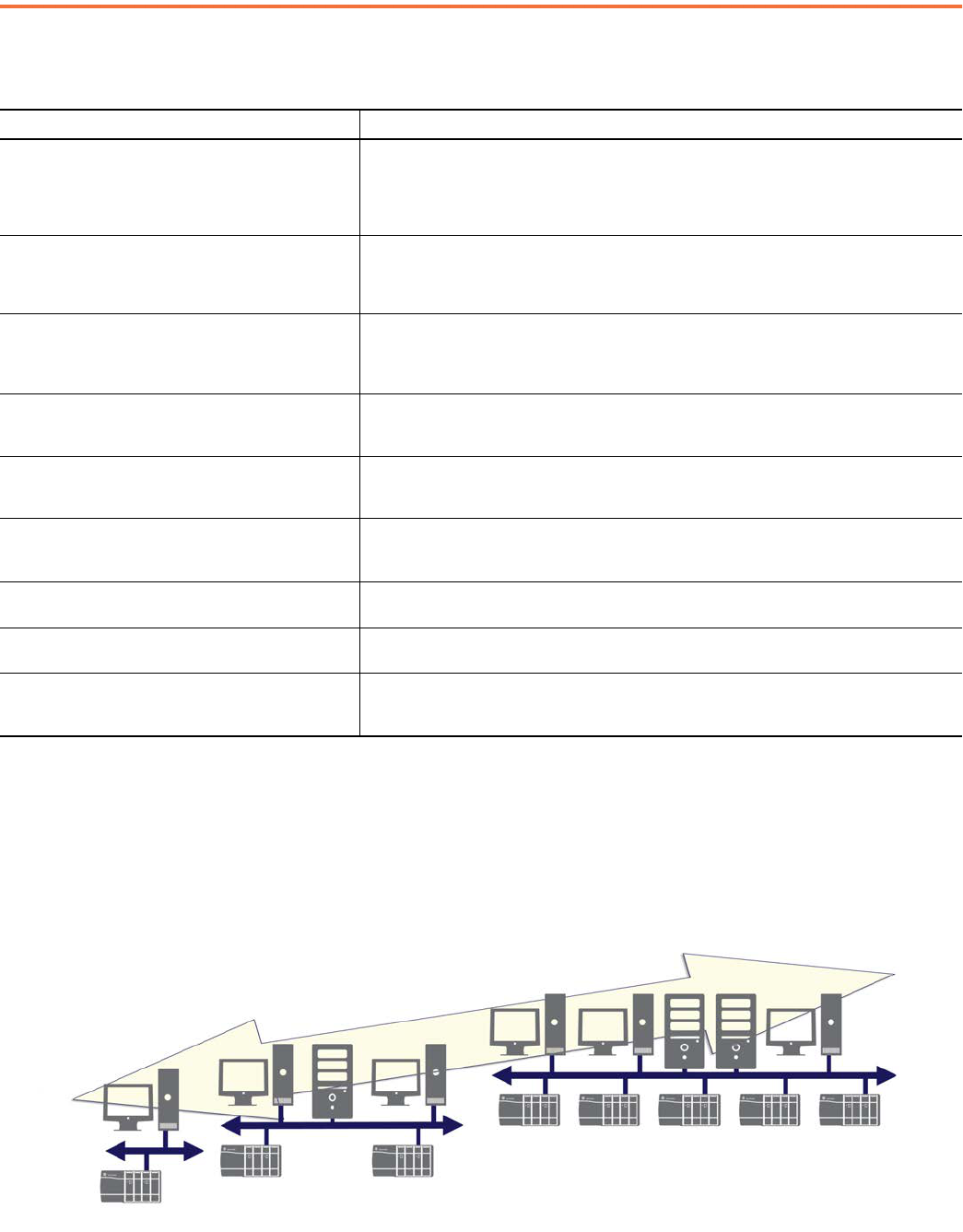
4 Rockwell Automation Publication PROCES-SG001T-EN-P - June 2024
A PlantPAx system consists of these system elements.
Scalable Architectures
Rockwell Automation characterizes the PlantPAx system that is based on its size or architecture class. A ‘characterized’ (system-tested)
classification yields system performance data and recommended hardware and software configurations. The classes of PlantPAx architecture offer
system scalability while organizing Integrated Architecture products consistent with process industry expectations.
The architecture classes include the following:
Table 1 - System Element Descriptions
System Element Description
Process Automation System Server (PASS)
The PASS is a required system element that can host displays, alarms, and data connections to controllers.
Multiple PASS servers can be used to provide additional system capacity or to create logical segregation of
application content that is based on the process.
For smaller systems, the PASS - C (consolidated PASS server) supports functions that otherwise would be
hosted on application servers.
Operator workstation (OWS) and Application server (AppServ-
OWS)
The OWS and AppServ-OWS provides an interactive graphical interface to monitor and control the process.
The AppServ-OWS uses Microsoft® Remote Desktop Services (RDS) technology to serve multiple instances of
the OWS as thin clients from one server. The technology provides for FactoryTalk® View SE thin clients that run
applications and process data on a remote computer.
Engineering workstation (EWS) and Application server (AppServ-
EWS)
The EWS and AppServ-EWS provides a central location for configuring the system and monitoring/maintaining
system operation. The AppServ-EWS uses Microsoft Remote Desktop Services (RDS) technology to serve
multiple instances of the EWS as thin clients from one server. The technology provides for FactoryTalk View SE
thin clients that run applications and process data on a remote computer.
AppServ-Asset management
The asset management server acts as a centralized tool for managing automation-related asset information
(both Rockwell Automation and third-party assets). The asset management application server includes
capabilities for asset inventory, source control, audits, change notifications, reporting, and security.
AppServ-Batch
The batch application server provides comprehensive batch management, including unit supervision, recipe
management, process management, and material management. The batch application server can be linked
with visualization elements on the OWS and configuration clients on the EWS.
AppServ-Info
Data management storage can include a Historian or Microsoft SQL server. There are two different types of
AppServ-Info servers depending on the function that is being provided: FactoryTalk® Historian software and
the Microsoft SQL server.
Controllers
The ControlLogix® and CompactLogix™ controllers support continuous process and batch applications. These
controllers also support discrete and motion applications.
Independent workstation (IndWS)
The independent workstation acts as a PASS, EWS, and OWS for single-station systems
(independent class).
Domain controller
A domain controller is a server that manages security authentication requests within the Windows® server
domain. PlantPAx uses a domain controller to store user account information, authenticate users, and enforce
security policies.
S
c
a
l
a
b
l
e
Distributed Architecture - Single to Multiple PASS Servers
Skid/ Station Architecture
Distributed Architecture - Single PASS Server

Rockwell Automation Publication PROCES-SG001T-EN-P - June 2024 5
Consideration
Skid Station Architecture
(FactoryTalk SE Station)
(small <2000 I/O)
Distributed Architecture
(single PASS (consolidated))
(small <2000 I/O)
Distributed Architecture
(single to multiple PASS
servers)
(medium= 2,000…10,000 I/O)
Distributed Architecture
(single to multiple PASS
servers)
(large = 10,000+ I/O)
FactoryTalk Directory
The FactoryTalk directory does not
require to be placed on a
standalone server.
The FactoryTalk directory does not
require to be placed on a
standalone server.
PlantPAx recommends that the
FactoryTalk Directory is placed on
a standalone server.
PlantPAx recommends that the
FactoryTalk Directory is placed
on a standalone server.
FactoryTalk Activation Server -
PlantPAx recommends that the
FactoryTalk Activation server is
placed on the FactoryTalk
Directory server.
PlantPAx recommends that the
FactoryTalk Activation server is
placed on the FactoryTalk
Directory server.
PlantPAx recommends that the
FactoryTalk Activation server is
placed on the FactoryTalk
Directory server.
Process Automation System Server
(PASS)
Note: If redundancy is required, a
secondary PASS is needed.
Single SE Station serves as PASS
and OWS in an independent
workstation.
Note: PanelView™ products require
PlantPAx 4.10 Library or earlier.
For smaller systems, one PASS-C
is required that
typically includes the following:
• FactoryTalk Directory server
•HMI server
•Data server
• Alarm and Event server
•EWS / OWS
The PASS-C supports functions
that would otherwise be hosted on
separate application servers. The
PASS-C single computer also
includes the following in a single
workstation:
• FactoryTalk Historian
• FactoryTalk AssetCentre
• Microsoft SQL Server
•FactoryTalk Batch
IMPORTANT: An additional PASS-C
is required for redundancy.
Note: Licensing per application is
separate from the PASS-C
template.
One PASS required that typically includes the following:
•HMI server
• Data server (Up to 2 Data services per PASS)
• Alarm and Event service
Note: Optional redundancy is available.
Note: Additional PASS Servers can be deployed to accommodate
additional data and alarm requirements. No additional FactoryTalk
licensing is required.
Engineering Workstation (EWS)
1 EWS required.
Provided separately
Included within PASS-C image
1 EWS required.
AppServ-EWS as needed
1 EWS required.
Can have as many as 5 active
and in use EWSs
AppServ-EWS as needed
Operator Workstation OWS (Clients)
Provided separately via
independent workstation or thin
client.
FactoryTalk View SE Station license
can transition to FactoryTalk View
SE Client for DCS integration.
Note: PanelView™ products require
PlantPAx 4.10 Library or earlier.
Max 10 OWS clients
Note: PASS-C requires additional
machines outside of PASS-C
image.
Can have as many as 120 OWS clients. AppServ-OWS as needed.
Controllers 1…5 Compact or ControlLogix 1…5 Compact or ControlLogix
ControlLogix Architecture
Actual count varies depending on application requirements. There’s
no hard limit to the number of controllers. The number of controllers
that can be supported per PASS (data server) depends on controller
selection, controller loading, and number of OWS.
Application Server - FactoryTalk
AssetCentre
Not applicable.
If attached to PlantPAx DCS,
confirm FactoryTalk AssetCentre
can access the skid's asset details.
Included within the PASS-C image
AppServ-Asset (FactoryTalk AssetCentre) is a required component
for the PlantPAx DCS.
Application servers
Not applicable. In chassis historian
and in controller batch capabilities
are available. Can be also
integrated with a distributed
architecture.
Included within the PASS-C image
AppServ-Batch as needed.
AppServ-Information Management
(FactoryTalk Historian or AppServ-
Information Management
AppServ-Batch as needed.
AppServ-Information
Management (FactoryTalk
Historian) as needed.
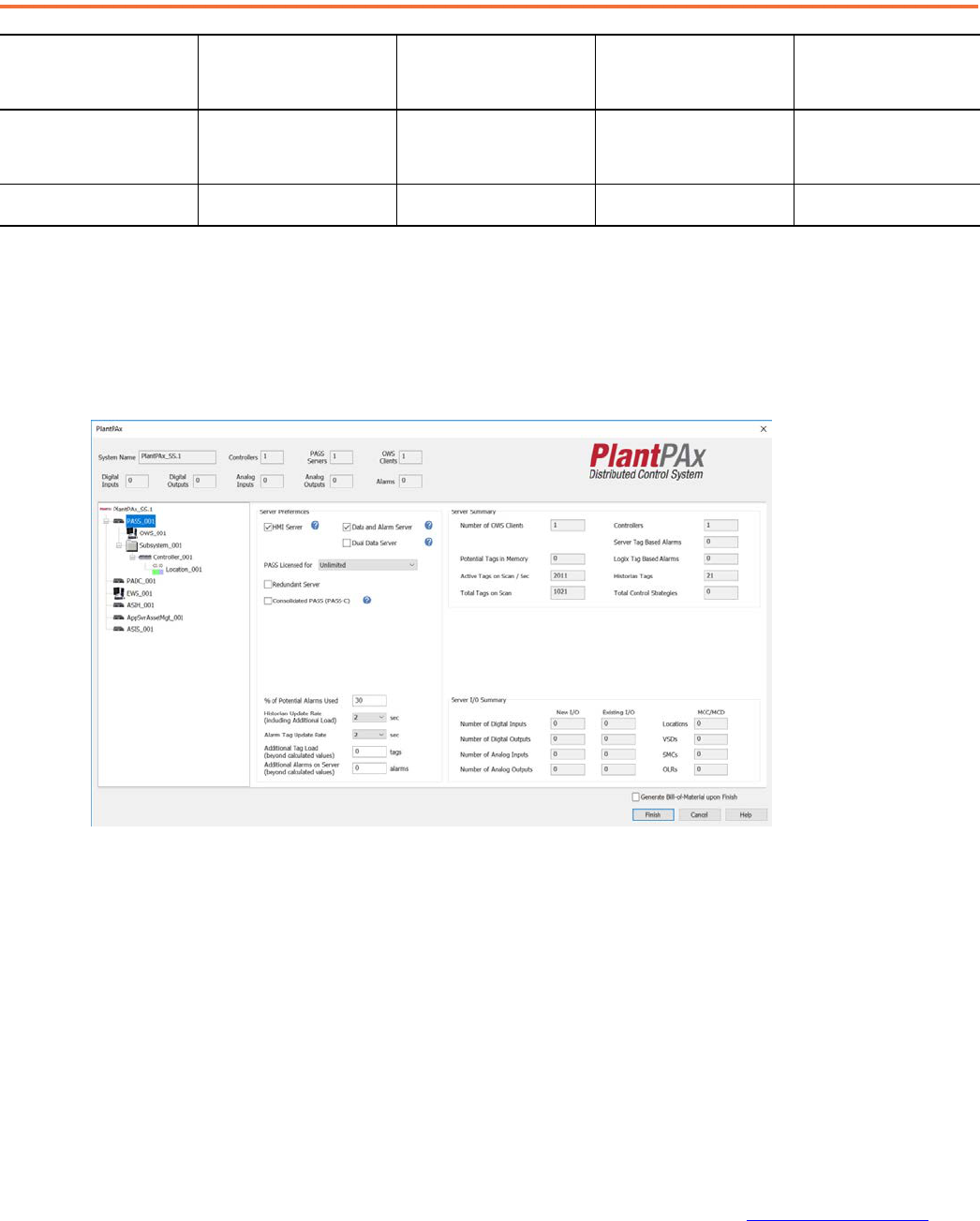
6 Rockwell Automation Publication PROCES-SG001T-EN-P - June 2024
PlantPAx System Estimator
Rockwell Automation offers the PlantPAx System Estimator tool as part of the Integrated Architecture Builder software. The System Estimator tool
lets you define your PlantPAx system and verifies that your architecture and system elements are sized properly.
The System Estimator tool provides helps you select system elements and size the system. The sizing guidelines are based on the rules and
recommendations from PlantPAx system characterization to achieve known performance and reliability.
The following items are created based on your inputs:
• Supervisory Ethernet network with all servers, operator, and engineering workstations and controller chassis
• List of required software catalog numbers
• List of network components per subsystem
• List of controllers, I/O, and process devices
After selecting the system elements as defined in this guide, use the PlantPAx System Estimator tool to modify their properties. You can then create
a bill of materials (BOM) with the Integrated Architecture Builder software. The BOM includes controllers, I/O, networks, drives, devices, and software
products that comprise your Distributed Control System.
To access the Integrated Architecture Builder software to use the PlantPAx System Estimator tool, download the Product Selection Toolbox™
.
Application Servers Info - SQL
Not applicable. If attached to
PlantPAx DCS, confirm that
FactoryTalk AssetCentre can
access.
Included within PASS-C image
It’s recommended that AppServ-
Info (SQL) is placed on its own
server.
It’s recommended that AppServ-
Info (SQL) is placed on its own
server.
Recommended Reference
Architecture
Simplex / DLR Simplex / DLR (Mix) Simplex / DLR / PRP (Mix) Simplex / DLR / PRP (Mix)
Consideration
Skid Station Architecture
(FactoryTalk SE Station)
(small <2000 I/O)
Distributed Architecture
(single PASS (consolidated))
(small <2000 I/O)
Distributed Architecture
(single to multiple PASS
servers)
(medium= 2,000…10,000 I/O)
Distributed Architecture
(single to multiple PASS
servers)
(large = 10,000+ I/O)

Rockwell Automation Publication PROCES-SG001T-EN-P - June 2024 7
Software Release Information
Performance guidelines are based on the use of the software versions listed. For new PlantPAx systems, we recommend that you use these
versions of software.
• Studio 5000 Logix Designer® application, version 36
• Studio 5000® Application Code Manager, version 4
• FactoryTalk® View software, version 14
• FactoryTalk® Batch software, version 16
• FactoryTalk AssetCentre software, version 13
• FactoryTalk Historian software, version 9
For the latest compatible software information, see the Product Compatibility and Download Center
.
Antivirus
PlantPAx recommends the installation of antivirus software on servers and workstations running industrial automation software. Although all
FactoryTalk software is expected to be compatible with the antivirus protections on the market, PlantPAx has been tested with Windows Defender
and Crowdstrike antivirus packages. These antivirus packages had no adverse effect on the performance of the PlantPAx Distributed Control
System when used with the default configurations.
Proper configuration, management, and updating of antivirus software is required. Any antivirus protection can impact operation if the
configuration of firewalls, network threat protections, and access controls is too restrictive.
CIP Security
PlantPAx recommends the use of CIP Security within the reference architectures for class 3 communications. Use the PlantPAx System Estimator to
properly size a system with CIP Security. PlantPAx tests found that CIP Security has minimal impact on system performance while using Integrity
protection for Class 3 communication between the plant servers and controllers.
PlantPAx also recommends using the Trusted Slot setting with the controller properties. Communication from the controller to other devices, such
as remote I/O modules and other controllers, are not impacted by using the Trusted Slot setting. When using the Trusted Slot setting, configuration
changes to the controller can only be made through selected networks (EN4TR with CIP security).
PlantPAx System ID
The PlantPAx System ID is a unique identifier that helps simplify the management of your system over its lifecycle. The System ID creates a record
of the installed products in your system and provides a dashboard that shows the hardware lifecycle status, notifications of updates and patches,
and compatibility information. Use this information to:
• Plan spare and replacement parts to better size inventory
• Define the boundaries of the system
• Plan when and where to implement system upgrades
Your system integrator uses the Asset Inventory Agent within a FactoryTalk AssetCentre project to generate a system inventory file. Before
delivering your system, your system integrator registers your System ID with Rockwell Automation and provides you directions on how to access
your MyEquipment portal.
The System ID is only available if you purchase a PlantPAx PASS Bundle. The PlantPAx PASS Activation serial number is the System ID.
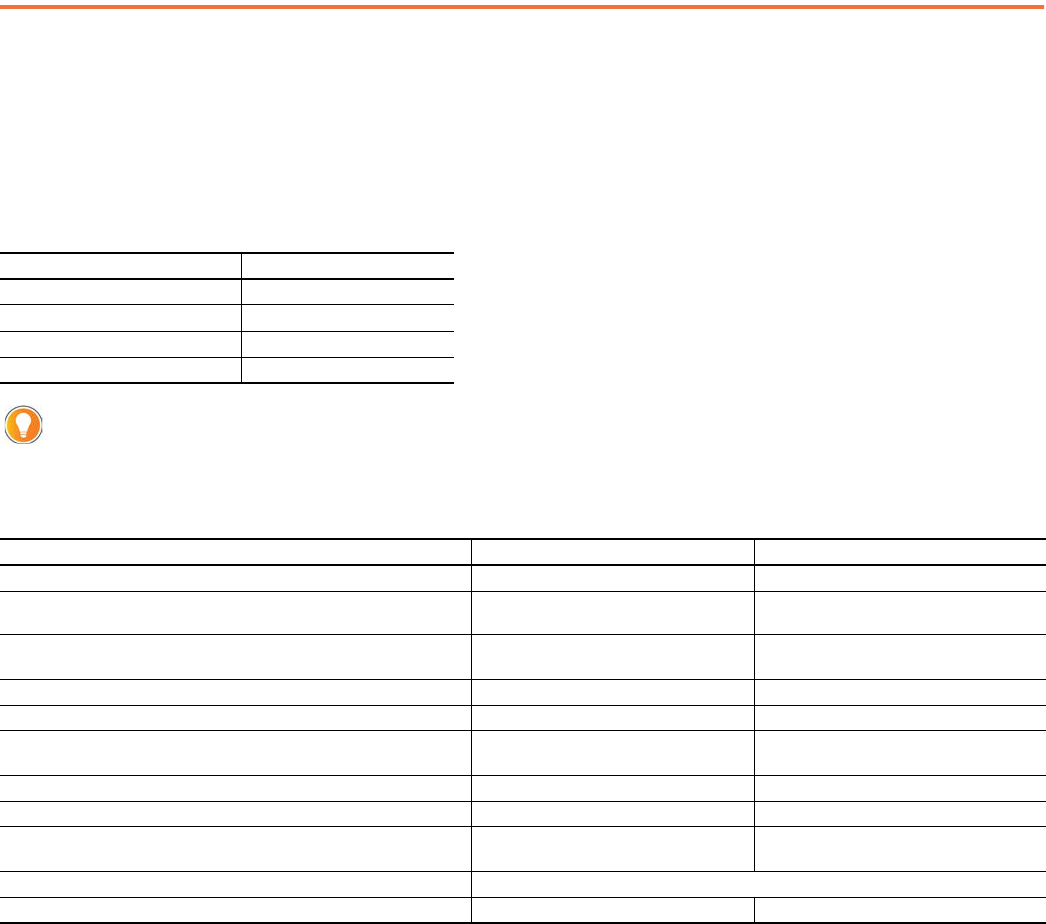
8 Rockwell Automation Publication PROCES-SG001T-EN-P - June 2024
PlantPAx Bundles
PlantPAx PASS Large 25 Client
This software bundle provides everything that you need to run a PlantPAx DCS system with 25 HMI client stations. Included in the bundle is an HMI
server with unlimited displays, 25 client stations, and unlimited browser-based HTML client connections. Core asset management and a PlantPAx
System ID are integrated into the bundle. Additional assets can be added under recommended products.
Included in the Bundle
Support / License Options Catalog Number
8 x 5 Support / Subscription License 9528C-PASS25T11
8 x 5 Support / Perpetual License 9528M-PASS25T11
24 x 7 Support / Subscription License 9528C-PASS25T12
24 x 7 Support / Perpetual License 9528M-PASS25T12
The catalog numbers in the previous table are for Electronic Software Delivery. To
order software in media format, append the catalog number with “M”.
For example: 9528C-PASS25T11M
Description Subscription License Perpetual License
FactoryTalk View SE Large Bundle: Unlimited Display Server™ with 25 Clients 9701-VWSVBDL25T1T 9701-VWSVBDL25T1TPE
FactoryTalk View SE Large Bundle: Unlimited Display Server with 25 Clients
Update
9701U-VWSVBDL25T1T 9701MU-VWSVBDL25T11
FactoryTalk View SE Large Bundle: Unlimited Display Server with 25 Clients
Support
RSSPN-VWSVBDL25T11 (8 x 5 Support)
RSSPN-VWSVBDL25T12 (24 x 7 Support)
RSSPM-VWSVBDL25T11 (8 x 5 Support)
RSSPM-VWSVBDL25T11 (24 x 7 Support)
FactoryTalk AssetCentre Base 9515-FTACT2T 9515-FTACBASEPE
FactoryTalk AssetCentre Base Update 9515U-FTACT2T 9515MU-FTACT2T
FactoryTalk AssetCentre Base Support
RSSPN-FTACT21 (8 x 5 Support)
RSSPN-FTACT22 (24 x 7 Support)
RSSPM-FTACT21 (8 x 5 Support)
RSSPM-FTACT22 (24 x 7 Support)
FactoryTalk AssetCentre Inventory Agent 9515-FTACTIAENT 9515-FTACTIAENTP
FactoryTalk AssetCentre Inventory Agent Update 9515U-FTACRT7T 9515MU-FTACRT71
FactoryTalk AssetCentre Inventory Agent Support
RSSPN-FTACRT71 (8 x 5 Support)
RSSPN-FTACRT72 (24 x 7 Support)
RSSPM-FTACRT71 (8 x 5 Support)
RSSPM-FTACRT72 (24 x 7 Support)
My Equipment Portal Subscription 9300-MYEQUIP
Activation 9528-PAXPASSCLI 9528-PAXPASSCLIPE
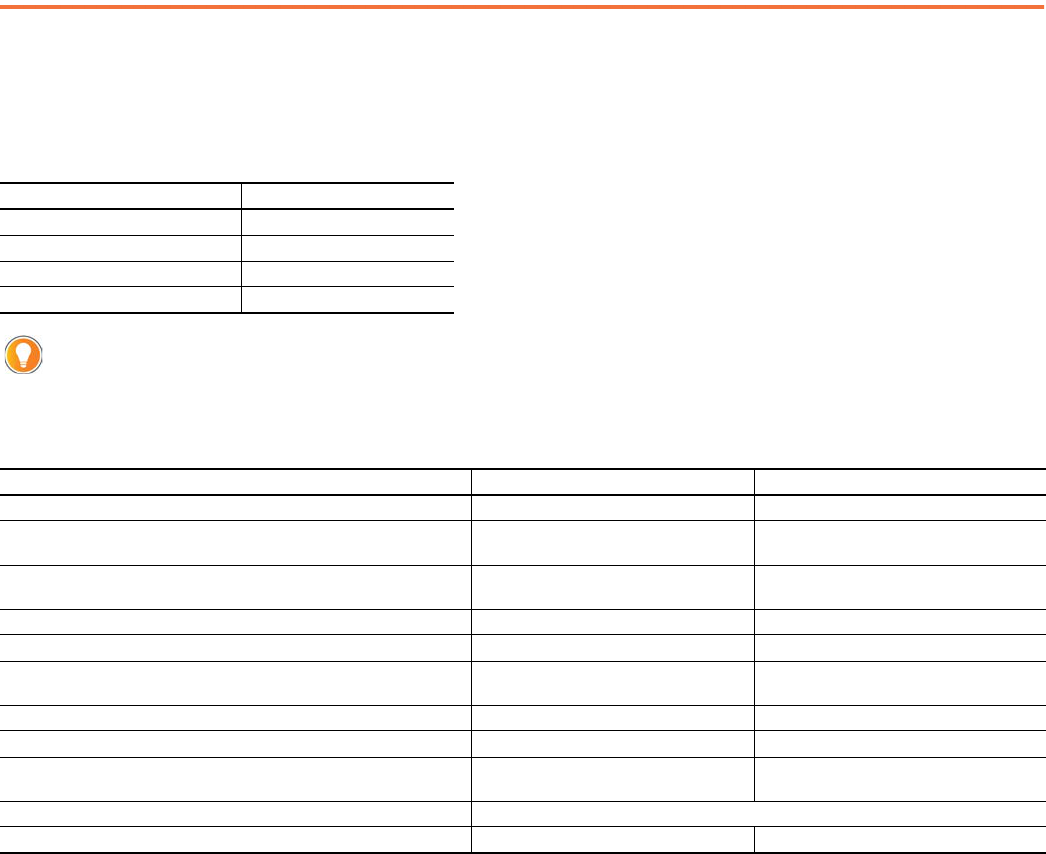
Rockwell Automation Publication PROCES-SG001T-EN-P - June 2024 9
PlantPAx PASS Medium 10 Client
This software bundle provides everything that you need to run a PlantPAx DCS system with 10 HMI client stations. Included in the bundle is an HMI
server with unlimited displays, 10 client stations, and unlimited browser-based HTML client connections. Core asset management and a PlantPAx
System ID are integrated into the bundle. Additional assets can be added under recommended products.
Included in the Bundle
Support / License Options Catalog Number
8 x 5 Support / Subscription License 9528C-PASS10T21
8 x 5 Support / Perpetual License 9528M-PASS10T21
24 x 7 Support / Subscription License 9528C-PASS10T22
24 x 7 Support / Perpetual License 9528M-PASS10T22
The catalog numbers in the previous table are for Electronic Software Delivery. To
order software in media format, append the catalog number with “M”.
For example: 9528C-PASS10T21M
Description Subscription License Perpetual License
FactoryTalk View SE Medium Bundle: Unlimited Display Server with 10 Clients 9701-VWSVBDL10T2T 9701-VWSVBDL10T2TPE
FactoryTalk View SE Medium Bundle: Unlimited Display Server with 10 Clients
Update
9701U-VWSVBDL10T2T 9701MU-VWSVBDL10T21
FactoryTalk View SE Medium Bundle: Unlimited Display Server with 10 Clients
Support
RSSPN-VWSVBDL10T21 (8 x 5 Support)
RSSPN-VWSVBDL10T22 (24 x 7 Support)
RSSPM-VWSVBDL10T21 (8 x 5 Support)
RSSPM-VWSVBDL10T22 (24 x 7 Support)
FactoryTalk AssetCentre Base 9515-FTACT2T 9515-FTACBASEPE
FactoryTalk AssetCentre Base Update 9515U-FTACT2T 9515MU-FTACT2T
FactoryTalk AssetCentre Base Support
RSSPN-FTACT21 (8 x 5 Support)
RSSPN-FTACT22 (24 x 7 Support)
RSSPM-FTACT21 (8 x 5 Support)
RSSPM-FTACT22 (24 x 7 Support)
FactoryTalk AssetCentre Inventory Agent 9515-FTACTIAENT 9515-FTACTIAENTP
FactoryTalk AssetCentre Inventory Agent Update 9515U-FTACRT7T 9515MU-FTACRT71
FactoryTalk AssetCentre Inventory Agent Support
RSSPN-FTACRT71 (8 x 5 Support)
RSSPN-FTACRT72 (24 x 7 Support)
RSSPM-FTACRT71 (8 x 5 Support)
RSSPM-FTACRT72 (24 x 7 Support)
My Equipment Portal Subscription 9300-MYEQUIP
Activation 9528-PAXPASSCLI 9528-PAXPASSCLIPE
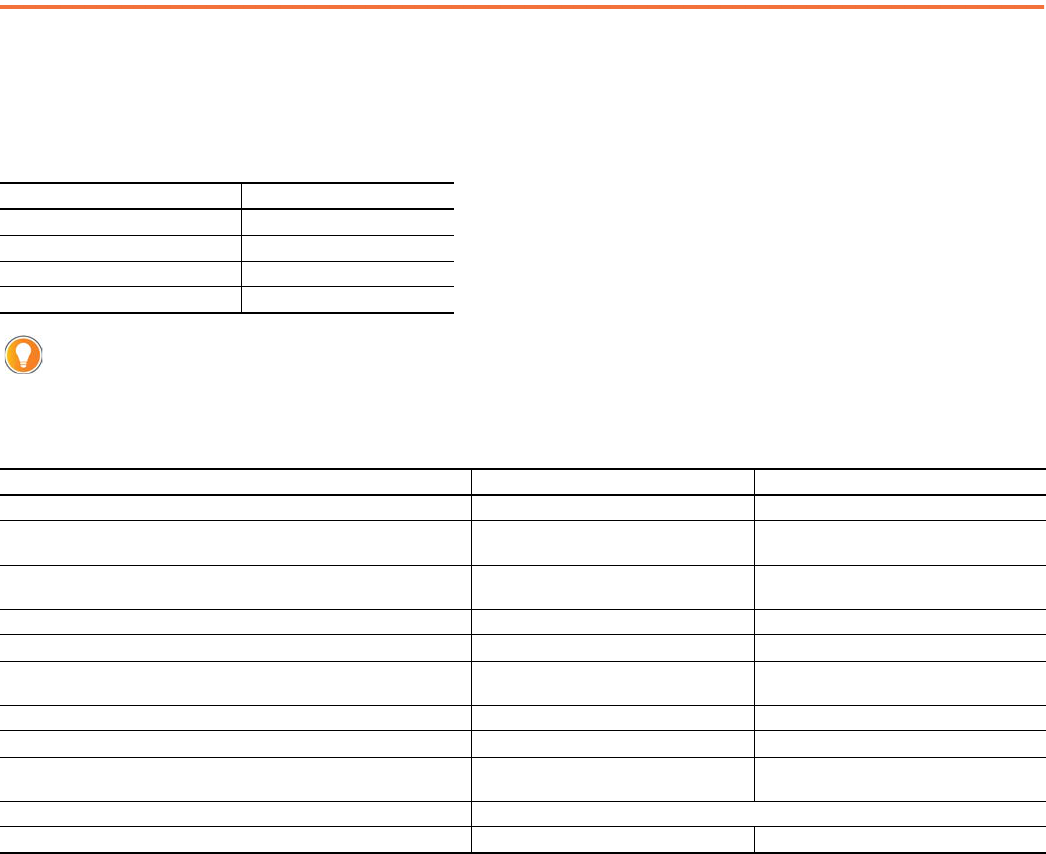
10 Rockwell Automation Publication PROCES-SG001T-EN-P - June 2024
PlantPAx PASS Small 5 Client
This software bundle provides everything that you need to run a PlantPAx DCS system with five HMI client stations. Included in the bundle is an HMI
server with unlimited displays, five client stations, and unlimited browser-based HTML client connections. Core asset management and a PlantPAx
System ID are integrated into the bundle. Additional assets can be added under recommended products.
Included in the Bundle
Support / License Options Catalog Number
8 x 5 Support / Subscription License 9528C-PASS05T31
8 x 5 Support / Perpetual License 9528M-PASS05T31
24 x 7 Support / Subscription License 9528C-PASS05T32
24 x 7 Support / Perpetual License 9528M-PASS05T32
The catalog numbers in the previous table are for Electronic Software Delivery. To
order software in media format, append the catalog number with “M”.
For example: 9528C-PASS05T31M
Description Subscription License Perpetual License
FactoryTalk View SE Small Bundle: Unlimited Display Server with 5 Clients 9701-VWSVBDL05T3T 9701-VWSVBDL05T3TPE
FactoryTalk View SE Small Bundle: Unlimited Display Server with 5 Clients
Update
9701U-VWSVBDL05T3T 99701MU-VWSVBDL05T31
FactoryTalk View SE Small Bundle: Unlimited Display Server with 5 Clients
Support
RSSPN-VWSVBDL05T31 (8 x 5 Support)
RSSPN-VWSVBDL05T32 (24 x 7Support)
RSSPM-VWSVBDL05T31 (8 x 5 Support)
RSSPM-VWSVBDL05T32 (24 x 7Support)
FactoryTalk AssetCentre Base 9515-FTACT2T 9515-FTACBASEPE
FactoryTalk AssetCentre Base Update 9515U-FTACT2T 9515MU-FTACT2T
FactoryTalk AssetCentre Base Support
RSSPN-FTACT21 (8 x 5 Support)
RSSPN-FTACT22 (24 x 7Support)
RSSPM-FTACT21 (8 x 5 Support)
RSSPM-FTACT22 (24 x 7Support)
FactoryTalk AssetCentre Inventory Agent 9515-FTACTIAENT 9515-FTACTIAENTP
FactoryTalk AssetCentre Inventory Agent Update 9515U-FTACRT7T 9515MU-FTACRT71
FactoryTalk AssetCentre Inventory Agent Support
RSSPN-FTACRT71 (8 x 5 Support)
RSSPN-FTACRT72 (24 x 7 Support)
RSSPM-FTACRT71 (8 x 5 Support)
RSSPM-FTACRT72 (24 x 7 Support)
My Equipment Portal Subscription 9300-MYEQUIP
Activation 9528-PAXPASSCLI 9528-PAXPASSCLIPE
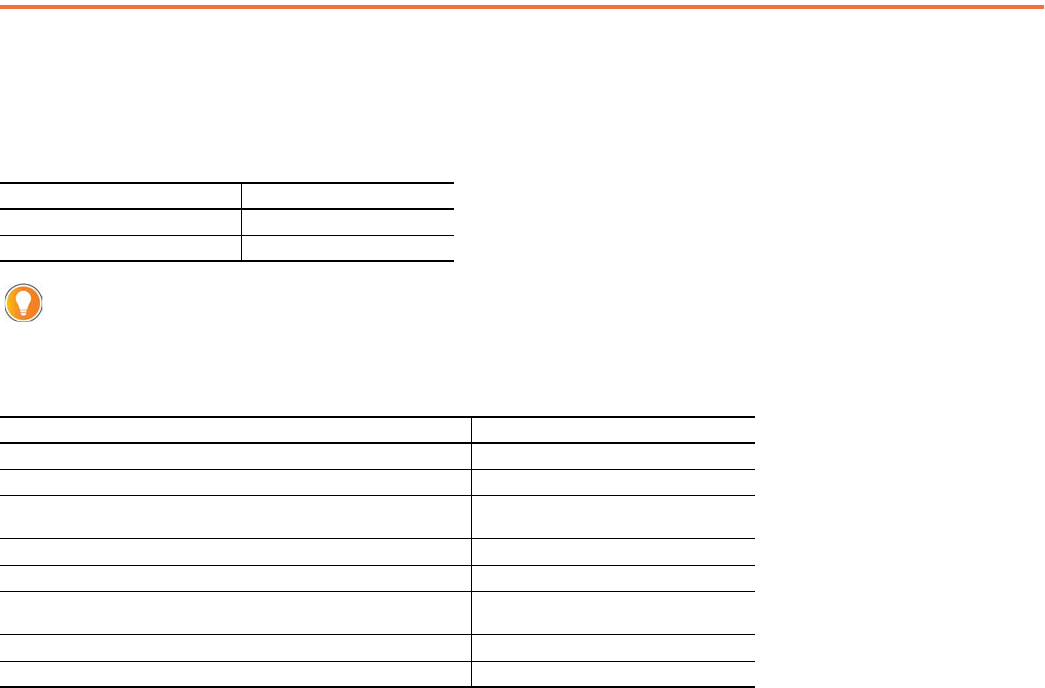
Rockwell Automation Publication PROCES-SG001T-EN-P - June 2024 11
PlantPAx PASS Upgrade
This software bundle provides a pathway for existing customers to get a PlantPAx System ID when modernizing their existing PlantPAx systems. The
PlantPAx System ID is integrated into this bundle with the same lifecycle management available in the standard PASS bundles. Additionally, it
provides a subscription to asset management software.
Included in the Bundle
Support Options Catalog Number
8 x 5 Support 9528C-PAXUPGT11
24 x 7 Support 9528C-PAXUPGT12
The catalog numbers in the previous table are for Electronic Software Delivery. To
order software in media format, append the catalog number with “M”.
For example: 9528C-PAXUPGT11M
Description Subscription License
FactoryTalk AssetCentre Base 9515-FTACT2T
FactoryTalk AssetCentre Base Update 9515U-FTACT2T
FactoryTalk AssetCentre Base Support
RSSPN-FTACT21 (8 x 5 Support)
RSSPN-FTACT22 (24 x 7Support)
FactoryTalk AssetCentre Inventory Agent 9515-FTACTIAENT
FactoryTalk AssetCentre Inventory Agent Update 9515U-FTACRT7T
FactoryTalk AssetCentre Inventory Agent Support
RSSPN-FTACRT71 (8 x 5 Support)
RSSPN-FTACRT72 (24 x 7Support)
My Equipment Portal Subscription 9300-MYEQUIP
Activation 9528-PAXPASSUPGE

12 Rockwell Automation Publication PROCES-SG001T-EN-P - June 2024
Notes:
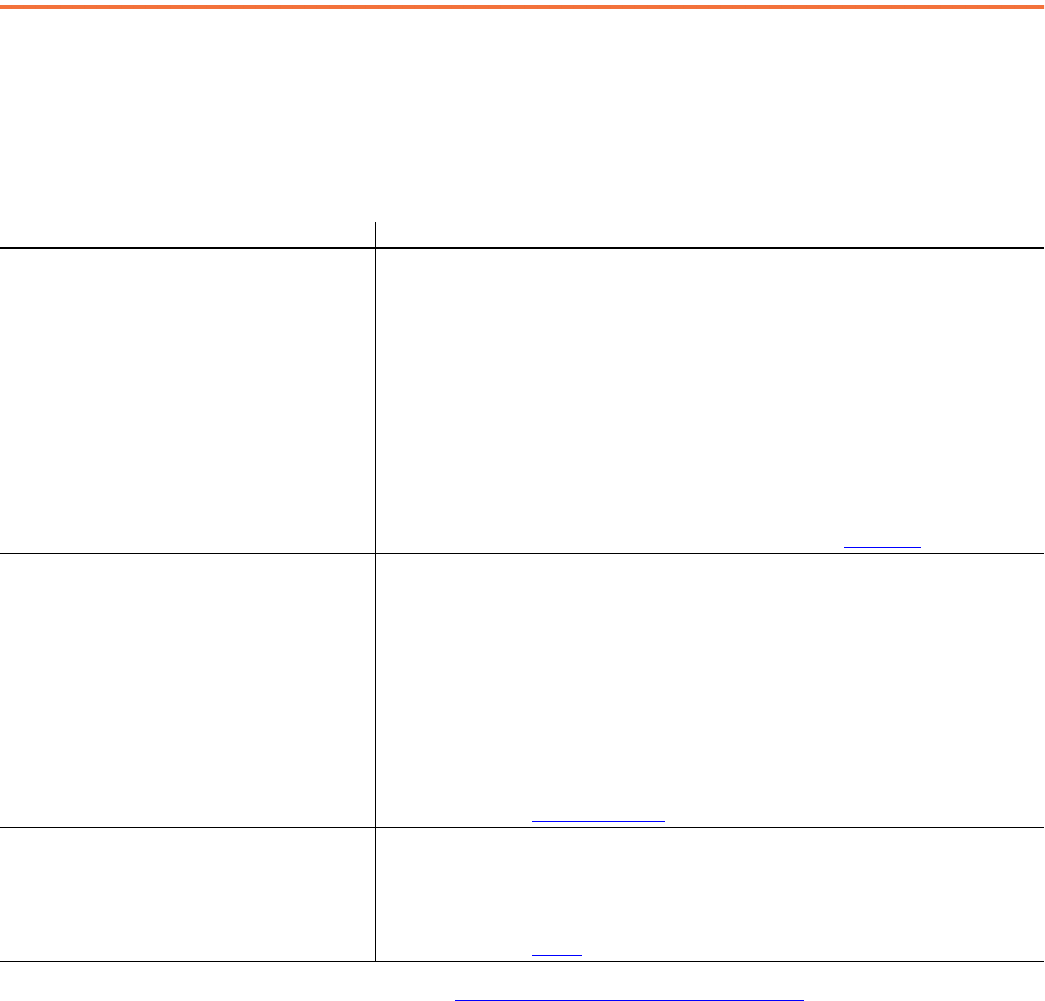
Rockwell Automation Publication PROCES-SG001T-EN-P - June 2024 13
System Infrastructure
Virtual Infrastructure
The necessary server elements in a PlantPAx installation are typically deployed as virtual machines. There are a range of means to deploy and
manage a virtual machine infrastructure. This section provides guidance on requirements when deploying a VMware vCenter environment for a
PlantPAx system.
If you’re considering virtualization, we suggest that you visit the Rockwell Automation Industrial Networks website
.
VMware Component Requirements
The VMware vCenter server provides a centralized platform for managing your VMware vSphere environments. The virtual desktop and virtual
server require resources from the physical infrastructure to operate. When you purchase hardware, consider future expansion plans by adding an
additional 20…30% of resources. VMware makes it simple to scale the system size upward by adding servers in the future to provide additional
resources.
Remember to divide the total system requirements by the minimum number of servers that are required to run the system at any given time. For
example, with a three-server system that uses VMware fault tolerance or high availability, you divide by two. This type of calculation makes sure
that the system can continue to run with two servers if one server fails.
Table 2 - Virtual Infrastructure Components
Model Type Description
Industrial Data Center
• E-2000 supports 2 host servers
• E-3000 supports 3 host servers
The Industrial Data Center (IDC) is a centralized hub for hosting virtual servers and workstations. The IDC pre-
assembled unit includes on-site commissioning of your system by a Rockwell Automation representative.
Each IDC is in a cabinet (19 in.) that includes host servers and the following:
• Rockwell Automation support
•1 management server
• Software defined storage
• VMware vSphere standard
• VMware vCenter standard
• Redundant server access switches
• Virtual machine backup solution
Optional items:
• Expands up to 10 physical servers
• UPS or redundant UPS
• Thin clients
For purchase information, contact your local distributor or Rockwell Automation sales representative. Provide the
representatives with a list of applications that you plan to deploy in an IDC.
For more information, see the Industrial Data Center Product Profile, publication GSMN-PP001.
VersaVirtual™ Appliance
• VersaVirtual 1000 supports 1 host server
• VersaVirtual 2000 supports 2 host servers
The VersaVirtual Appliance is a hyperconverged (computing, networking, and storage) appliance for entry-level
virtualization in a managed environment. One server can run multiple operating systems. The appliance can
support as many as 15 applications.
Each application includes the host servers and the following:
• Rockwell Automation support
• Pre-engineered and configured virtualization software
• 1 management server (VersaVirtual 2000 only)
• Software defined storage (VersaVirtual 2000 only)
• VMware vSphere standard
• VMware vCenter foundation
• 2x10G copper uplink ports
For more information, see VersaVirtual Appliance.
Stratus ztC Edge
•Stratus ztC Edge 250i
ztC Edge from Stratus brings the benefits of virtualization and fault-tolerant computing to the industrial edge.
Rugged, hot-swappable nodes can deploy on DIN rails inside the control cabinet. Run a PASS-C with additional
capabilities on the ztC Edge to form a solution-in-a-box for smaller locations.
For purchase information, contact your distributor.
For more information, see ztC Edge
.
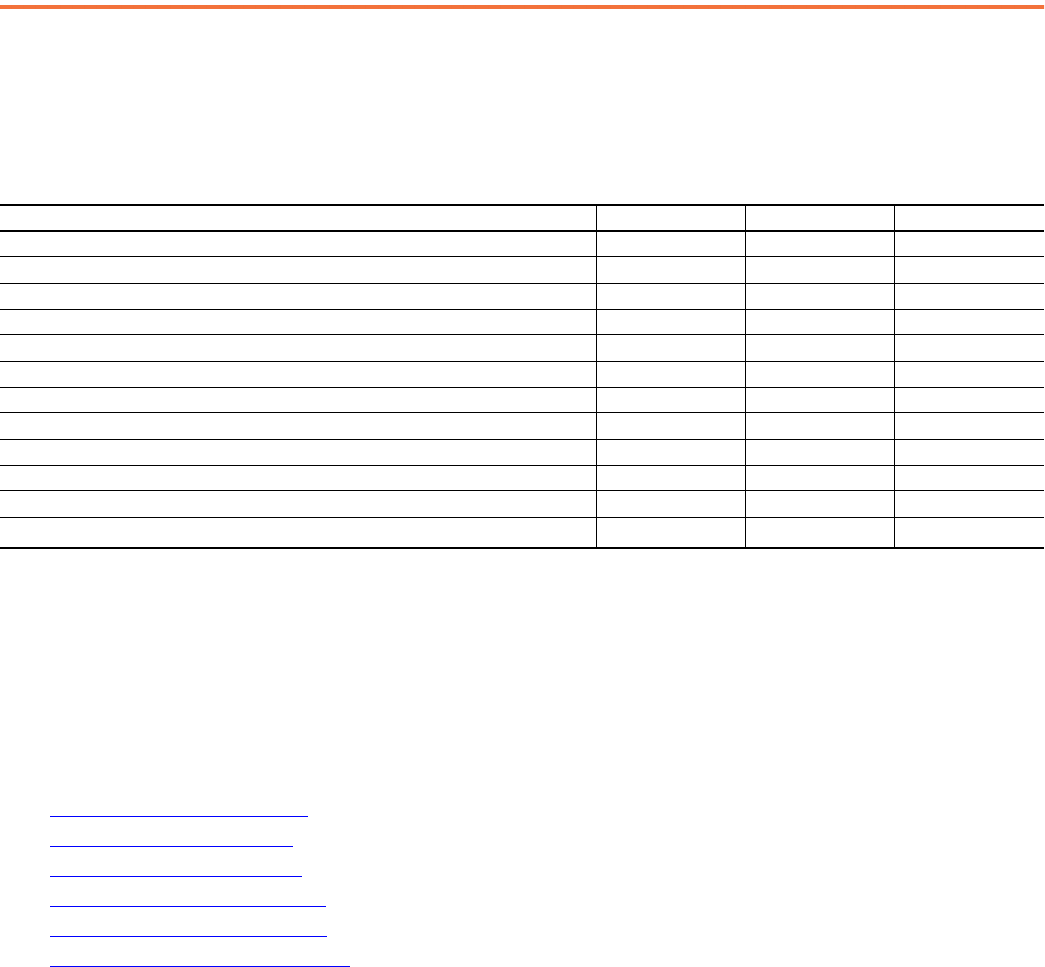
14 Rockwell Automation Publication PROCES-SG001T-EN-P - June 2024
VMware Sizing
Virtual Machines are limited by the CPU megahertz of the physical core. A common misconception is that a VM can use as much CPU megahertz as
needed from the combined total available. One vCPU VM never uses more megahertz than the maximum of one CPU/core. If a VM has two vCPUs, it
never uses more megahertz than the maximum of each CPU/core.
Reference Network Topologies
PlantPAx reference topologies take advantage of converged architectures, that support:
• Access to device webpages throughout the architecture
• Access to the data in smart process devices from outside the local network
These reference topologies include:
• Example 1: Redundant PRP Topology
• Example 2: Resilient DLR Topology
• Example 3: Simplex - Star Topology
• Example 4 A: PRP Skid and MCC Lineup
• Example 4 B: DLR Skid and MCC Lineup
• Example 4C: Simplex Skid and MCC Lineup
Table 3 - CPU and PlantPAx Resource Requirements
Server and Workstation Type vCPU vRAM (GB) vHardDisk (GB)
Process Automation Domain Controller (PADC) 1 4 40
Process Automation System Server (PASS) 8 16 60
Process Automation System Server - Consolidated (PASS-C) 16 32 120
Operator Workstation (OWS) 2 4 40
Engineering Workstation (EWS) 4 8 100
Operator Workstation Application Server (AppServ-OWS) 8 16 60
Engineering Workstation Application Server (AppServ-EWS) 8 16 100
Information Management Application Server Historian (AppServ-Info Historian) 8 8 120
Information Management Application Server SQL (AppServ-Info SQL) 2 4 120
Asset Management Server (AppServ-Asset) 4 16 60
Batch Management Server (AppServ-Batch) 2 8 60
VMware vCenter Server
(1)
(1) These requirements are for vCenter version 8.0. Depending on the version of vCenter used, these requirements may change. Verify the requirements with VMWare.
214600
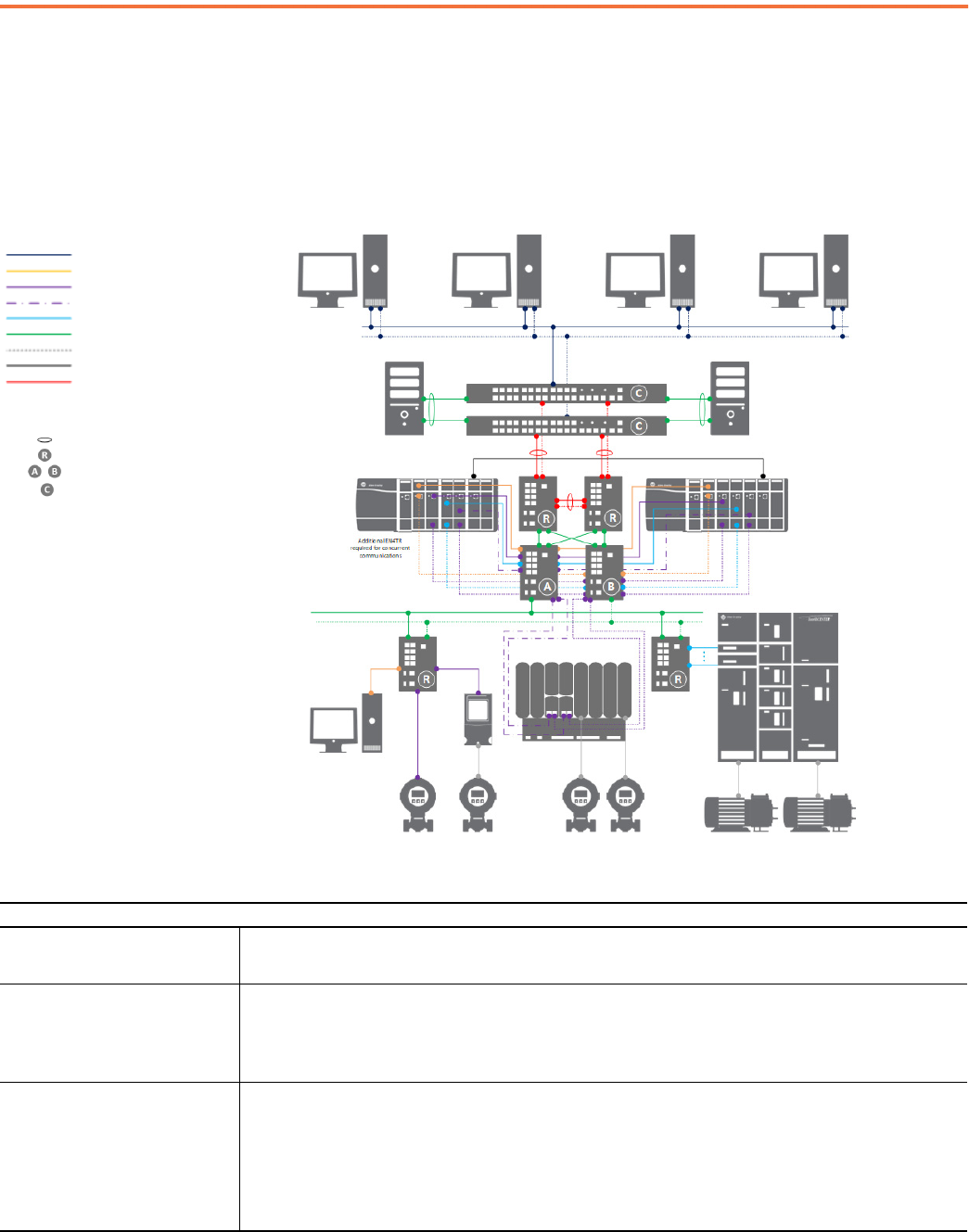
Rockwell Automation Publication PROCES-SG001T-EN-P - June 2024 15
Example 1: Redundant PRP Topology
Redundant PRP topology is used for critical operations, and includes infrastructure duplication, multiple fault tolerance capability, zero recovery
time within the PRP zone, and minimal recovery time for traffic leaving the PRP zone. Redundant PRP recommendations include:
• 10 controllers per topology (pair of redundant Redboxes)
• In a redundant Redbox configuration, do not connect anything other PRP and uplink ports
• Ports in the PRP channel group can’t be configured for other resiliency protocol, such as DLR or Resilient Ethernet Protocol (REP).
Table 4 - Properties of Example 1 Architecture
Redundant PRP Topology
Why would I select this architecture?
Most robust option for operations that require high availability. PRP requires double the cabling and components to establish no single
point of failure. For a true no single point of failure capabilities, PlantPAx recommends redundant power sources along with separate
physical paths for media.
What protocols does it use?
• Implementation of EtherChannel for hardware redundancy between servers and workstations
• EIGRP (Enhanced Interior Gateway Routing Protocol) provides Layer 3 routing capabilities
• HSRP provides redundant PRP ‘RedBox’ functionality
• PRP provides dual connectivity between two devices
• RedBox (redundancy box) is a switch with PRP technology that connects devices without PRP technology to both LAN A and LAN B
What components do I need?
• Cisco® Catalyst® 9300 switch
• Redundant application servers via physical or virtualized environments
• Pair of Layer 3 PRP enabled Stratix® switches:
–Stratix 5800
• Duplicate LAN A/B Layer 2 infrastructure switches:
–Stratix 5800
–Stratix 5200
• 1756, 5015 and 5094 I/O families support PRP
FLEXHA 5000
(Concurrent)
Application Servers
(Hypervisor)
EWS/OWS
LAN A
LAN B
Supervisory Network (VLAN 601)
Control Network - Default (VLAN 501)
Layer 3 Routed Point-to-Point
Trunk - (Native VLAN 300)
Secondary Connection
Logix Redundancy (RM)
EtherChannel
RedBox (PRP)
LAN-A / LAN-B (PRP)
Cisco Stack Member
Operator and
Engineering
Workstations
Control Network - I/O (VLAN 502)
Control Network - MCC (VLAN 503)
HSRP
Pair
Control Network - Concurrent Comms
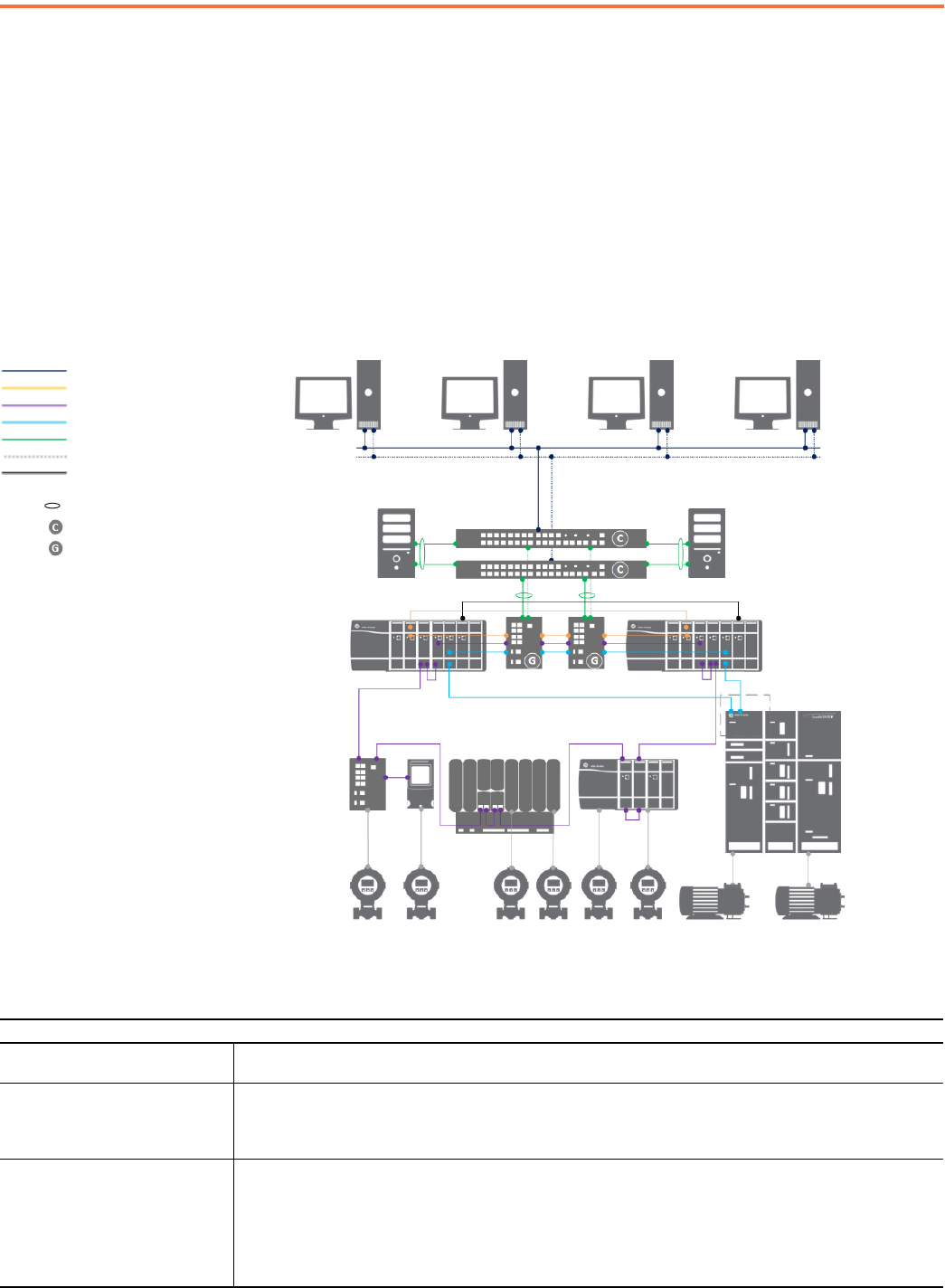
16 Rockwell Automation Publication PROCES-SG001T-EN-P - June 2024
Example 2: Resilient DLR Topology
Resilient DLR topology helps prevent communication loss between devices if a fault occurs. Multiport devices (embedded EtherNet/IP™ ports)
equipped with DLR technology connect directly to neighboring nodes and form a ring topology at the end devices. If a break in the network is
detected, the network provides an alternate forwarding path for the data to help recover the network. DLR recommendations include:
• 10 controllers per topology
• In a dual gateway configuration, do not connect anything other DLR and uplink ports
• Maximum of 50 switch nodes per ring
• Single VLAN per ring
• PlantPAx does not recommend DLR trunking or DLR DHCP
• Place at least 1 meter of cable between each DLR device
• Additional EN4TR required for concurrent communications
Table 5 - Properties of Example 2 Architecture
Resilient DLR Topology
Why would I select this architecture?
This architecture provides a means to detect, monitor, manage, and recover from one fault ring-based network. You can use
redundant gateways to provide DLR network resiliency to the rest of the network.
What protocols does it use?
• Implementation of EtherChannel for hardware redundancy between servers and workstations
• EIGRP (Enhanced Interior Gateway Routing Protocol) provides Layer 3 routing capabilities; this protocol is used within the Cisco®
Catalyst® switches
• DLR is a ring topology that recovers after one point of failure (3 msec or less)
What components do I need?
• Cisco Catalyst 9300 switch
• Redundant application servers via physical or virtualized environments
• DLR gateway capable switches
• DLR capable Stratix switches
• DLR capable Ethernet modules
Check I/O device specifications to verify DLR support.
Operator and
Engineering
Workstations
Application Servers
(Hypervisor)
EtherChannel
Cisco Stack
DLR Gateway
Supervisory Network (VLAN 601)
Control Network - Default (VLAN 501)
Trunk - (Native VLAN 300)
Secondary Connection
Logix Redundancy (RM)
Control Network I/O (VLAN 502)
Control Network MCC (VLAN 503)
FLEXHA 5000
(Concurrent)
Additional EN4TR required for
concurrent communications.
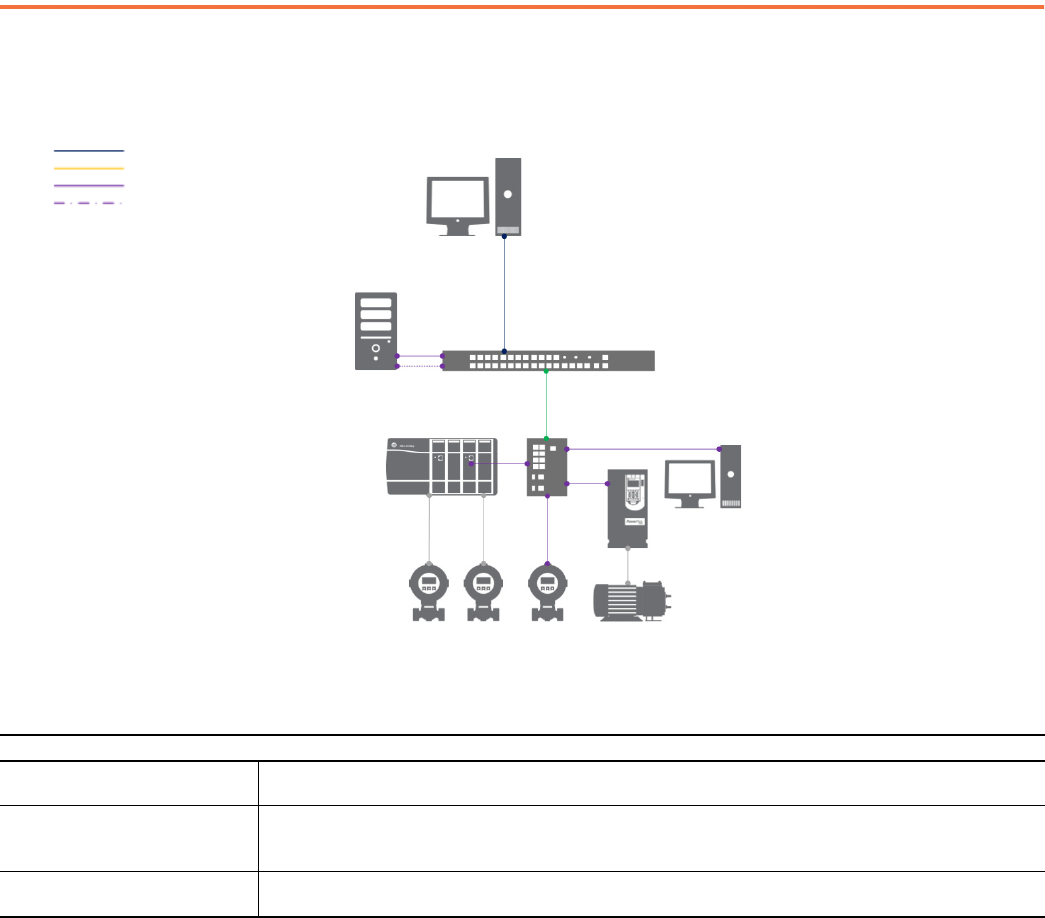
Rockwell Automation Publication PROCES-SG001T-EN-P - June 2024 17
Example 3: Simplex - Star Topology
Simplex - Star topology features single network connections throughout the topology. There’s no redundancy so connected nodes can’t
communicate on the network if there’s a network failure.
Table 6 - Properties of Example 3 Architecture
Simplex - Star Topology
Why would I select this architecture?
This architecture provides a basic network configuration. You can monitor and control non-critical equipment. However, there’s no
ability to recover from an architectural fault.
What protocols does it use?
• EtherNet/IP™ backbone between devices in a star topology
• EtherChannel is optional
• NIC teaming is optional.
What components do I need?
• Layer 2 Stratix switches
• Ethernet capable devices
Field Devices
Primary Controller
Operator and
Engineering
Workstation
ControlLogix I/O
Application Server
Cisco 9300 (stacking)
Supervisory Network
Control Network
Trunk - (Native
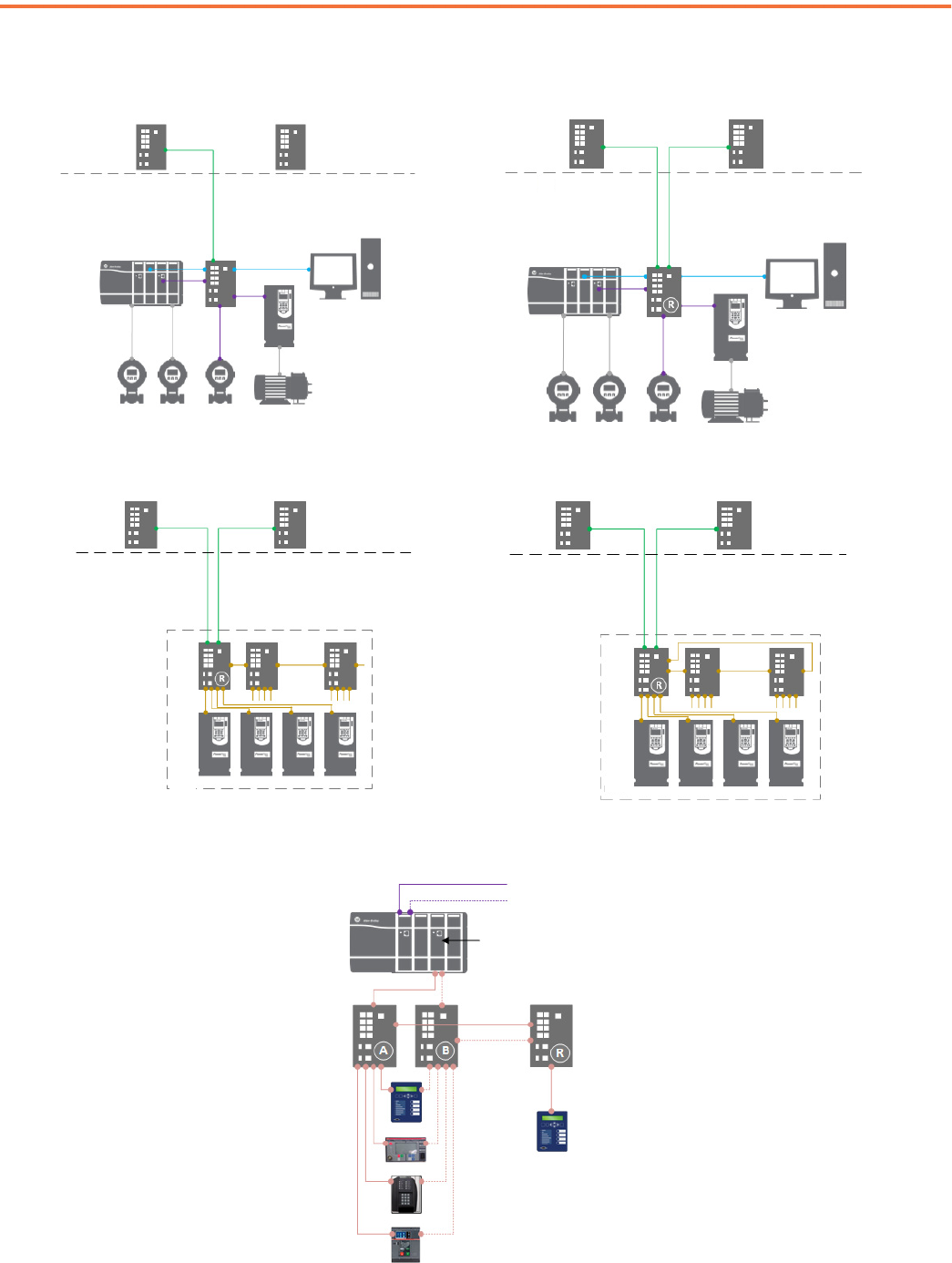
18 Rockwell Automation Publication PROCES-SG001T-EN-P - June 2024
Example 4 A: PRP Skid and MCC Lineup
PRP DCS LAN A/B Infrastructure
DCS
Skid
RedBox
VDAN Support
PRP Simplex Connection to Either LAN A/B
LAN A LAN BLAN A LAN B
DCS
Skid
PRP MCC RedBox Connected to LAN A and LAN B
DCS
Skid
LAN A LAN B
PRP MCC Connected to LAN A/B with DLR Ring
Ring
LAN A LAN B
DCS
MCC
MCC
Skid
RedBox VDAN Support RedBox VDAN Support
Redundant-PRP IEC 61850
PRP Network
LAN A / LAN B
IEC 61850 ModuleIEC 61850 Module
IED Devices (PRP)
IED Devices (Non-PRP)
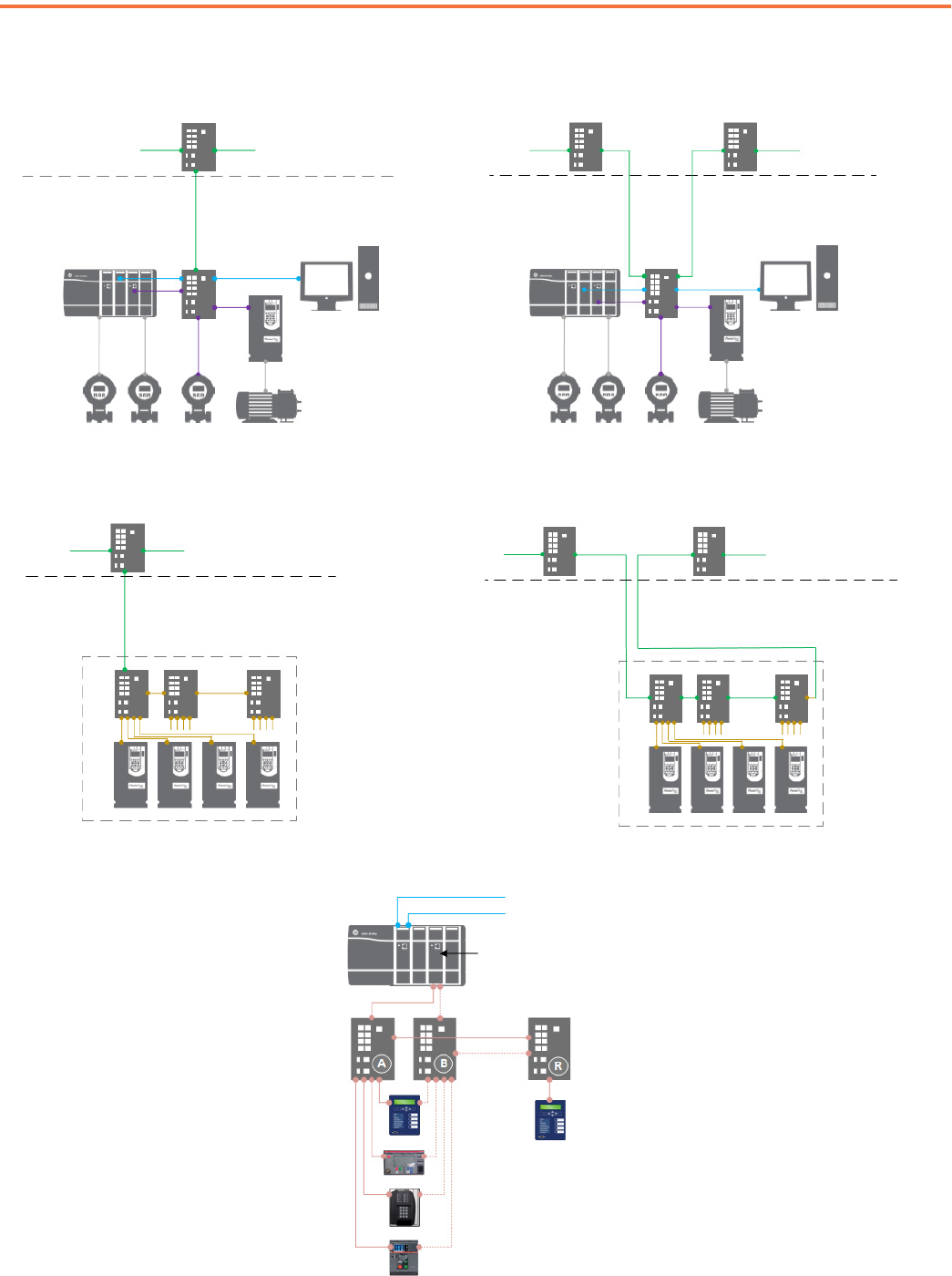
Rockwell Automation Publication PROCES-SG001T-EN-P - June 2024 19
Example 4 B: DLR Skid and MCC Lineup
DLR Simplex Connection to Either LAN A/B
DLR Member
DLR DCS Integration
DLR Member DLR Member
Skid access switch
is DLR member
DCS
Skid
DCS
Skid
DLR Simplex/MCC Connection to DLR Ring Switch
DLR Member
DCS
Skid
MCC
DLR Member DLR Member
DCS
Skid
Ring (DLR)
MCC
DLR MCC Lineup as part of the DCS DLR Ring
Resilient-DLR IEC 61850
DLR Network
IEC 61850 Module
IED Devices (PRP)
IED Devices (Non-PRP)
PRP or simplex is used when connecting IEDs to in-chassis
IEC 61850 module. Chassis containing IEC 61850 module can
be connected to DLR network via 1756-EN4TR module.
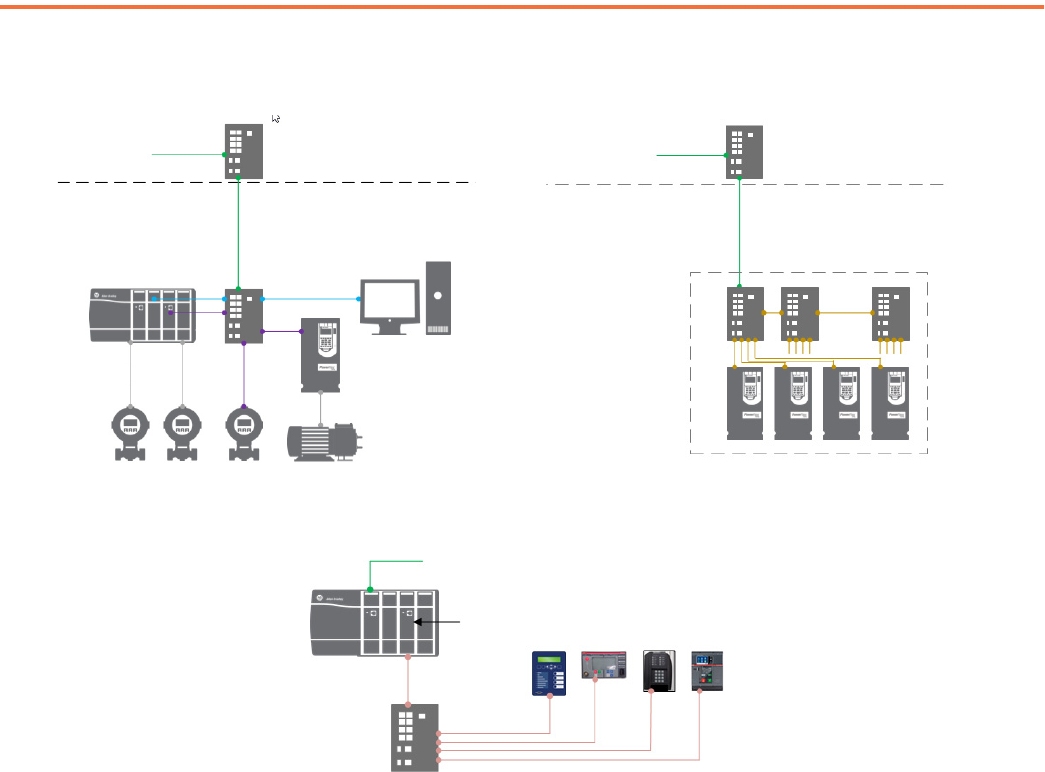
20 Rockwell Automation Publication PROCES-SG001T-EN-P - June 2024
Example 4C: Simplex Skid and MCC Lineup
Simplex Connection to Simplex DCS
Skid
DCS
Simplex MCC Connection to Simplex DCS
DCS
Skid
MCC
Simplex IEC 61850
Simplex Network
IEC 61850 Module
IED Devices
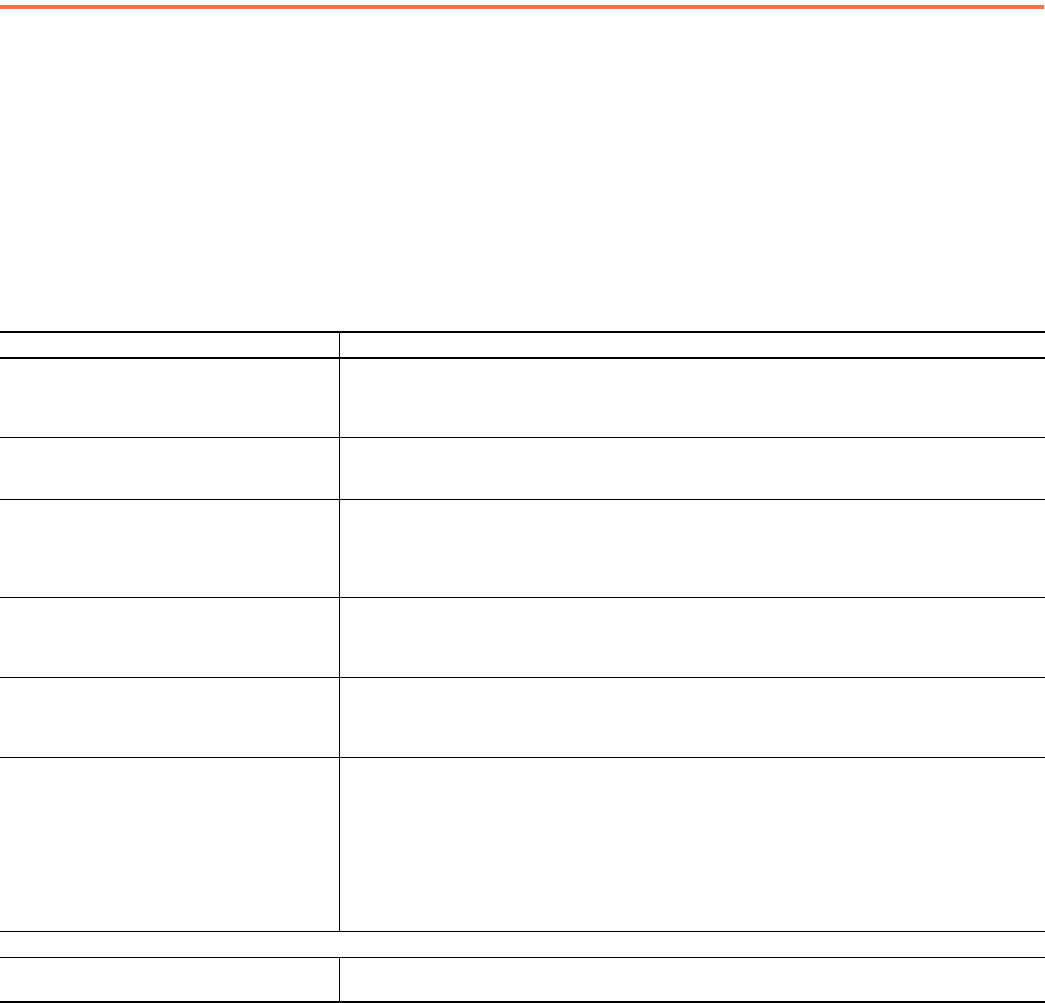
Rockwell Automation Publication PROCES-SG001T-EN-P - June 2024 21
Servers and Workstations
The supervisory layer of the PlantPAx system can include several servers and workstations. This section explains the server and workstation
system elements to help you define a bill of materials.
PASS Servers
The Process Automation System Server (PASS) is a required system element that hosts essential software components to run the system. The
essential software components include the data server, HMI server, and alarm server.
You must determine how many PASS servers are needed for your architecture. If your system requires multiple servers, acquaint yourself with the
following descriptions of the data, HMI, and alarm servers.
Table 7 - PASS Server Software Components
Software Components Description
FactoryTalk® Directory (FTD) server
(1)
(1) In redundant PASS configurations, this component is included on the primary PASS only.
Secures information from multiple Rockwell Automation software components across multiple computers and allows
central administration throughout the PlantPAx system. Application components, such as display and security settings,
can be stored in their original environments and made available to the entire PlantPAx system without the need for
duplication.
FactoryTalk Activation server
(1)
The FactoryTalk Activation server is part of the FactoryTalk® Services Platform. The server is used for FactoryTalk-
enabled software products to be activated via files generated by Rockwell Automation over the Internet. This server
essentially manages the files that are required to license Rockwell Automation products on the PlantPAx system.
FactoryTalk View HMI server
The human machine interface (HMI) server is configured within your FactoryTalk View SE application. The HMI server
stores HMI project components, such as graphic displays, and serves these components to OWSs upon request. The HMI
server can also manage tag databases and log historical data. Multiple HMI servers can exist on the PlantPAx system.
Each HMI server must be on a separate PASS. The HMI server includes DataLogPro Edge Historian that can store up to
50,000 tag values.
FactoryTalk View Data server (FactoryTalk Linx)
The Data server component provides access to information from the process controllers to servers and workstations on
the PlantPAx system. The Data server that is mentioned in PlantPAx documentation generally refers to the Rockwell
Automation Device servers. Data servers are configured within your FactoryTalk View SE application. A single PASS can
host up to 2 instances of FactoryTalk Linx.
FactoryTalk View Data server (OPC UA connector)
The OPC UA connector provides access to data and alarms from OPC UA servers and devices. The OPC UA connector is
configured within your FactoryTalk View SE application. No additional licensing is required to use the OPC UA data
connector. PlantPAx recommends hosting the OPC UA connector on a dedicated PASS with no more than 50,000 OPC UA
tags and 5,000 OPC UA alarms and conditions.
FactoryTalk View Alarm and Event server
The Alarm and Event server publishes information from controllers and servers available to all subscribing OWSs. Alarm
and Event servers are configured within your FactoryTalk View SE application. You can install only one Alarm and Event
server on a PASS.
• PlantPAx System Release 5. supports Logix tag-based alarms. These device level, tag-based alarms monitor a tag
value to determine the alarm condition. Tag-based alarms aren’t part of the logic program and do not increase the
scan time for a project. The controller caches information, such as time stamps, alarm states, and associated tag
values in a buffer. The controller transmits the information to subscribing FactoryTalk Alarm & Event servers.
• For server tag-based alarms a FactoryTalk® Alarms and Events server monitors controllers for alarm conditions
through data servers and publishes event information that can be displayed and logged.
Optional
FactoryTalk Batch client software
If a Batch Application server is being used on the system, FactoryTalk Batch client components are required to support
replication of batch-related objects on the displays to the OWS.
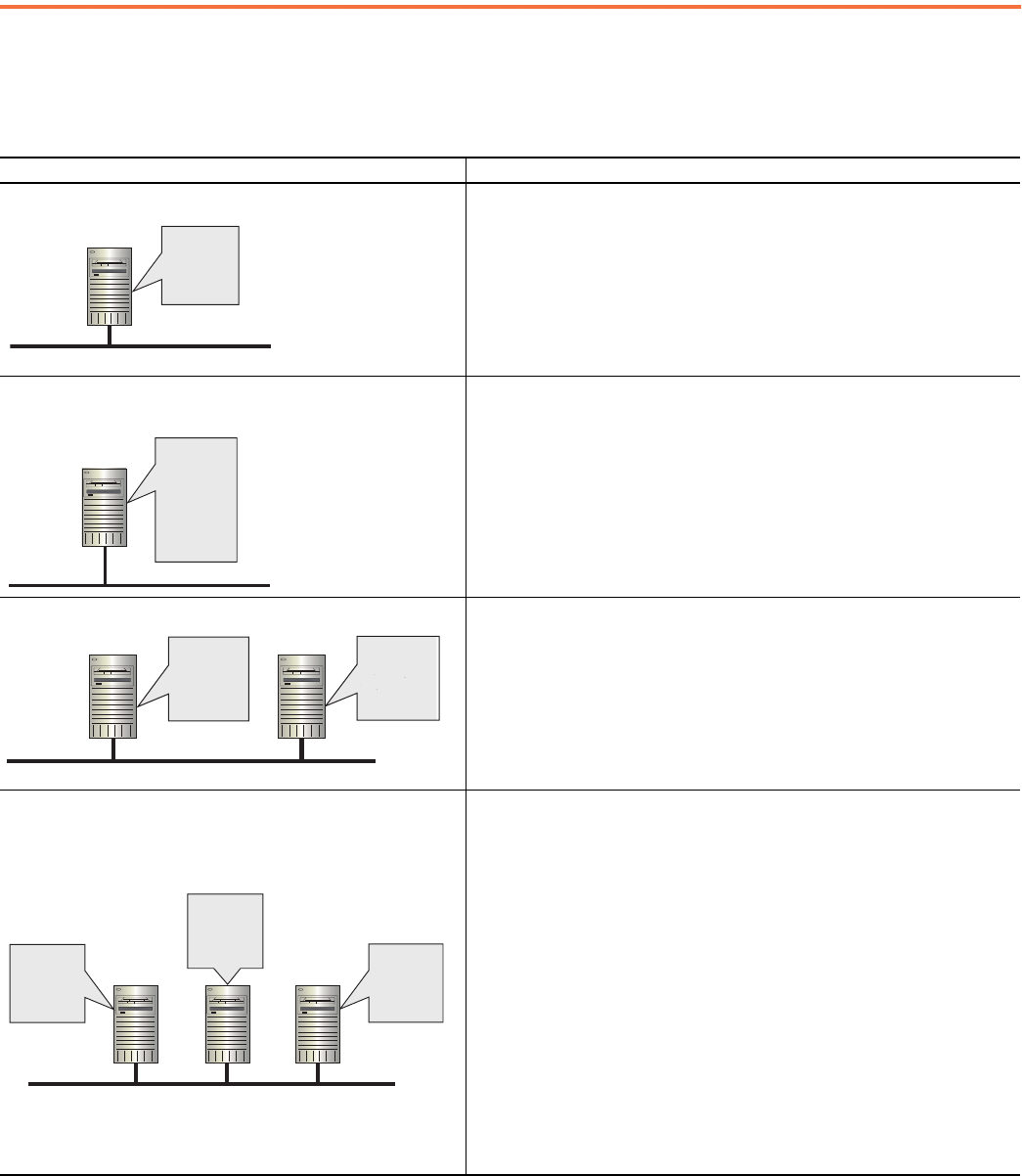
22 Rockwell Automation Publication PROCES-SG001T-EN-P - June 2024
Determine the Number of PASS Servers
Redundancy can be added to be sure of the availability of critical operations. For PASS servers, you can choose the level of redundancy that you
need. When a PASS is made redundant, typically all above elements that are hosted on the PASS are made redundant.
Table 8 - Non-redundant Server Options
Server Options Description
Option 1 - One PASS System Server
This option has all essential software components that are housed in one PASS server. The
components are FTD, Data server, HMI server, and alarm and event server.
There are additional system elements, such as batch management, asset management, and
FactoryTalk Historian. You can deploy these elements on separate servers or you can deploy
elements on the same server as detailed in Option 2.
One HMI server license is required.
Option 2 - One PASS Consolidated Server (small systems)
The PASS - C option is for valid small systems with fewer than 2000 I/O points. With this option,
you can locate multiple system elements on the same virtual machine.
One HMI server license is required.
Option 3 - Multiple PASS Servers (additional data capacity)
This option contains all software components in one server as shown in Option 1. Option 3 also
adds another server for extra data and alarm capacity without adding another HMI server.
If the PASS server is being used as a data server, and additional capacity is needed, you can add
more PASS servers. Use the PSE to determine if more PASS servers are needed.
We recommend that you have an HMI server on the PASS if you’re segregating the application
into individual operational areas. See Option 4.
One HMI server license is required.
Option 4 - Multiple PASS Servers (logically segregated plant)
Place the FTD on its own server to manage applications that exist on multiple client servers. If an
area must be shut down, the other separate areas aren’t affected because the FTD is on its own
server. For example, you can perform maintenance on one area without affecting another
operational area of the plant. FTD can be a workstation class machine.
An HMI server license is required for each PASS that contains an HMI server.
The benefits of placing the FactoryTalk Directory on a dedicated server include:
• System Startup: It’s best if the FTD is the first component to start and the last to stop. Because
most FactoryTalk software products rely on the various services that are provided by the FTD,
the lowest risk scenario is to have it available as these products are initializing.
• Compatibility: While all versions are generally compatible, the FTD is occasionally required to
be at the highest version of FTSP installed in the system. This requirement can interfere with
another FactoryTalk component if the FTD is co-located with another product.
• Patching/Upgrading: Patching an FTD hosted on a dedicated computer translates to minimum
system downtime, as it isn’t affecting the operation of other FactoryTalk components while
rebooting.
• Redundancy: In redundant systems (for example, FactoryTalk View SE, FactoryTalk® Linx,
FactoryTalk Alarms and Events), it’s best if the FTD remains available during any failover
scenarios. While the redundant server pair can function without the presence of the FTD, the
lowest risk scenario is keeping it available.
FTD
Data server
HMI server
Alarm server
FTD
Data server
HMI server
Alarm server
Historian
AssetCentre
SQL
Data server
Alarm server
FTD
Data server
HMI server
Alarm server
HMI server
Data server
HMI server
Alarm server
Data server
HMI server
Alarm server
FTD
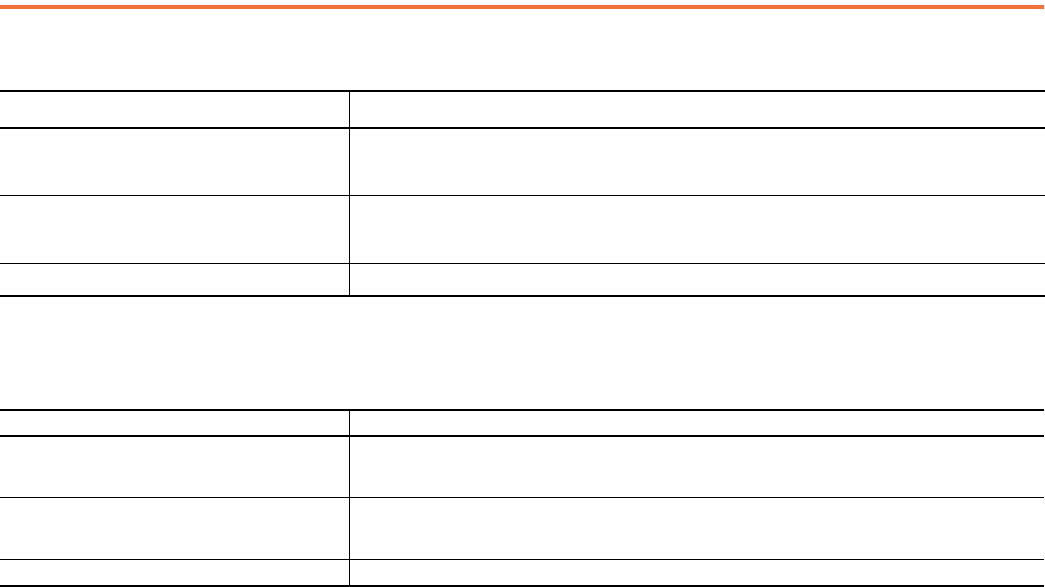
Rockwell Automation Publication PROCES-SG001T-EN-P - June 2024 23
Table 9 - PASS Requirements
Category
Requirement
(1)
(1) All numbers and figures are referenced for initial sizing only. If needed, adjust these values for system performance.
Virtual
vCPU: 8 @ 2.4 GHz minimum
vRAM: 16 GB minimum
vHardDisk: 60 GB minimum
Physical (Non-Virtual)
CPU: 4 cores/8 threads @ 2.4 GHz minimum
RAM: 16 GB minimum
HardDisk: 60 GB minimum
Operating system Windows® Server 2022 operating system, 64 bit
Table 10 - PASS-C Requirements
Category Requirement
Virtual
vCPU: 16 @ 2.4 GHz minimum
vRAM: 32 GB minimum
vHardDisk: 120 GB minimum
Physical (Non-Virtual)
CPU: 8 cores/16 threads @ 2.4 GHz minimum
RAM: 32 GB minimum
HardDisk: 120 GB minimum
Operating system Windows Server 2022 operating system, 64 bit
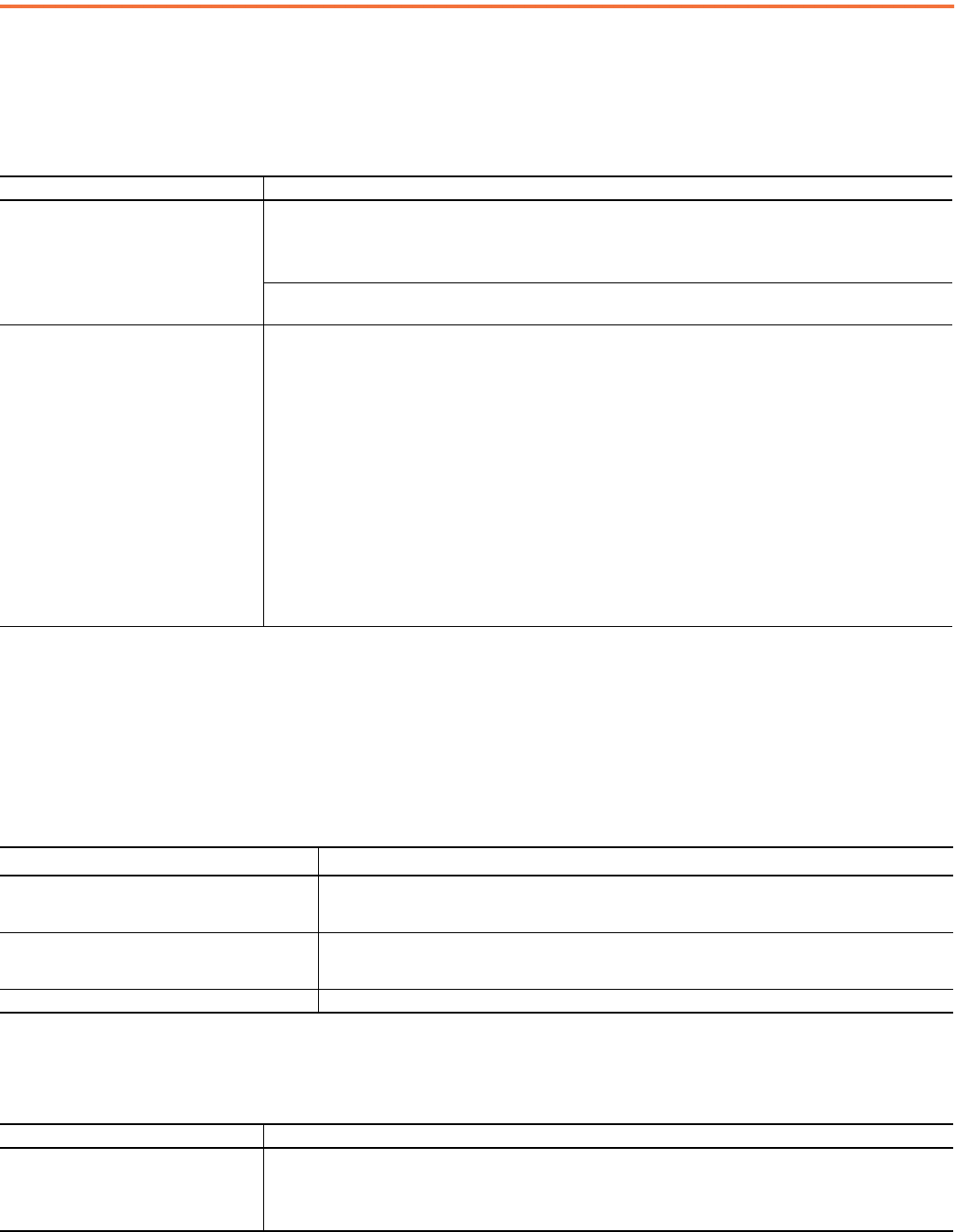
24 Rockwell Automation Publication PROCES-SG001T-EN-P - June 2024
The PASS requires that you purchase an HMI server license. If the PASS server isn’t being used as an HMI server, then no license purchase is
required. Make sure to account for process displays, faceplates, and navigation devices in your display count. All displays of the Rockwell
Automation Library of Process Objects count against your display count license.
Whether you deploy a PASS system element in a traditional or virtual architecture, you must purchase the proper activations.
Engineering Workstation (EWS)
The engineering workstation (EWS) supports system configuration, application development, and maintenance functions. The EWS is the central
location for monitoring and maintaining the systems operation. The recommended limit is five EWS per system
.
Whether you deploy an EWS system element in a traditional or virtual architecture, you must purchase the proper activations.
Table 11 - PASS Software and Licenses
Category Cat. No.
Rockwell Automation software licenses
Select the following for the first/main PASS in your system when the PASS is used as an HMI server:
(1)(2)
• 9528x-PASS05T3y (PlantPAx PASS Small 5-Client)
• 9528x-PASS10T2y (PlantPAx PASS Medium 10-Client)
• 9528x-PASS25T1y (PlantPAx PASS Large 25-Client)
(1) When your system has two or more PASS servers that are HMI servers, purchase the FactoryTalk View SE software licenses.
Select the following for a PASS that will be a redundant/secondary HMI Server:
• 9701x-VWRSVRT3y (Redundant Server Unlimited Display)
Rockwell Automation software licenses (for
PASS-C)
(3)
Select one copy per project of the following:
(1)(2)
• 9528x-PASS05T3y (PlantPAx PASS Small 5-Client)
• 9528x-PASS10T2y (PlantPAx PASS Medium 10-Client)
Select any quantity of the following up to 60,000 tags total:
(3)
• 9518x-HSTT1y (FactoryTalk Historian SE 1,000 Tags)
• 9518x-HST5KT4y (FactoryTalk Historian SE 5,000 Tags)
• 9518x-HST10KT5y (FactoryTalk Historian SE 10,000 Tags)
• 9518x-HST20KT6y (FactoryTalk Historian SE 20,000 Tags)
• 9518x-HST50KT7y (FactoryTalk Historian SE 50,000 Tags)
FactoryTalk Batch when required:
• 9358x-FTBT1y (FactoryTalk Batch Server - 1 Unit)
• 9358x-FTBT5y (FactoryTalk Batch Server - 3 Units)
• 9358x-FTBT2y (FactoryTalk Batch Server - 10 Units)
• 9358x-FTBT6y (FactoryTalk Batch Server - 30 Units)
• 9358x-FTBT3y (FactoryTalk Batch Server - 60 Units)
(2) Where: x = M (perpetual use license) or C (subscription license) and y = 1 (8x5 support) or 2 (24x7 support)
(3) If necessary, the end user is responsible for acquiring the Microsoft SQL Server license.
Table 12 - EWS Requirements
Category
Requirement
(1)
(1) All numbers and figures are referenced for initial sizing only. If needed, adjust these values for system performance.
Virtual
vCPU: 4 @ 2.4 GHz minimum
vRAM: 8 GB minimum
vHardDisk: 100 GB minimum
Physical (Non-Virtual)
CPU: 2 cores/4 threads @ 2.4 GHz minimum
RAM: 8 GB minimum
HardDisk: 100 GB minimum
Operating system Windows 10 or 11 operating system, 64 bit
Table 13 - EWS Software License
Category Cat. No.
Rockwell Automation software license
The following licenses enable the software tools that are deployed on the EWS:
(1)
(2)
•9324x-RLDT3y
• 9701x-VWSSPT3y
• 9701x-VWSDRT1y
(1) Where: x = M (perpetual use license) or C (subscription license)
(2) Where: y = 1 (8x5 support), y = 2 (24x7 support)
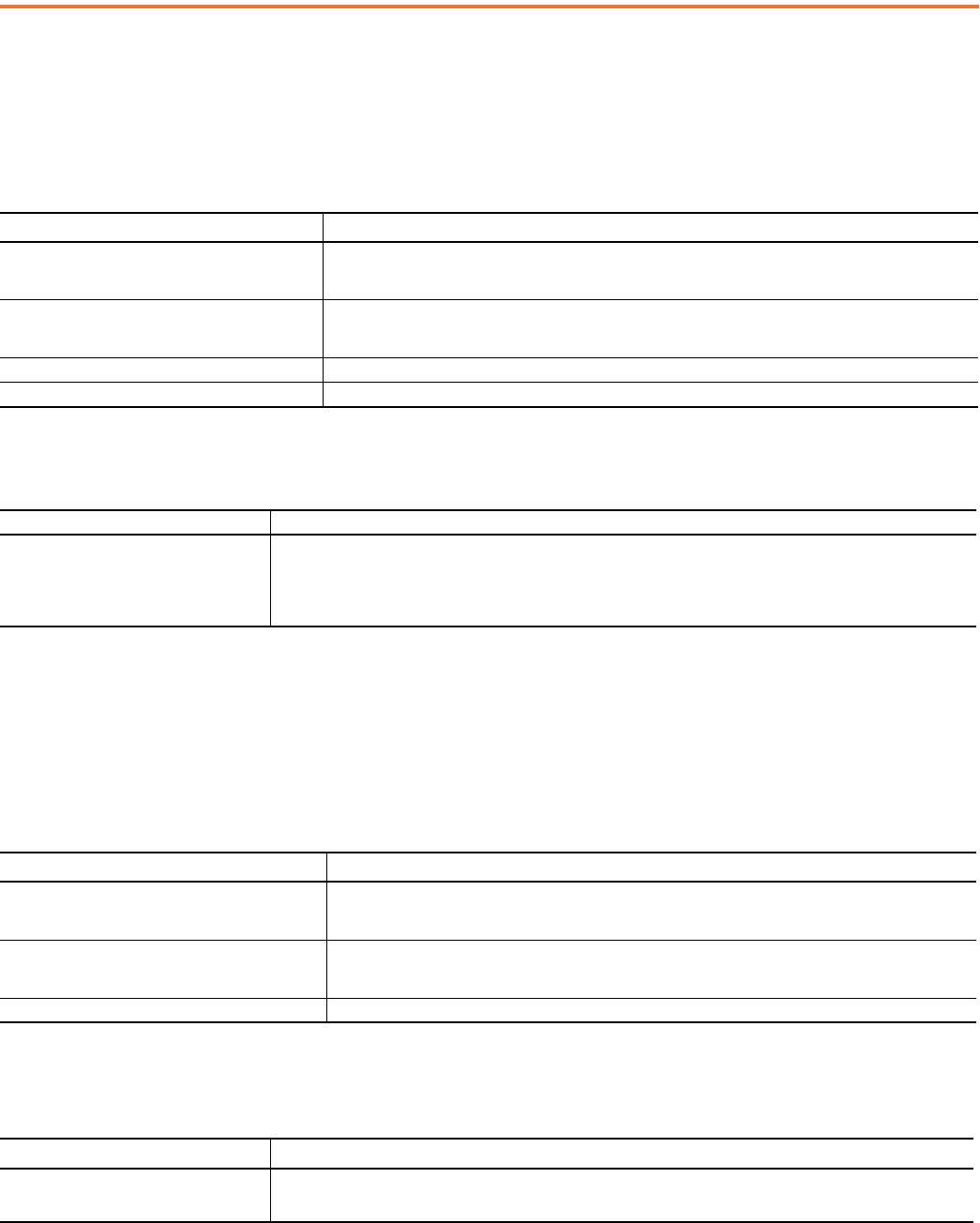
Rockwell Automation Publication PROCES-SG001T-EN-P - June 2024 25
Engineering Workstation Application Server (AppServ-EWS)
The AppServ-EWS uses ThinManager® or Microsoft Remote Desktop Services (RDS) technology to serve multiple instances of the EWS as thin clients
from one server. Thin clients can run applications and process data on a remote computer. The recommended limit is five active and connected
RDS client connections per AppServ-EWS. The application server can host up to 10 clients, but only five are to be actively configuring the system at
one time.
Whether you deploy an AppServ-EWS system element in a traditional or virtual architecture, you must purchase the proper activations.
Operator Workstations (OWS)
The operator workstation (OWS) provides the graphical view and interface into the process. The OWS supports operator interaction and isn’t meant
to support development or maintenance activities, although these activities are possible if desired.
Whether you deploy an OWS system element in a traditional or virtual architecture, you must purchase proper activations.
Table 14 - AppServ-EWS Requirements
Category
Requirement
(1)
(1) All numbers and figures are referenced for initial sizing only. If needed, adjust these values for system performance.
Virtual
vCPU: 8 @ 2.4 GHz minimum
vRAM: 16 GB minimum
vHardDisk: 100 GB minimum
Physical (Non-Virtual)
CPU: 4 cores/8 threads @ 2.4 GHz minimum
RAM: 16 GB minimum
HardDisk: 100 GB minimum
Thin client We recommend a maximum of five active and connected FactoryTalk View SE clients per application server.
Operating system Windows Server 2022 operating system, 64 bit
Table 15 - AppServ-EWS Automation System Software and License
Category Cat. No.
Rockwell Automation software license
IMPORTANT: The identified set of
Rockwell Automation licenses must be
purchased for each client that is connected to
the AppServ-EWS.
The following licenses enable the software tools that are deployed on an EWS client:
(1)
(2)
•9324x-RLDT3y
• 9701x-VWSSPT3y
• 9701x-VWSDRT1y
(1) Where: x = M (perpetual use license) or C (subscription license)
(2) Where: y = 1 (8x5 support), y = 2 (24x7 support)
Table 16 - OWS Requirements
Category
Requirement
(1)
(1) All numbers and figures are referenced for initial sizing only. If needed, adjust these values for system performance.
Virtual
vCPU: 2 @ 2.4 GHz minimum
vRAM: 4 GB minimum
vHardDisk: 40 GB minimum
Physical (Non-Virtual)
CPU: 1 core/2 threads @ 2.4 GHz minimum
RAM: 4 GB minimum
HardDisk: 40 GB minimum
Operating system Windows 10 or 11operating system, 64 bit
Table 17 - OWS Software License
Category Cat. No.
Rockwell Automation software license
For each OWS:
(1)
(2)
• 9701x-VWSDRT1y
(1) Where: x = M (perpetual use license) or C (subscription license)
(2) Where: y = 1 (8x5 support), y = 2 (24x7 support)
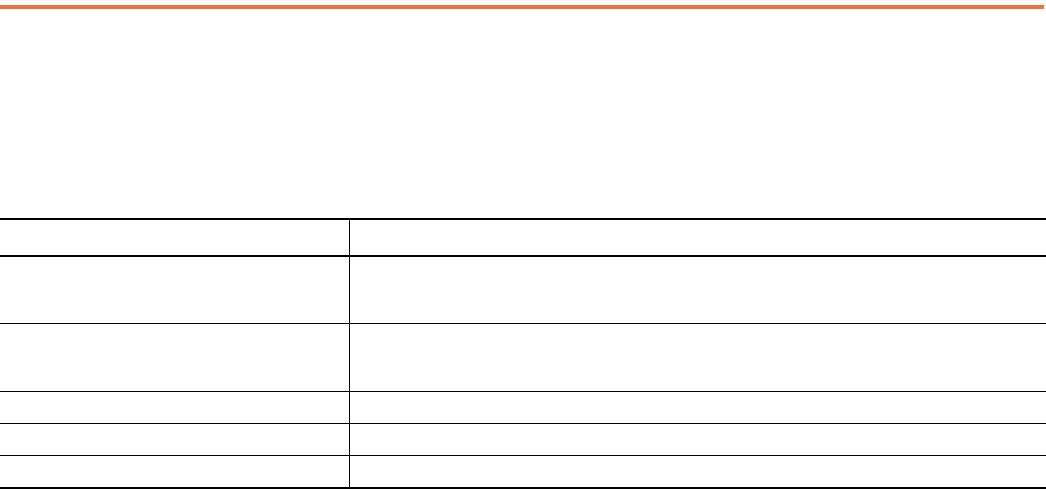
26 Rockwell Automation Publication PROCES-SG001T-EN-P - June 2024
Operator Workstation Application Servers (AppServ-OWS)
The AppServ-OWS uses Microsoft Remote Desktop Services (RDS) technology to serve multiple instances of the OWS as thin clients from one server.
Thin clients can run applications and process data on a remote computer to minimize the amount of information on a network. The AppServ-OWS is
only configured to run FactoryTalk View SE clients and the recommended limit is 10 clients per application server.
Table 18 - AppServ-OWS Requirements
Category
Requirement
(1)
(1) All numbers and figures are referenced for initial sizing only. If needed, adjust these values for system performance.
Virtual
vCPU: 8 @ 2.4 GHz minimum
vRAM: 16 GB minimum
vHardDisk: 60 GB minimum
Physical (Non-Virtual)
CPU: 4 cores/8 threads @ 2.4 GHz minimum
RAM: 16 GB minimum
HardDisk: 60 GB minimum
Operating system Windows Server 2022 operating system, 64 bit
Thin client We recommend a maximum of 10 FactoryTalk View SE clients per application server.
Additional third-party software Antivirus software
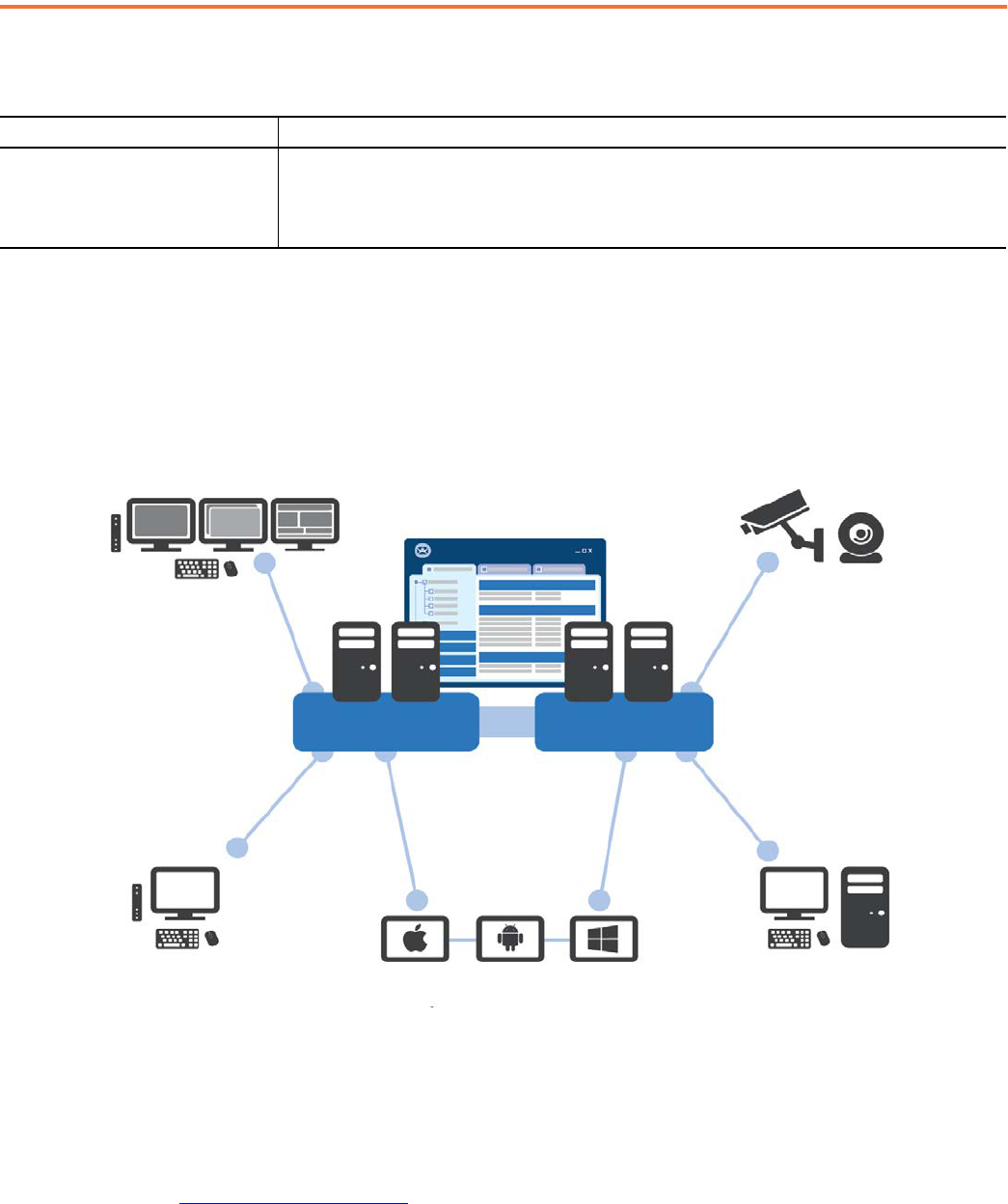
Rockwell Automation Publication PROCES-SG001T-EN-P - June 2024 27
Whether you deploy an AppServ-OWS system element in a traditional or virtual architecture, you must purchase the proper activations.
ThinManager Server Options
The AppServ-OWS can be configured as your ThinManager Server and deploy up to 10 OWS sessions to simplify the management of all devices and
users.
ThinManager increases your productivity, visualization, mobility, and security from a centralized, and scalable management platform.
Safely and securely deliver your content to any combination of device, user, and location with the following features:
• Boost productivity by reducing the time that is spent in managing computers
• Enhance visualization by delivering your content to where you need it and the way you want it to be shown
• Extend security through encrypted communications, Active Directory, and secure thin clients
• Smart mobility where QR Codes, Bluetooth, Wi-Fi, and GPS make sure that devices receive content in authorized areas
For more information, see Thin Client Management Software
.
Table 19 - AppServ-OWS Software License
Category Cat. No.
Rockwell Automation software license
IMPORTANT: The identified set of
Rockwell Automation licenses must be
purchased for each client that is connected to
the AppServ-OWS.
Purchase a license for each client that the AppServ-OWS servers:
(1)
(2)
• 9701x-VWSDRT1y
(1) Where: x = M (perpetual use license) or C (subscription license)
(2) Where: y = 1 (8x5 support), y = 2 (24x7 support)
ThinManager
Deliver multiple sessions to multiple
monitors and customized virtual
screens on a single thin client.
Access feeds from USB
and IP cameras.
Deliver applications based
on what is assigned to the
Deliver content to the right
person at the right time
and place.
Get mobile access to applications specific to a
user’s role.
Manage and deliver virtual
desktops while running PCs
as a thin client.
Remote Desktop Servers Virtual Resources
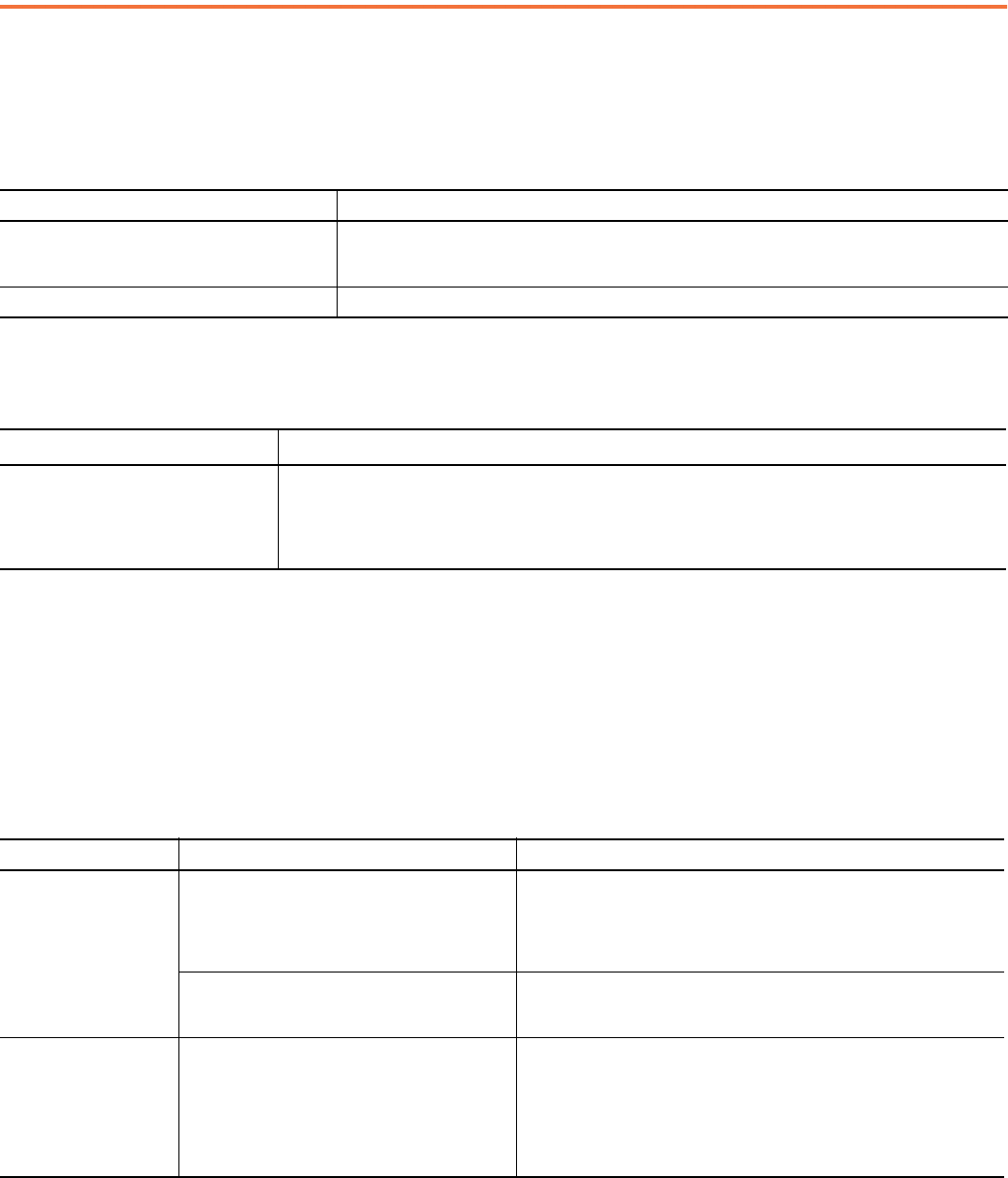
28 Rockwell Automation Publication PROCES-SG001T-EN-P - June 2024
Independent Workstations (IndWS)
The independent workstation (IndWS) combines the roles of the PASS, EWS, and OWS in one computer. This workstation can be used as a backup
control system for emergency purposes.
If you deploy an IndWS system element, you must purchase the proper activations.
Information Management Application Servers (AppServ-Info)
Information management application servers (AppServ-Info) represent a broad category of servers and software that provides value to the
PlantPAx system by offering data management and decision support functionalities. Except where specifically noted, all options that are listed must
be installed on their own servers to maximize performance.
Table 20 - IndWS Requirements
Category Requirement
Physical
CPU: 4 cores/8 threads @ 2.4 GHz minimum
RAM: 16 GB minimum
HardDisk: 100 GB minimum
Operating system Windows 10, 11, or Server 2022 operating system, 64 bit
Table 21 - IndWS Software Licenses
Category
Cat. No.
(1)
(2)
(1) Where: x = M (perpetual use license) or C (subscription license)
(2) Where: y = 1 (8x5 support), y = 2 (24x7 support)
Rockwell Automation software licenses
One per IndWS if being used as EWS:
• 9324x-RLDT3y (Studio 5000 Professional Edition Design Environment Software)
Select one of the following:
• - 9701x-VWSTNBDLT4y (FactoryTalk View SE Station Bundle: Unlimited Displays)
Table 22 - Data Management Options
Category Requirement Option
Time series
• High-speed, on-machine data collection
• < 2500 tags
Information Management server is optional because you can use an embedded
historian module for the ControlLogix chassis (FactoryTalk Historian ME). If the
Factory Talk Historian ME module is collecting 2500 points per second, the duration
of history that is stored is approximately 14 hours.
• 1756-HIST2G (2 GB)
• Longer term data storage
• > 2500 tags
An Information Management server is required with FactoryTalk Historian SE
software for up to 60,000 tags. Additionally, the DataLogPro Edge Historian included
as part of the HMI server can be used up to 50,000 tags.
Event based Relational database
An additional AppServ-Info server can be considered for the storage of transactional
data. You can select a Microsoft SQL server database to act as the central collection
point for event-based data:
• FactoryTalk Alarm and Event data
• FactoryTalk Batch data
This database can be installed on an Information Management server or another
server on your system.
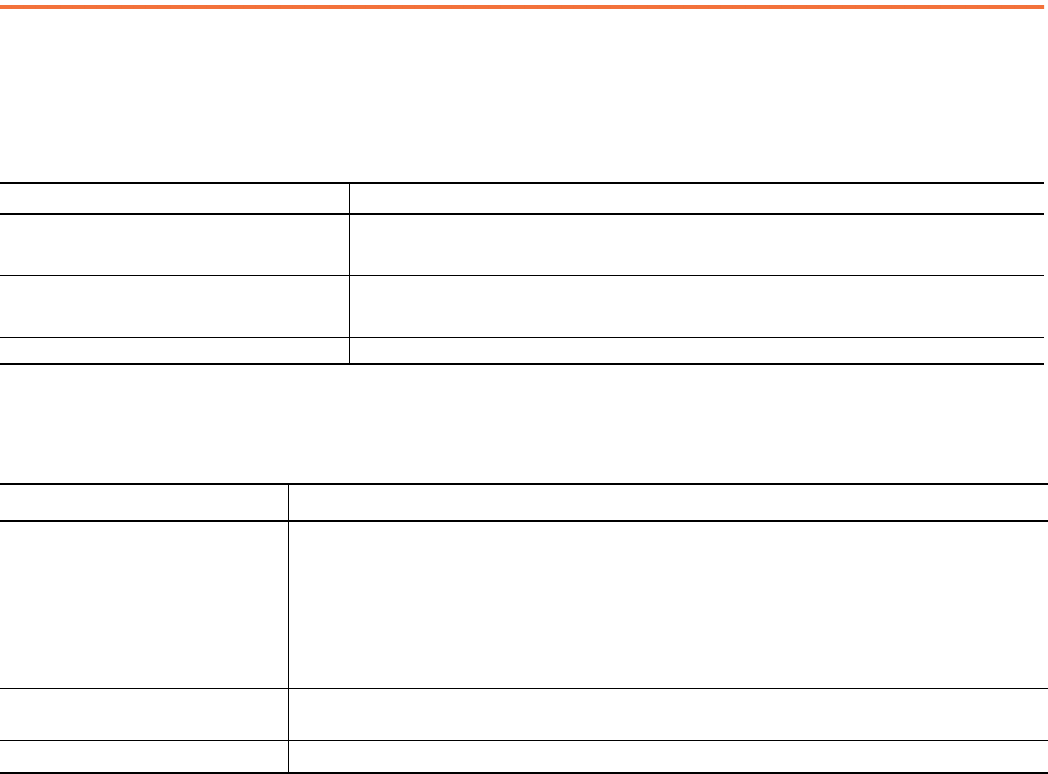
Rockwell Automation Publication PROCES-SG001T-EN-P - June 2024 29
AppServ-Info (Historian)
One of the ways to configure the AppServ-Info is as a historian to collect data. Follow these guidelines if you’re adding a Historian server to your
PlantPAx system.
Whether you deploy a Historian system element in a traditional or virtual architecture, you must purchase the proper activations.
Table 23 - AppServ-Info (Historian) Requirements
Category
Requirement
(1)
(1) All numbers and figures are referenced for initial sizing only. If needed, adjust these values for system performance.
Virtual
vCPU: 8 @ 2.4 GHz minimum
vRAM: 8 GB minimum
vHardDisk: 120 GB minimum
Physical (Non-Virtual)
CPU: 4 cores/8 threads @ 2.4 GHz minimum
RAM: 8 GB minimum
HardDisk: 120 GB minimum
Operating system Windows Server 2022 operating system, 64 bit
Table 24 - FactoryTalk Historian Software and Licenses
Category
Cat. No.
(1)(2)
(3)
(1) If you plan to use redundant Historian for high availability, you must license an equivalent number of tags for the redundant Historian.
(2) Where: x = M (perpetual use license) or C (subscription license)
(3) Where: y = 1 (8x5 support), y = 2 (24x7 support)
Rockwell Automation software license
Select one of the licenses:
• 9518x-HSTT1y (FactoryTalk Historian SE - 1,000 tags)
• 9518x-HTS5KT4y (FactoryTalk Historian SE - 5,000 tags)
• 9518x-HST10KT51y(FactoryTalk Historian SE - 10,000 tags)
• 9518x-HST20KT6y (FactoryTalk Historian SE - 20,000 tags)
• 9518x-HST50KT7y (FactoryTalk Historian SE - 50,000 tags)
Note: order these in quantities to meet your need not to exceed a total of 60,000 tags.
FactoryTalk PI Vision Client
Select for each client that is using FactoryTalk Historian Vision Client:
•9518x-HSTRT4y (FactoryTalk Historian Vision Client - Single User)
Excel® Add-in • 9518x-HSTRT3y (Historian SE, DataLink Client, 5 Users)
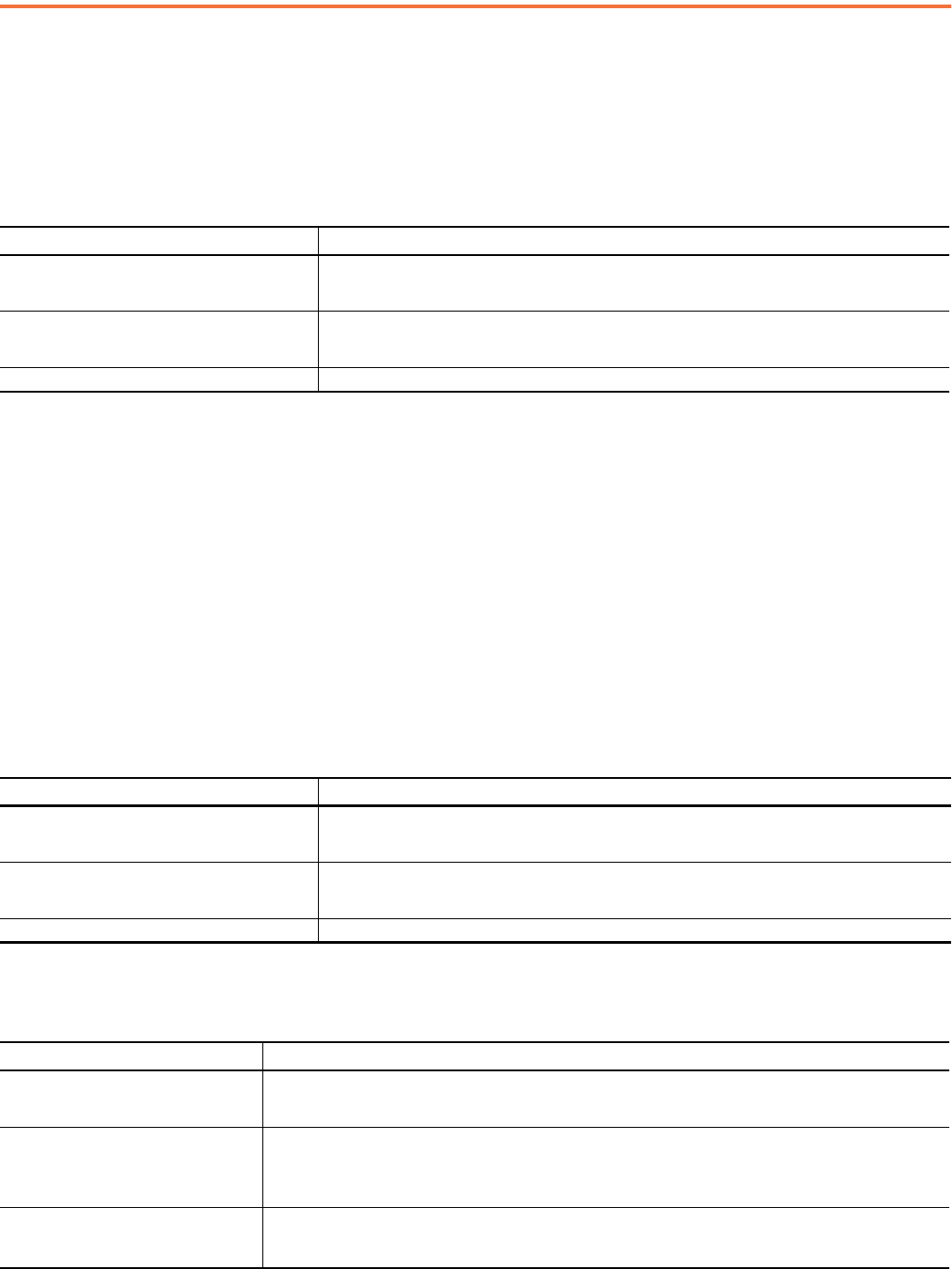
30 Rockwell Automation Publication PROCES-SG001T-EN-P - June 2024
AppServ-Info (SQL)
Another way to configure AppServ-Info is as a Microsoft SQL Server relational database. Software such as FactoryTalk AssetCentre, and FactoryTalk
Batch use a SQL Server database to store and access process data. The FactoryTalk Alarm and Event server uses a SQL Server database to store
information.
The process library includes standard reports that support basic and advanced alarm and event reports along with per process object reporting.
Microsoft SQL Server is licensed in one of two ways: Server + CAL or Per Core. ‘CAL’ is an abbreviation for client access license. Server+CAL licensing
is recommended for fewer clients. Every additional client requires a CAL license. Per Core licensing provides unlimited number
of CALs.
Whether you deploy a Microsoft SQL Server system element in a traditional or virtual architecture, you must purchase the proper licensing. The End
User is responsible for acquiring the appropriate Microsoft SQL Server licensing.
Asset Management Servers (AppServ-Asset)
An asset management server (AppServ-Asset) is an extension to the PlantPAx system that adds maintenance and plant operations to the system
with FactoryTalk AssetCentre software. This server provides controller data backup for disaster recovery, diagnostics, and real-time monitoring.
The server also audits assets and monitors network health to improve overall resource availability.
The asset management server provides centralized system management for Rockwell Automation and third-party field assets.
Whether you deploy an AppServ-Asset system element in a traditional or virtual architecture, you must purchase the proper activations.
Table 25 - AppServ-Info (SQL) Requirements
Category
Requirement
(1)
(1) All numbers and figures are referenced for initial sizing only. If needed, adjust these values for system performance.
Virtual
vCPU: 2 @ 2.4 GHz minimum
vRAM: 4 GB minimum
vHardDisk: 120 GB minimum
Physical (Non-Virtual)
CPU: 1 core/2 threads @ 2.4 GHz minimum
RAM: 4 GB minimum
HardDisk: 120 GB minimum
Operating system Windows Server 2022 operating system, 64 bit
Table 26 - AppServ-Asset Requirements
Category
Requirement
(1)
(1) All numbers and figures are referenced for initial sizing only. If needed, adjust these values for system performance.
Virtual
vCPU: 4 @ 2.4 GHz minimum
vRAM: 16 GB minimum
vHardDisk: 60 GB minimum
Physical (Non-Virtual)
CPU: 2 cores/4 threads @ 2.4 GHz minimum
RAM: 16 GB minimum
HardDisk: 60 GB minimum
Operating system Windows Server 2022 operating system, 64 bit
Table 27 - AppServ-Asset Software and Licenses
Category
Cat. No.
(1)
(2)
(1) Where: x = M (perpetual use license) or C (subscription license)
Rockwell Automation software license
• 9515x-FTACT2y (FactoryTalk AssetCentre Base)
A license for AssetCentre Base isn’t required when the system included a PASS licensed using a SystemID bundle as it is already
included.
Asset licenses
Select one or more of the following so that the sum of licenses is equal to or greater than the number of assets that is to be
managed by the Asset Management server:
(3)
• 9515x-FTACRT9y (FactoryTalk AssetCentre 25 Assets)
• 9515x-FTACRT1y (FactoryTalk AssetCentre 100 Assets)
Virtual server disaster recovery licenses
If disaster recovery is to be used, select from the following:
• 9515x-FTACRT10y (Disaster recovery for Rockwell Automation)
• 9515x-FTACRT2y (Disaster recovery for remote computers)

Rockwell Automation Publication PROCES-SG001T-EN-P - June 2024 31
Batch Management Servers (AppServ-Batch)
PlantPAx systems support scalable options for batch management that are based on ISA88 standards:
The batch management server (AppServ-Batch) offers equipment-independent recipe management, batch-independent equipment control, and
regulatory compliance.
(2) Where: y = 1 (8x5 support), y = 2 (24x7 support)
(3) The server license, included with the System ID bundle, includes 10 assets.
Feature Logix Batch & Sequence Manager SequenceManager™ FactoryTalk® Batch
Deployment Logix controller code Firmware-based controller feature Server-based application (AppServ-Batch)
Supported controllers
ControlLogix 5580
CompactLogix 5380
ControlLogix 5570
CompactLogix 5370
ControlLogix 5570
CompactLogix 5370
ControlLogix 5580
CompactLogix 5380
ControlLogix 5580
CompactLogix 5380
ControlLogix 5570
CompactLogix 5370
Units Single unit recipes Single unit recipes Multiple unit recipes
Phase construction PhaseManager™ programs PhaseManager programs PhaseManager programs
Phase interface Phase and bit logic Pull-down menu Pull-down menu
Max recipes/steps/phases 32 Limited by memory or resources Limited by memory or resources
Max input/report parameters 4 No max No max
Parameter expressions No Yes Yes
Parameter data types
BOOL
REAL
BOOL
INT, INT, DINT
REAL
BOOL
SINT, INT, DINT
REAL
Procedural structure
Sequential
Concurrent
Sequential
Concurrent
Divergent
Recurrent
Sequential
Concurrent
Divergent
Recurrent
Recipe design Tabular HMI configured SFC like SFC like
Recipe editing Runtime via HMI Import only at runtime Runtime editing via Recipe Editor
HMI integration Faceplates 3 Active X
4 Active X
API
Batch reporting Queue controller services Event client and archive services Event client and archive services
FactoryTalk Batch integration No Yes Na
Dynamic unit binding No No Yes
Unit arbitration No No Yes
Table 28 - AppServ-Batch Requirements
Category
Requirement
(1)
(1) All numbers and figures are referenced for initial sizing only. If needed, adjust these values for system performance.
Virtual
vCPU: 2 @ 2.4 GHz minimum
vRAM: 8 GB minimum
vHardDisk: 60 GB minimum
Physical (Non-Virtual)
CPU: 1 core/2 threads @ 2.4 GHz minimum
RAM: 8 GB minimum
HardDisk: 60 GB minimum
Operating system Windows Server 2022 operating system, 64 bit
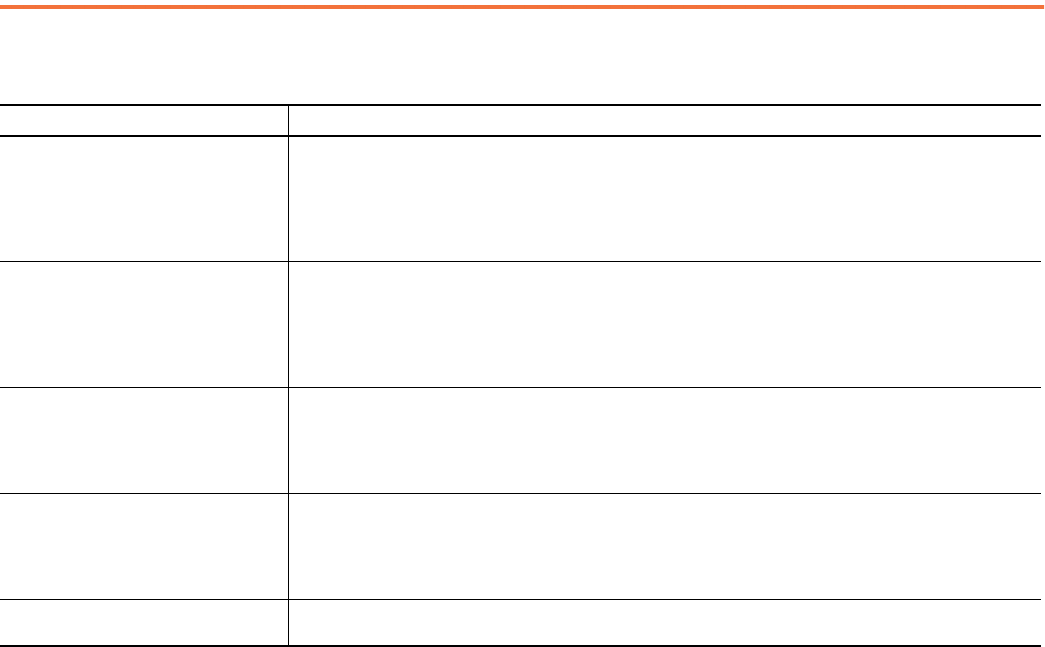
32 Rockwell Automation Publication PROCES-SG001T-EN-P - June 2024
Whether you deploy an AppServ-Batch in a traditional or virtual architecture, you must purchase the proper activations.
Batch high availability options depend on the hardware and software options in the system:
• For the application server in a system where a bump in the process cannot be tolerated, FactoryTalk Batch software helps support a real-
time, uninterrupted high availability option. This option leverages Stratus servers or VMware virtualization.
• Standard FactoryTalk Batch software supports a warm back-up option that allows a Batch server to start up and rebuild the active batches
from the Event Journals and Logs and places them on the batch list in a held state.
• A redundant ControlLogix system with PhaseManager software provides protection so that the control platform continues to execute during
a hardware failure.
Table 29 - AppServ-Batch Software and Licenses
Category
Cat. No.
(1)
(2)
(1) Where: x = M (perpetual use license) or C (subscription license)
(2) Where: y = 1 (8x5 support), y = 2 (24x7 support)
Batch unit software licenses
Purchase multiple licenses to obtain the desired number of batch units.
• 9358x-FTBT1y (FactoryTalk Batch Server – 1 Unit)
• 9358x-FTBT5y (FactoryTalk Batch Server – 3 Units)
• 9358x-FTBT2y (FactoryTalk Batch Server – 10 Units)
• 9358x-FTBT6y (FactoryTalk Batch Server – 30 Units)
• 9358x-FTBT3y (FactoryTalk Batch Server – 60 Units)
Batch backup software licenses
If a back-up server is required, obtain the equivalent number of units of back-up keys.
• 9358x-FTBRT1y (FactoryTalk Batch Back-up Key – 1 Unit)
• 9358x-FTBRT4y (FactoryTalk Batch Back-up Key – 3 Units)
• 9358x-FTBRT2y (FactoryTalk Batch Back-up Key – 10 Units)
• 9358x-FTBRT5y (FactoryTalk Batch Back-up Key – 30 Units)
• 9358x-FTBRT3y (FactoryTalk Batch Back-up Key – 60 Units)
eProcedure® software licenses
eProcedure is included with Batch licenses that are listed. These catalog numbers are to order software separately.
• 9358x-FTBEPT1y (FactoryTalk Batch eProcedure– 3 Units)
• 9358x-FTBEPT2y (FactoryTalk Batch eProcedure– 10 Units)
• 9358x-FTBEPT3y (FactoryTalk Batch eProcedure– 30 Units)
• 9358x-FTBEPT4y (FactoryTalk Batch eProcedure– 60 Units)
eProcedure backup software licenses
eProcedure is included with Batch licenses that are listed. These catalog numbers are to order software separately.
• 9358x-FTBEPT1y (FactoryTalk Batch eProcedure Back-up Key – 3 Units)
• 9358x-FTBEPT2y (FactoryTalk Batch eProcedure Back-up Key – 10 Units)
• 9358x-FTBEPT3y (FactoryTalk Batch eProcedure Back-up Key – 30 Units)
• 9358x-FTBEPT4y (FactoryTalk Batch eProcedure Back-up Key – 60 Units)
Batch View Clients
Each license enables one concurrent user to access FactoryTalk Batch from a remote browser.
• 9358x-FTBT4y (FactoryTalk Batch View Standard)
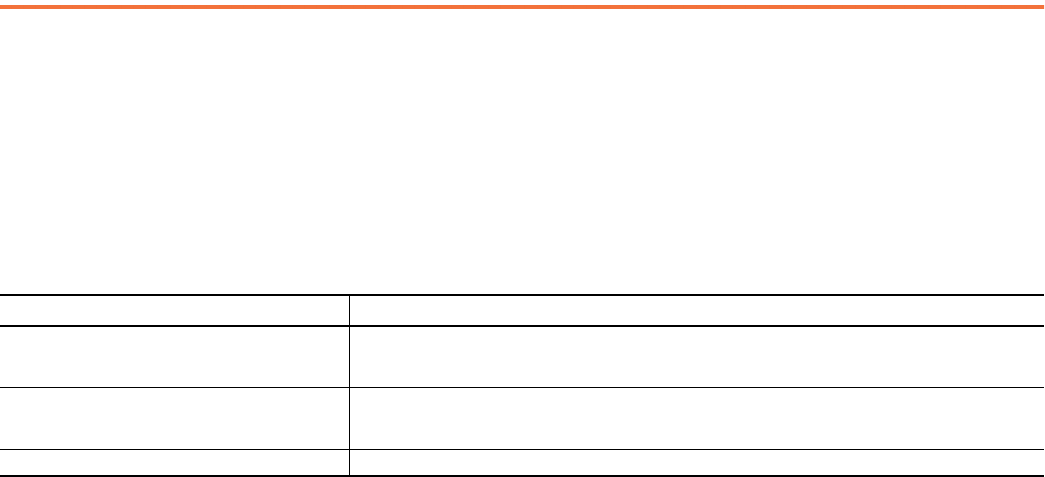
Rockwell Automation Publication PROCES-SG001T-EN-P - June 2024 33
Domain Controllers
PlantPAx uses a domain controller to store user account information, authenticate users, and enforce security policies. Follow these guidelines for
the domain controller:
• A domain controller is required if there are 10 or more workstations or servers.
• A domain controller is a separate computer. Do not load any application software on a domain controller. Load all system application
software on the other computers, such as the PASS, application server, OWS, and EWS.
• The domain controller must be local to the system workstations and servers (within the local firewall) and not remote to the system.
Table 30 - Domain Requirements
Category
Requirement
(1)
(1) All numbers and figures are referenced for initial sizing only. If needed, adjust these values for system performance.
Virtual
vCPU: 1 @ 2.4 GHz minimum
vRAM: 4 GB minimum
vHardDisk: 40 GB minimum
Physical (Non-Virtual)
CPU: 1 core/1 thread @ 2.4 GHz minimum
RAM: 4 GB minimum
HardDisk: 40 GB minimum
Operating system Windows Server 2022 operating system, 64 bit

34 Rockwell Automation Publication PROCES-SG001T-EN-P - June 2024
Notes:
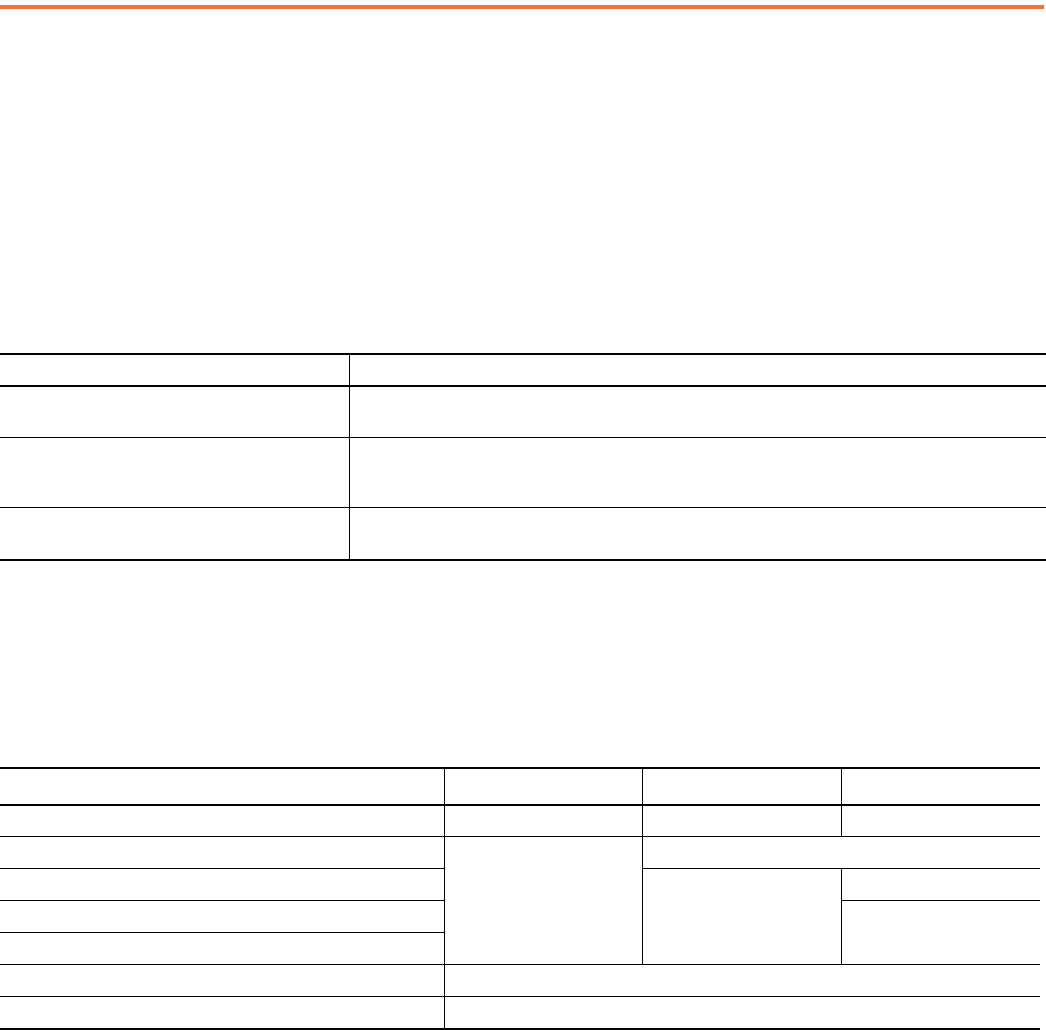
Rockwell Automation Publication PROCES-SG001T-EN-P - June 2024 35
Controllers, Field Networks, and I/O
The optimal number of controllers for the PlantPAx system depends on the size of your application, physical layout of your plant, and the design of
your process. Consider segregating non-related process equipment into separate controllers so that maintenance activities in one area do not
impact the operation of another area.
PlantPAx system release 5.0 adds process controllers to the Logix 5000® family of controllers. The process controller is an extension of the Logix
5000 controller family that focuses on plant-wide process control. The process controller is preconfigured with a default process tasking model
and dedicated PlantPAx process instructions that are optimized for process applications to improve design and deployment efforts.
Regardless of which type of controller that you use, controllers are capacity limited. This capacity can be roughly estimated based on I/O count, but
is also greatly impacted by the design of your application. These limitations can include the amount of automation code that is required, the amount
of information being read by supervisory applications, and the number of alarms configured in your system.
Simplex Controllers
Non-redundant controllers are referred to as simplex controllers.
.
Table 31 - Process and Standard Controller Hardware
Category Cat. No.
Process controllers
• ControlLogix 1756-L81EP, 1756-L83EP, 1756-L85EP
• CompactLogix 5069-L32OERP, 5069-L34OERP
Standard controllers
• ControlLogix 1756-L71, 1756-L72, 1756-L73, 1756-L74, 1756-L75, 1756-L81E, 1756-L82E, 1756-L83E, 1756-L84E,
1756-L85E
• CompactLogix 1769-L24ER-Q, 1769-L33ER, 1769-L36ERM, 1769-L37ERM, 1769-L38ERM
Standard Ethernet interfaces (ControlLogix)
• For direct PRP connection: 1756-EN4TR, 1756-EN2TP
• For direct DLR connection: 1756-EN4TR, 1756-EN2TR
Table 32 - Simplex - Process Controllers
Category
(1)
(1) These values are recommended maximum limits and are not intended for detailed system design or proposals. Limits can vary depending on the overall design of a system.
For more detailed sizing, please use the PlantPAx System Estimator included in the Integrated Architecture Builder software.
1756-L81EP 1756-L83EP 1756-L85EP
User memory 3 MB 10 MB 40 MB
PID loop control strategies @ 100 ms max
185
570
PID loop control strategies @ 250 ms max
625
1425
PID loop control strategies @ 500 ms max
2000
PID loop control strategies @ 1000 ms max
Tags/sec delivered to data server max 50,000
Logix tag based alarms max 7500
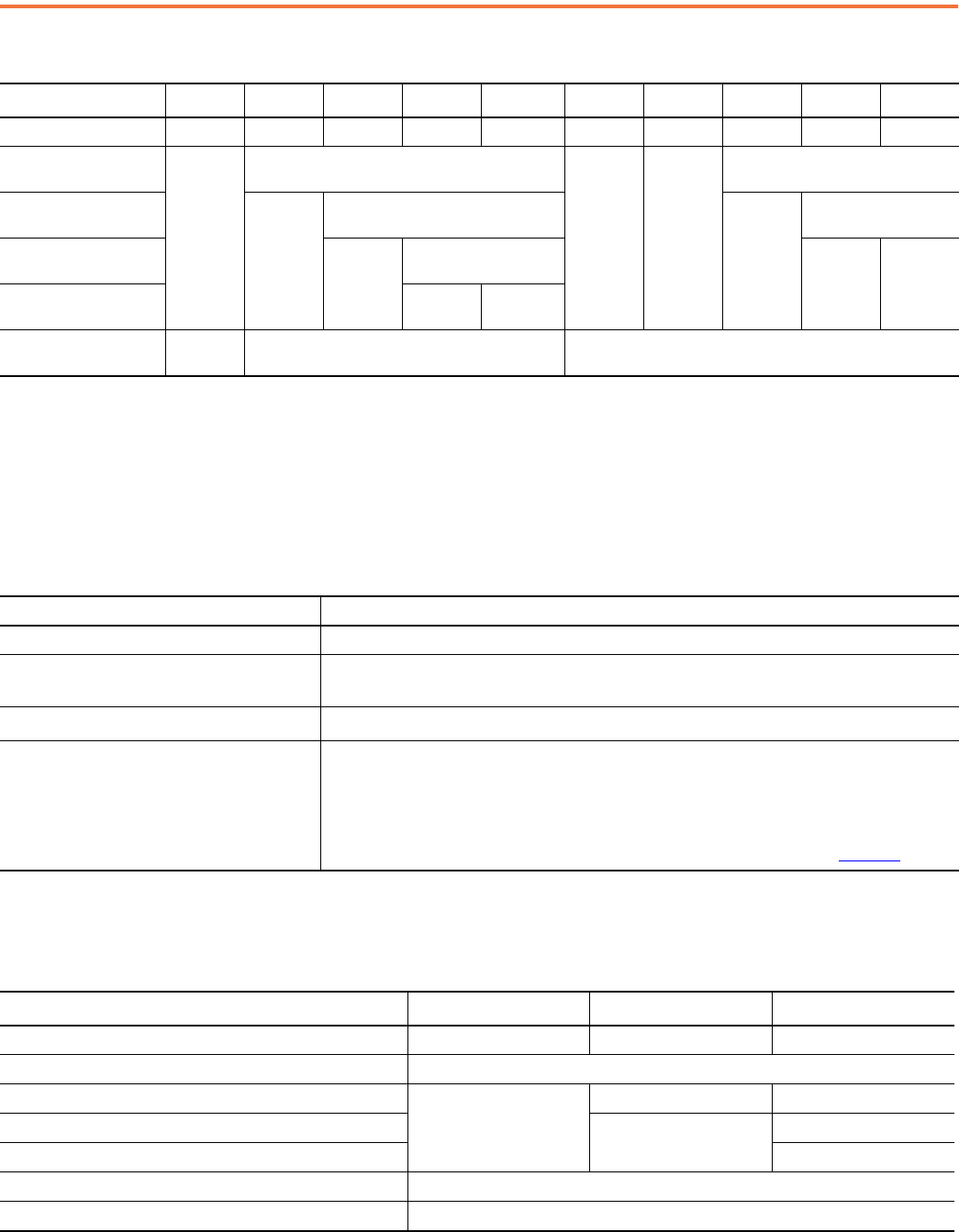
36 Rockwell Automation Publication PROCES-SG001T-EN-P - June 2024
Redundant Controllers
ControlLogix controllers support redundancy on EtherNet/IP networks. For a PlantPAx system, you need these components:
.
Table 33 - Simplex - Standard Controllers
Category
(1)
(1) These values are recommended maximum limits and are not intended for detailed system design or proposals. Limits can vary depending on the overall design of a system. For more detailed sizing,
please use the PlantPAx System Estimator included in the Integrated Architecture Builder software.
1756-L71 1756-L72 1756-L73 1756-L74 1756-L75 1756-L81E 1756-L82E 1756-L83E 1756-L84E 1756-L85E
User memory 2 MB 4 MB 8 MB 16 MB 32 MB 3 MB 5 MB 10 MB 20 MB 40 MB
PID loop control strategies
@ 100 ms max
75
85
235 425
500
PID loop control strategies
@ 250 ms max
175
215
910
1250
PID loop control strategies
@ 500 ms max
380
430
1875 2000
PID loop control strategies
@ 1000 ms max
800 860
Tags/sec delivered to data
server max
10,000 20,000 50,000
Table 34 - Redundant Process and Standard Controller Hardware
Category Cat. No.
Process redundant controllers ControlLogix 1756-L81EP, 1756-L83EP, 1756-L85EP
Standard redundant controllers
• ControlLogix 1756-L73, 1756-L74, 1756-L75
(1)
• ControlLogix 1756-L81E, 1756-L82E, 1756-L83E, 1756-L84E, 1756-L85E
(1) ControlLogix 1756-L71 and 1756-L72 controllers are not recommended for PlantPAx systems due to memory constraints.
Redundancy module
1756-RM2
(2)
(2) The PlantPAx system recommendation is to use only one redundant controller in a chassis with a 1756-RM2 redundancy module.
Standard Ethernet interfaces
• For direct PRP connection: 1756-EN4TR,1756-EN2TP
• For direct DLR connection: 1756-EN4TR,1756-EN2TR
PlantPAx recommends a dedicated Ethernet module for Supervisory communications (Non-Swapping IP addresses)
and one or more Ethernet modules for I/O / MCC communications (Swapping IP addresses).
For more information, see the ControlLogix 5580 Redundant Controller user manual, publication 1756-UM015
.
Table 35 - Redundant - Process Controllers
Category
(1)
(1) These values are recommended maximum limits and are not intended for detailed system design or proposals. Limits can vary depending on the overall design of a system. For more detailed
sizing, please use the PlantPAx System Estimator included in the Integrated Architecture Builder software.
1756-L81EP 1756-L83EP 1756-L85EP
User memory 3 MB 10 MB 40 MB
PID loop control strategies @ 100 ms max 125
PID loop control strategies @ 250 ms max
190
325 325
PID loop control strategies @ 500 ms max
625
650
PID loop control strategies @ 1000 ms max 1300
Tags/sec delivered to data server max 50,000
Logix alarms max 7500
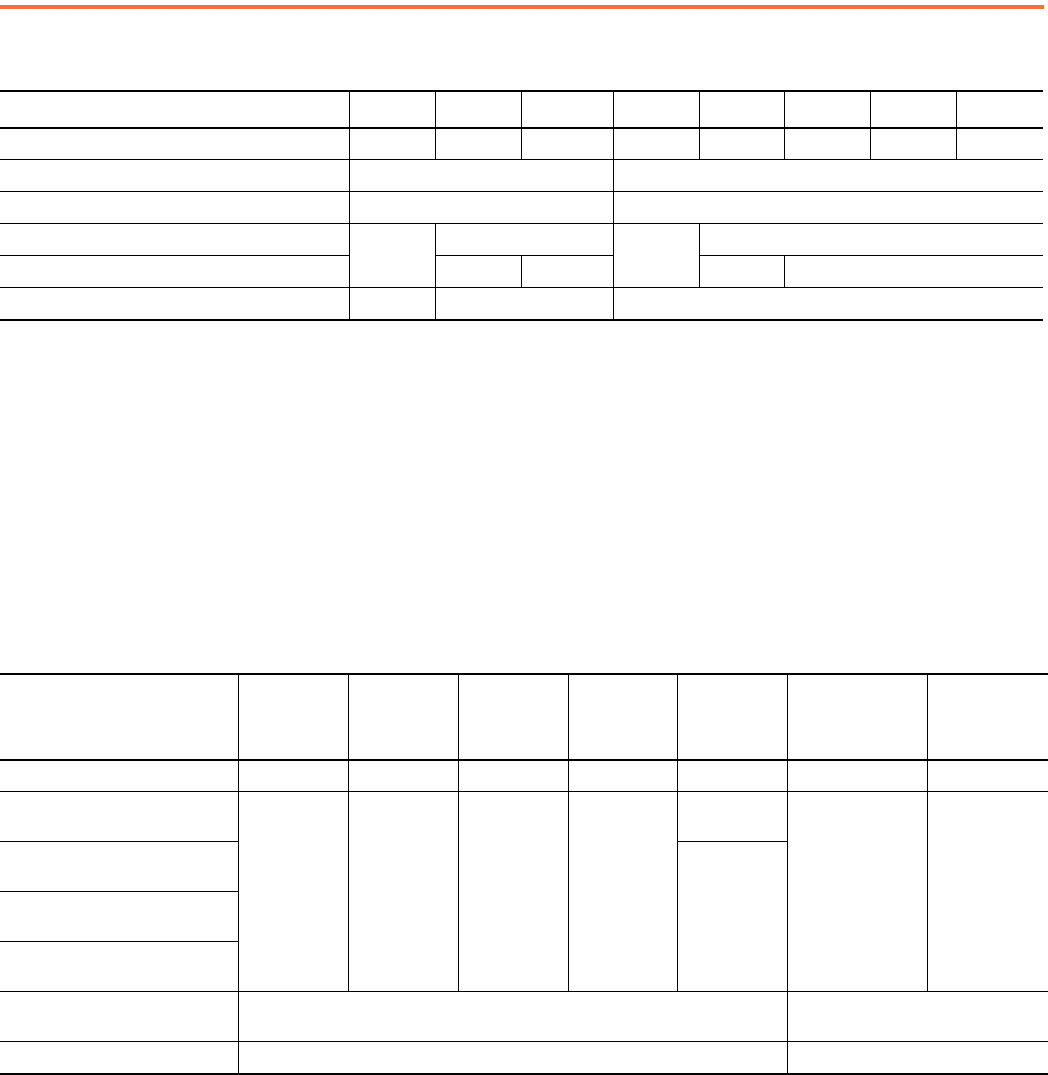
Rockwell Automation Publication PROCES-SG001T-EN-P - June 2024 37
Controllers for Skid-based Equipment
The CompactLogix controller platform offers a solution for skid-based equipment to be part of the overall PlantPAx system if the application
requires the following:
• Control of multiple loops for temperature, pressure, flow, or level
• Operating as a subsystem with sequencing and automation
• Controlled as part of the overall process, accepting reference inputs and delivering process variables to a supervisory controller
.
Table 36 - Redundant - Standard Controllers
Category
(1)
(1) These values are recommended maximum limits and are not intended for detailed system design or proposals. Limits can vary depending on the overall design of a system. For more detailed sizing,
please use the PlantPAx System Estimator included in the Integrated Architecture Builder software.
1756-L73 1756-L74 1756-L75 1756-L81E 1756-L82E 1756-L83E 1756-L84E 1756-L85E
User memory 8 MB 16 MB 32 MB 3 MB 5 MB 10 MB 20 MB 40 MB
PID loop control strategies @ 100 ms max 40 65
PID loop control strategies @ 250 ms max 100 155
PID loop control strategies @ 500 ms max
150
195
240
315
PID loop control strategies @ 1000 ms max 315 400 430 625
Tags/sec delivered to data server max 10,000 20,000 50,000
Table 37 - Skid-based Controllers
Category
(1)
(1) These values are recommended maximum limits and are not intended for detailed system design or proposals. Limits can vary depending on the overall design of a system. For more detailed sizing,
please use the PlantPAx System Estimator included in the Integrated Architecture Builder software.
CompactLogix
1769-L24ER-Q
CompactLogix
1769-L33ER
CompactLogix
1769-L36ERM
CompactLogix
1769-L37ERM
CompactLogix
1769-L38ERM
CompactLogix
5069-L32OERP
(Process
Controller)
CompactLogix
5069-L34OERP
(Process
Controller)
User memory 0.75 MB 2 MB 3 MB 4 MB 5 MB 2 MB 4 MB
PID Loop Control Strategies
@ 100 ms max
12 35 50 65
65
125 250
PID Loop Control Strategies
@ 250 ms max
80
PID Loop Control Strategies
@ 500 ms max
PID Loop Control Strategies
@ 1000 ms max
Tags/sec delivered to
data server max
3000 50,000
Logix alarms max — 7500
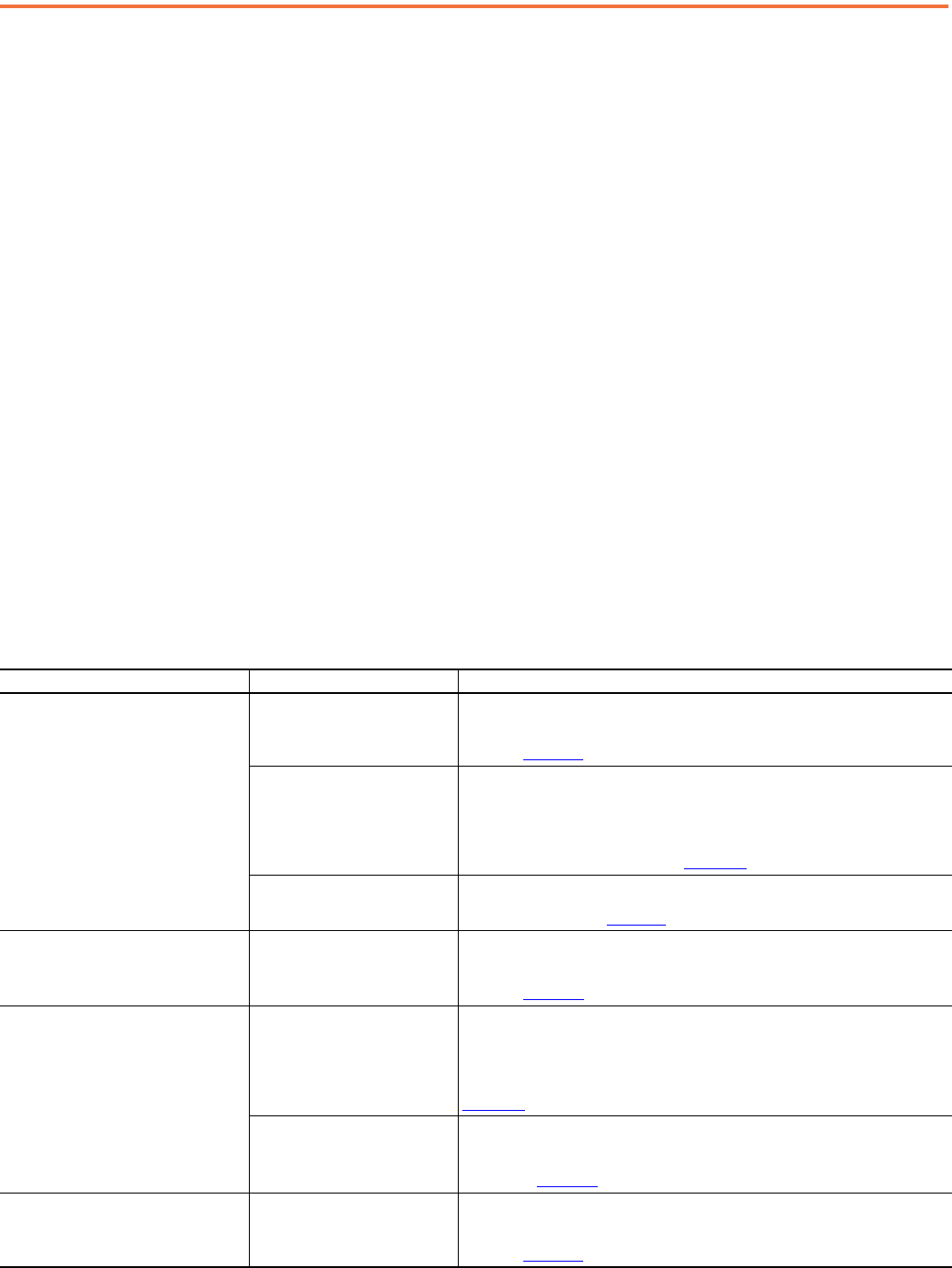
38 Rockwell Automation Publication PROCES-SG001T-EN-P - June 2024
Logix Embedded OPC UA
Logix 5380 and 5580 simplex controllers now support OPC UA natively via the embedded Ethernet ports. The controller can act as either an OPC UA
server or client. The PlantPAx Process controllers support the following number of OPC UA nodes:
• 5069-L320ERP: 300 OPC UA nodes
• 5069-L340ERP: 600 OPC UA nodes
• 1756-L81EP: no OPC UA nodes
• 1756-L83EP: 1200 OPC UA nodes
• 1756-L85EP: 15,000 OPC UA nodes
PlantPAx recommends no more than 50,000 nodes/sec of OPC UA data when a controller is acting as an OPC UA server. PlantPAx also recommends
that only OPC UA data should utilize the embedded port on 5580 controllers. All other data (HMI,I/O) should use an in-chassis communication module
such as the 1756-EN4TR.
Process Controller Emulation
FactoryTalk Logix Echo (FTLE) is a controller emulation software platform that emulates ControlLogix 5580 controllers. The platform also provides
workflows designed to make emulation and program testing more accessible and flexible.
FactoryTalk Logix Echo is available as a subscription on the Rockwell Automation Software Portal. The license is a single node license.
I/O Products
Field networks and I/O components connect process instrumentation and field devices to the PlantPAx system for real-time data acquisition and
control. The PlantPAx system supports several families of I/O.
Table 38 - I/O Communication Interfaces
Chassis-based I/O modules
1756 ControlLogix I/O
• 1756-EN2T, 1756-EN2TP, 1756-EN2TR, 1756-EN3TR,
1756-EN2F, 1756-EN2TXT
For more information, see the ControlLogix System Selection Guide,
publication 1756-SG001
.
5069 Compact 5000™ I/O
• 5069-AENTR dual-port EtherNet/IP adapter
• 5069-AENTRK dual-port EtherNet/IP adapter, conformal coated
• 5069-AEN2TR dual-port EtherNet/IP adapter with display diagnostics, integrated USB port,
and SD card
For more information, see Compact 5000 I/O Modules and EtherNet/IP Adapters
Specifications Technical Data, publication 5069-TD001
1769 Compact I/O™
•1769-AENTR
For more information, see the CompactLogix Communication Modules Specifications
Technical Data, publication 1769-TD007.
Distributed I/O, low-channel density 1734 POINT I/O™
• 1734-AENT, 1734-AENTR EtherNet/IP adapters
• 1734-ADN, 1734-ADNX, 1734-PDN DeviceNet® adapters
For more information, see the POINT I/O Modules Selection Guide,
publication 1734-SG001
.
Distributed I/O, high-channel density
5094 FLEX 5000™ I/O
•5094-AENTR, 5094-AENTRXT
• 5094-AEN2TR, 5094-AEN2TRXT
• 5094-AENSFPR, 5094-AENSFPRXT
• 5094-AEN2SFPR, 5094-AEN2SFPRXT
For more information, FLEX 5000 Modules Specifications Technical Data, see publication
5094-TD001
1794 FLEX™ I/O
• 1794-AENT, 1794-AENTR, 1794-AENTRXT EtherNet/IP adapters
• 1794-ADN, 1794-ADNK DeviceNet adapters
• For more information, see the FLEX I/O, FLEX I/O-XT, and FLEX Ex Selection Guide,
publication 1794-SG002
.
Distributed I/O, no cabinet enclosure 1738 ArmorPOINT® I/O
• 1738-AENT, 1738-AENTR EtherNet/IP adapters
• 1738-ADN12, 1738-ADN18, 1738-ADN18P, 1738-ADNX DeviceNet adapters
For more information, see the ArmorPoint I/O Selection Guide,
publication 1738-SG001
.

Rockwell Automation Publication PROCES-SG001T-EN-P - June 2024 39
Condition monitoring module 1444 Dynamix™ I/O
Built-in Ethernet connectivity with 1444-DYN04-01RA module
For more information, see the Dynamix -1444 Series Monitoring System User Manual,
publication 1444-UM001.
Redundant I/O
5015 FLEXHA 5000™ I/O
5015-AENFTXT Redundant EtherNet/IP adapter.
For more information, see the FLEXHA 5000 I/O System Specifications Technical Data,
publication 5015-TD001.
1715 Redundant I/O
1715-AENTR Redundant EtherNet/IP adapter
For more information, see the 1715 Redundant I/O System Specifications Technical Data,
publication 1715-TD001
.
Intrinsically Safe I/O 1719 Class 1, Div 2 I/O
1719-AENTR Intrinsically safe EtherNet/IP adapter
For more information, see the 1719 Ex I/O Technical Data,
publication 1719-TD001
.
Table 38 - I/O Communication Interfaces
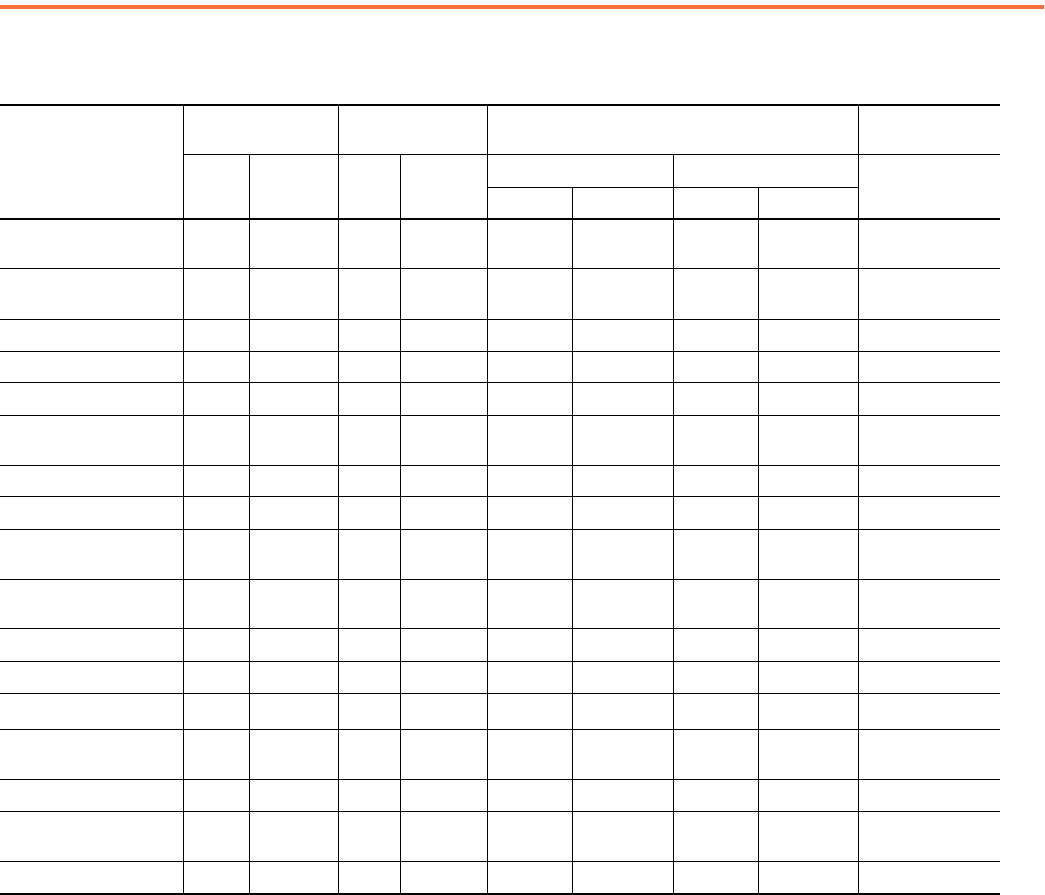
40 Rockwell Automation Publication PROCES-SG001T-EN-P - June 2024
Table 39 - Online Addition of Module and Connection Types
Module Type and
Connection Method
In Local Chassis
Remote via an
EtherNet/IP Network
Remote via a ControlNet® Network
Configure Hold Last
Output State
Offline Runtime Offline Runtime
Offline Runtime
Offline only
Scheduled Unscheduled Scheduled Unscheduled
Digital - direct Yes Yes Yes Yes Yes Yes — Yes
Yes - 1756 I/O digital
output modules
Digital - rack-optimized — — Yes Yes Yes — Yes —
Yes - 1756 I/O digital
output modules
Analog - direct Yes Yes Yes Yes Yes Yes — Yes Yes
Generic third-party - direct Yes Yes Yes Yes Yes Yes — Yes —
1715 Redundant I/O — — Yes Yes — — — — —
1718/1719 I/O — — Yes Yes — — — —
Yes – Both analog
and digital modules
1756-ENx - no connection Yes Yes Yes Yes — — — — —
1756-ENx - rack-optimized — — Yes Yes — — — — —
Generic EtherNet/IP third-
party - direct
—— YesYes — — — — —
1794 FLEX I/O — — Yes — Yes Yes — —
Yes - Analog output
modules only
1734 POINT I/O — — Yes — Yes Yes — — Yes
1734 POINT Guard I/O™ Yes — Yes — — — — — —
5069 Compact 5000 I/O Yes — Yes
Yes
(1)
(1) Only supported if adding an entire rack of Compact 5000 I/O modules.
—— —— Yes
5069 Compact 5000 I/O
Safety Modules
Yes — Yes — — — — — —
5094 FLEX 5000 — — Yes Yes — — — — Yes
5094 FLEX 5000 I/O Safety
Modules
— — Yes — — — — — Yes
5015 FLEXHA 5000 I/O — — Yes Yes — — — — —
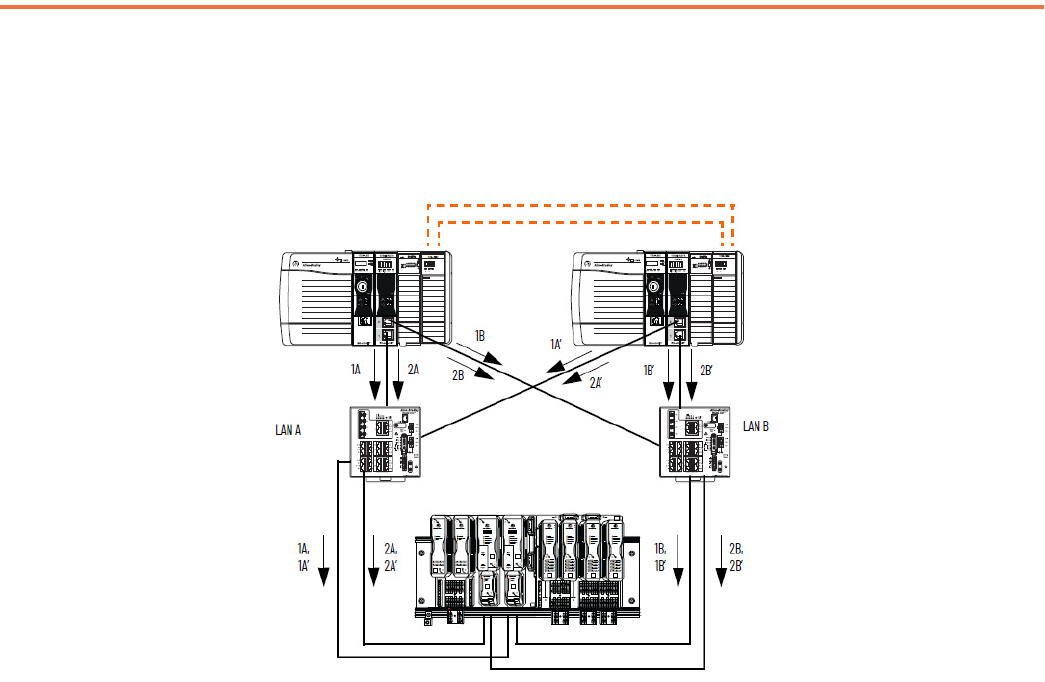
Rockwell Automation Publication PROCES-SG001T-EN-P - June 2024 41
Concurrent Communication
Concurrent communication provides for seamless failover for any redundant pair of hardware components.
With concurrent communication, data transmission between the ControlLogix 5580 controllers and the FLEXHA 5000 I/O modules can be completely
redundant at the logical and physical levels.
Remember the following:
• Each 1756-EN4TR EtherNet communication module in the redundant chassis pair sends duplicated data on each LAN at the same time.
• Data with the similar designations, for example, 1A and 1A’, are the same but from different controllers with the only difference being a small
identifier. In this case, it is the prime (‘) designation.
• All data transmission starts at the same time. The duplicated data that reaches the adapters first is what’s used in the FLEXHA 5000 I/O
system. The other data is disregarded.
Logical Level
Concurrent communication uses one logical CIP connection to transmit duplicate copies of I/O data to redundant devices. There is one I/O packet
for each redundant device.
Via a 1756-EN4TR EtherNet/IP communication module, ControlLogix 5580 controllers operate in parallel and open the concurrent communication
path to the FLEXHA 5000 I/O modules.
Each duplicate is targeted for one of the FLEXHA 5000 I/O modules in the redundant pair. The paired I/O modules receive duplicate data, compare
the data, and establish one signal value that is set on the terminal screws.
A similar pattern is followed for input data that is transmitted from the paired FLEXHA 5000 I/O modules to the redundant ControlLogix 5580
controllers.
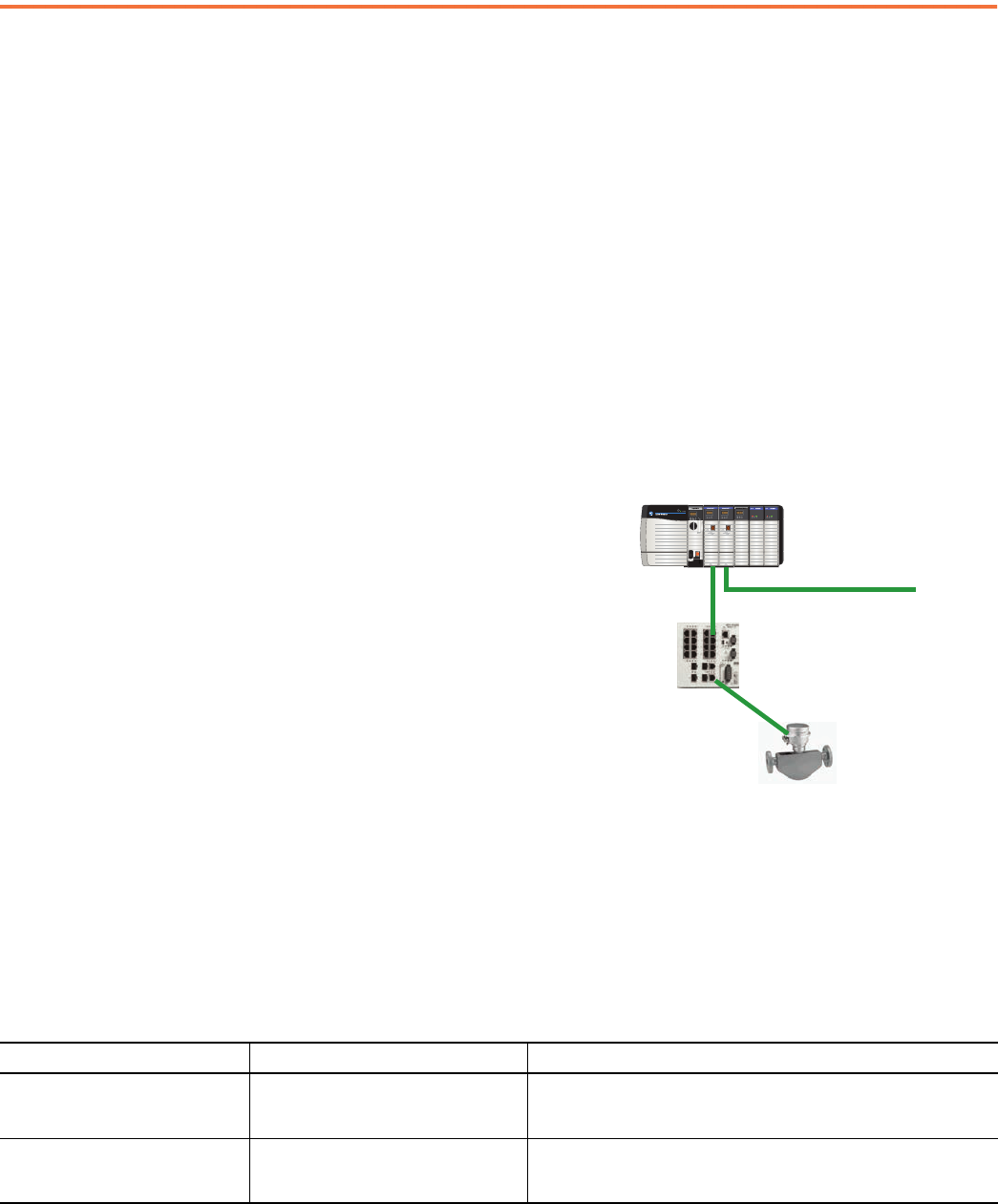
42 Rockwell Automation Publication PROCES-SG001T-EN-P - June 2024
Physical Level
During transmission, the duplicated data passes along physical connections from the 1756-EN4TR EtherNet/IP communication modules and the
FLEXHA 5000 EtherNet/IP adapter. Physical network redundancy is provided whether the system is operating in a PRP or DLR topology. Thus, the
system has increased resiliency.
The physical network redundancy is achieved via redundant path between the 1756-EN4TR EtherNet/IP communication module and the FLEXHA
5000 EtherNet/IP adapter as follows:
• PRP network - Duplicated data at the physical level for each path.
• DLR network - Providing redundant paths.
Process Network Devices
PlantPAx leverages smart instrumentation to provide the right information to the right personnel at the right time. In a PlantPAx system, controllers
are connected to field devices via field device components and communicate seamlessly through EtherNet/IP, DeviceNet, FOUNDATION Fieldbus,
and PROFIBUS PA networks or by using HART protocol.
EtherNet/IP Devices
Table 40 - EtherNet/IP Interface
Category Cat. No. Description
ControlLogix EtherNet/IP interface
1756-EN2T, 1756-EN2TP, 1756-EN2TR,
1756-EN3TR, 1756-EN4TR,
1756-EN2F
ControlLogix EtherNet/IP bridge
Time Synchronization Ethernet Device Aparian A-TSM/B
The Time Sync module provides Precision Time Protocol (PTP - Grand Master) and
NTP Time services. This enables precision time synchronization for Logix
Controllers and HMI systems. It can also provide GPS position data.
In a PlantPAx system, the EtherNet/IP™ network provides the communication backbone for
the supervisory network for the workstations, servers, and the controllers. The EtherNet/IP
network also supports controller downlinks and connections to remote I/O and field device
interfaces.
The EtherNet/IP network technology is owned and managed by ODVA, a global association
of member companies that advance open, interoperable information, and communication
technologies in industrial automation.
Field instruments that support a direct connection to EtherNet/IP networks include the
following:
• Endress+Hauser, Promass 83 and compact Promass 100 Coriolis flowmeters for
liquid and gas flows
• Endress+Hauser, Promag 53 electromagnetic flowmeter for conductive liquids
• Endress+Hauser, Liquiline CM444 Multiparameter transmitter for monitoring and controlling processes
• Endress+Hauser, Proline Promag 100 Electromagnetic flowmeter for conductive liquids
• Endress+Hauser, Proline Promag L 400 Electromagnetic flowmeter for conductive liquids
EtherNet/IP Network
Promass 100
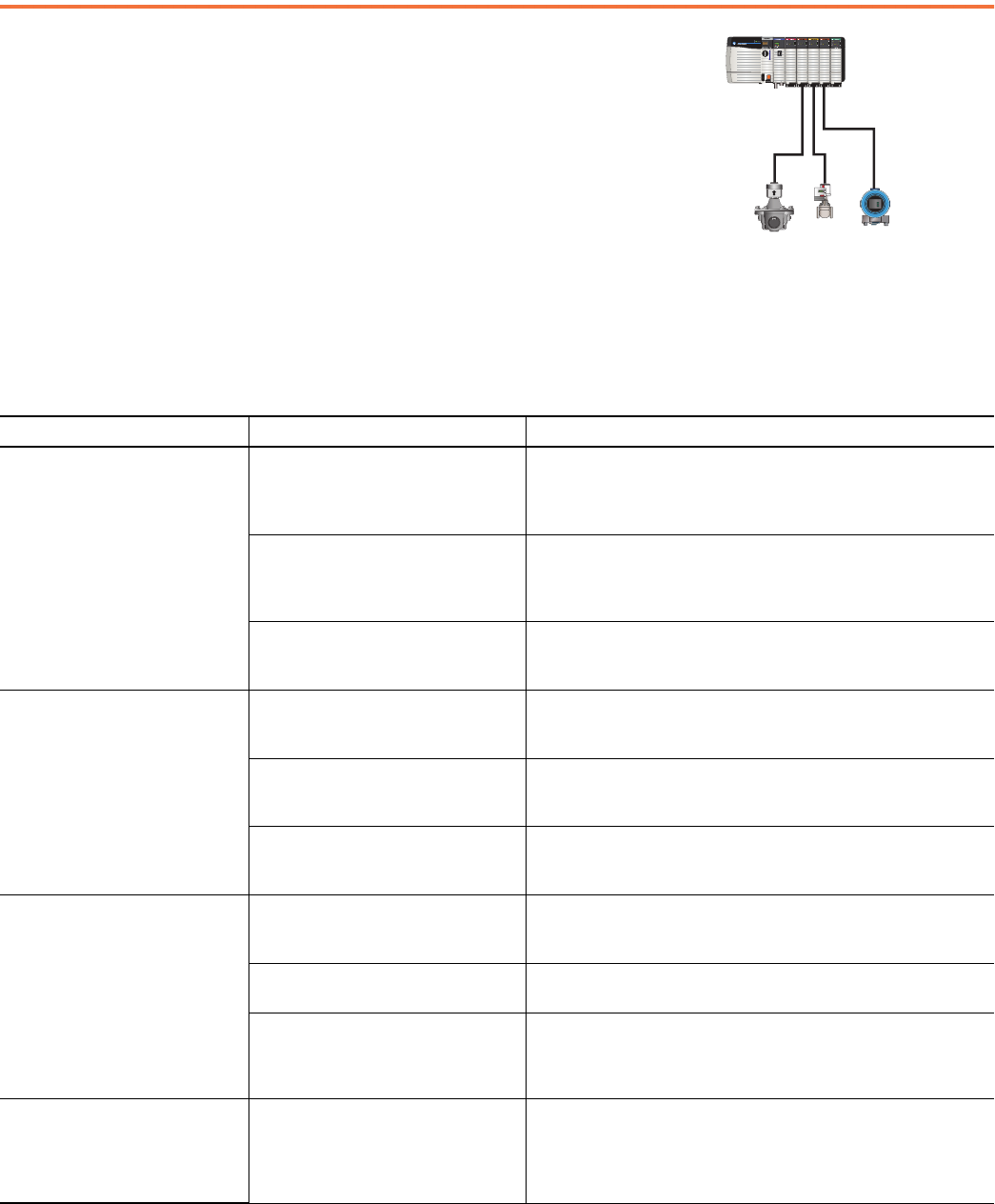
Rockwell Automation Publication PROCES-SG001T-EN-P - June 2024 43
HART Devices
HART is an open communication protocol that is designed to connect analog devices to the
controller and system.
The PlantPAx system interfaces with HART devices both directly and via remote I/O modules.
The HART protocol creates one termination point to gather analog process variables and the
additional HART digital data.
Highly-integrated HART provides a PlantPAx data type in the process controller for use with
FLEX 5000 and FLEXHA 5000 modules:
• Configuration of devices within the I/O Configuration tree (no Add-On Instruction
needed)
• Device diagnostics automatically propagate to the controller project
.
Table 41 - HART Interface
Category Cat. No. Description
Chassis-based I/O modules
1756-IF8H, 1756-IF16H, 1756-OF8H
Allen-Bradley® analog I/O with the following:
• 8-channel HART analog input module
• 16-channel HART analog input module
• 8-channel HART analog output module
1756-IF8IH, 1756-IF16IH, 1756-OF8IH
Allen-Bradley isolated analog I/O with the following:
• 8-channel isolated HART analog input module
• 16-channel isolated HART analog input module
• 8-channel isolated HART analog output module
5069-IF4IH, 5069-OF4IH
Allen-Bradley isolated analog Compact 5000 I/O modules with HART:
• 4-channel isolated HART analog input module
• 4-channel isolated HART analog output module
Distributed I/O, high-channel density
1794-IF8IH, 1794-OF8IH
Allen-Bradley FLEX isolated analog I/O modules with the following:
• 8-channel isolated HART analog input module
• 8-channel isolated HART analog output module
1794-IF8IHNFXT
Allen-Bradley FLEX I/O module with the following:
• Extended temperature, noise filtering 8-channel isolated HART analog
input module
5094-IF8IH, 5094-IF8IHXT
5094-OF8IH, 5094-OF8IHXT
Allen-Bradley HART I/O with the following:
• 8-channel isolated HART
• 8-channel isolated HART extreme temperature
Distributed I/O, low-channel density
1734sc-IE2CH, 1734sc-IE4CH
Spectrum Controls, analog input module for the POINT I/O system
• 2-channel HART analog input module
• 4-channel HART analog output module
1734sc-OE2CIH
Spectrum Controls, isolated analog input module for the POINT I/O system
• 2-channel isolated HART analog output module
1769sc-IF4IH, 1769sc-OF4IH
Spectrum Controls, isolated analog Compact I/O modules with HART:
• 4-channel isolated HART analog input module
• 4-channel isolated HART analog output module
See the Encompass website for Spectrum Controls for product offerings.
Distributed I/O, intrinsically safe
1718-CF4H, 1718-IF4HB
1719-CF4H, 1719-IF4HB
Allen-Bradley EX I/O chassis-based design for Zone 2 or Class I, Div 2.,
via EtherNet/IP:
• 4-channel configurable HART analog module
• 4-channel HART analog input module
• 4-channel HART analog input-wide module
HART Devices
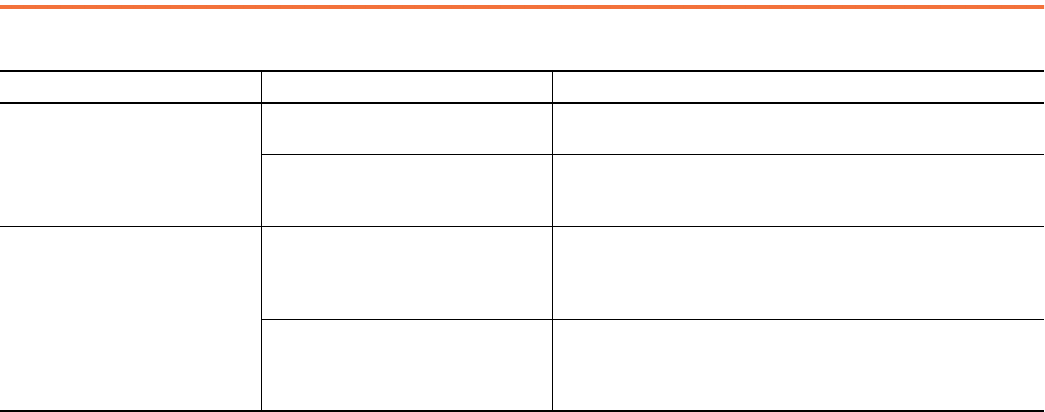
44 Rockwell Automation Publication PROCES-SG001T-EN-P - June 2024
Redundant I/O Modules
5015-UHIHFTXT
Allen-Bradley redundant I/O with the following:
• 8-channel Universal I/O module
1715-IF16
1715-OF8I
Allen-Bradley redundant I/O with the following:
• 16-channel HART analog input module
• 8-channel isolated HART analog output module
Wireless HART
•SWA70
•SWG70
•RSG4
Endress+Hauser wireless HART:
• WirelessHART adapter
• WirelessHART fieldgate
• Data manager
•WHA-ADP
•WHA-BLT
•WHA-GW
Pepperl+Fuchs wireless HART:
• WirelessHART adapter
• WirelessHART bullet adapter
• Wireless HART gateway
Table 41 - HART Interface
Category Cat. No. Description
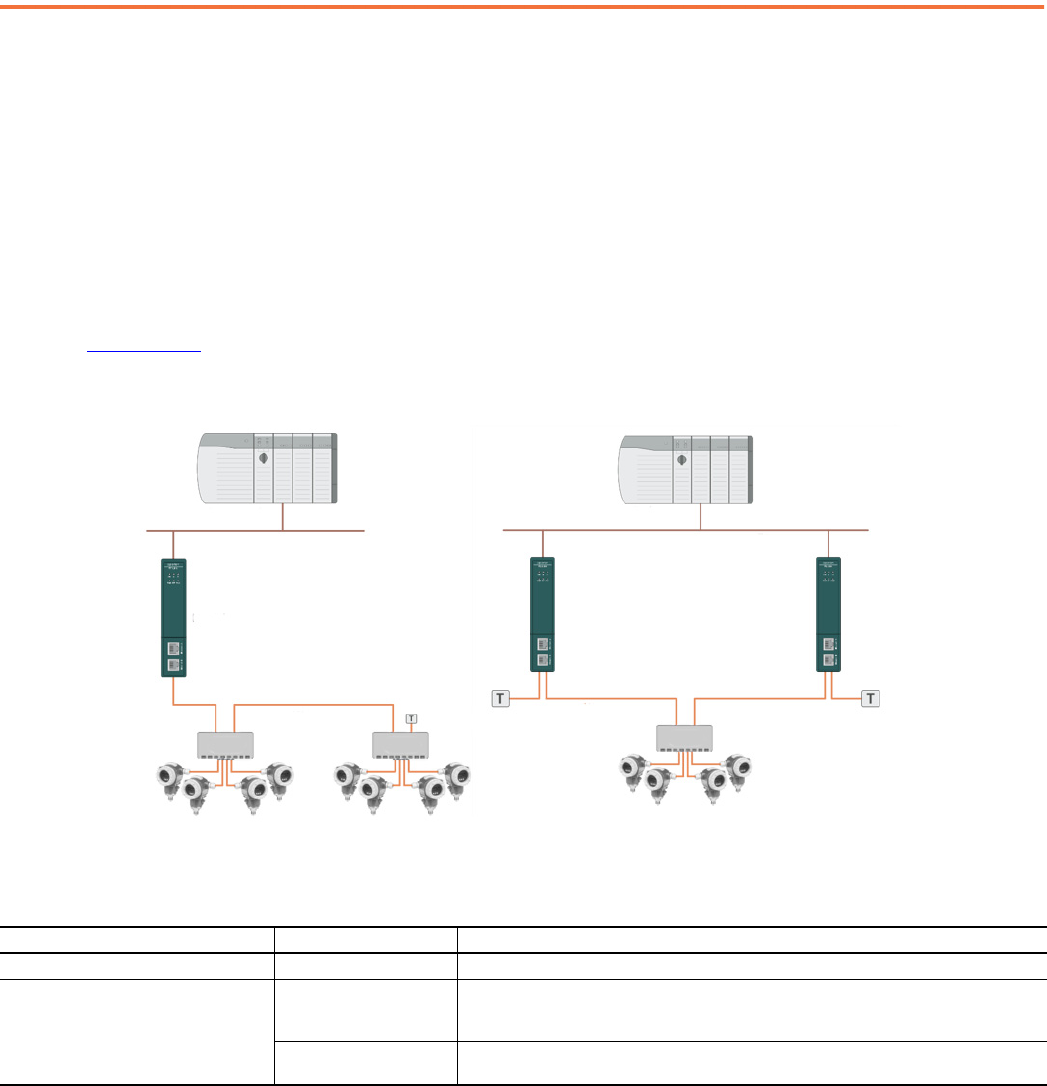
Rockwell Automation Publication PROCES-SG001T-EN-P - June 2024 45
FOUNDATION Fieldbus Devices
The FOUNDATION Fieldbus network is a protocol that is designed for robust, distributed process application control. Devices that are connected by a
FOUNDATION Fieldbus network can be used for sophisticated process control with seamless data distribution from the H1 device-level network.
PlantPAx systems communicate with FOUNDATION Fieldbus devices through EtherNet/IP linking devices as shown in the examples. Other
configurations are available for simplex and redundant topologies.
The Aparian FF Link is a module that links FOUNDATION Fieldbus devices via an EtherNet/IP connection. This module combines an Ethernet/IP linking
device with an internal isolated power conditioner and bus terminator.
The FF Link module supports redundancy by allowing two modules to be connected to the same H1 segment. The module has two Ethernet ports
and natively supports Linear and Device Level Ring (DLR) topologies. Parallel Redundancy Protocol (PRP) is supported via a REDBOX.
Refer to the Aparian website
for more information.
Basic Network Drawings
Table 42 - FOUNDATION Fieldbus Interface
Category Cat. No. Description
Ethernet/IP Linking Device Aparian A-FFL/B Aparian Foundation Fieldbus Link Module
Foundation Fieldbus network components
Segment Protection
Helps protect against device or line faults with short- and open-circuit protection. Pepperl+Fuchs,
intrinsic safety components, such as isolated barrier systems, hazardous area enclosures, and
equipment. See the Encompass™ website for Pepperl+Fuchs product offerings.
Additional components
Pepperl+Fuchs, FOUNDATION Fieldbus components, such as valve couplers, surge protectors, and
distributors. See the Encompass website for Pepperl+Fuchs product offerings
ControlLogix
ControlLogix
Ethernet/IP
Ethernet/IP
FF Link
FF Link
A
FF Link
B
Bus
Terminator
Bus
Terminator
H1 Bus
H1 Bus
Segment
Protector
Segment
Protector
Segment
Protector
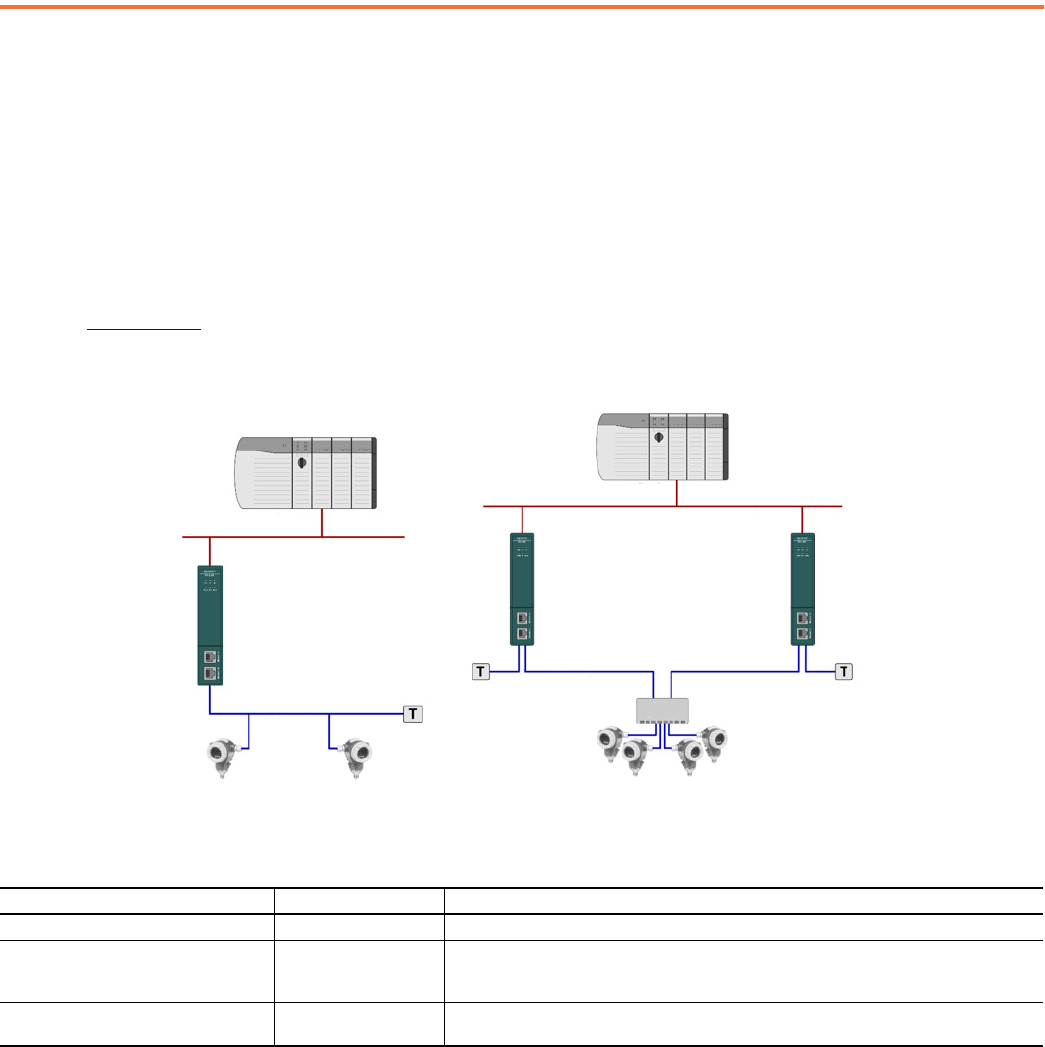
46 Rockwell Automation Publication PROCES-SG001T-EN-P - June 2024
PROFIBUS PA Devices
The PROFIBUS PA network connects automation systems and process control systems with field devices such as flow, level, pressure, and
temperature transmitters. PlantPAx systems communicate with PROFIBUS PA fieldbus devices through EtherNet/IP linking devices. Other
configurations are available for simplex and redundant topologies.
The Aparian PA Link is a module that links PROFIBUS PA devices via an EtherNet/IP connection. This module combines an Ethernet/IP linking device
with an internal isolated power conditioner and bus terminator.
The PA Link module supports redundancy by allowing two modules to be connected to the same PROFIBUS PA segment. The module has two
Ethernet ports and natively supports Linear and Device Level Ring (DLR) topologies. Parallel Redundancy Protocol (PRP) is supported via a REDBOX.
Refer to the Aparian website
for more information.
Basic Network Drawings
Table 43 - PROFIBUS PA Interface
Category Cat. No. Description
Ethernet/IP Linking Device Aparian A-PAL/B Aparian PROFIBUS PA Link Module
PROFIBUS network components Segment Protection
Helps protect against device or line faults with short- and open-circuit protection. Pepperl+Fuchs,
intrinsic safety components, such as isolated barrier systems, hazardous area enclosures, and
equipment. See the Encompass website for Pepperl+Fuchs product offerings
Additional components
Pepperl+Fuchs, PROFIBUS components, such as valve couplers, surge protectors, and distributors.
See the Encompass website for Pepperl+Fuchs product offerings.
ControlLogix
ControlLogix
Ethernet/IP
Ethernet/IP
PA Link
PA Link
A
PA Link
B
Bus
Terminator
Bus
Terminator
Bus
Terminator
Segment
Protector
Profibus PA
Profibus PA
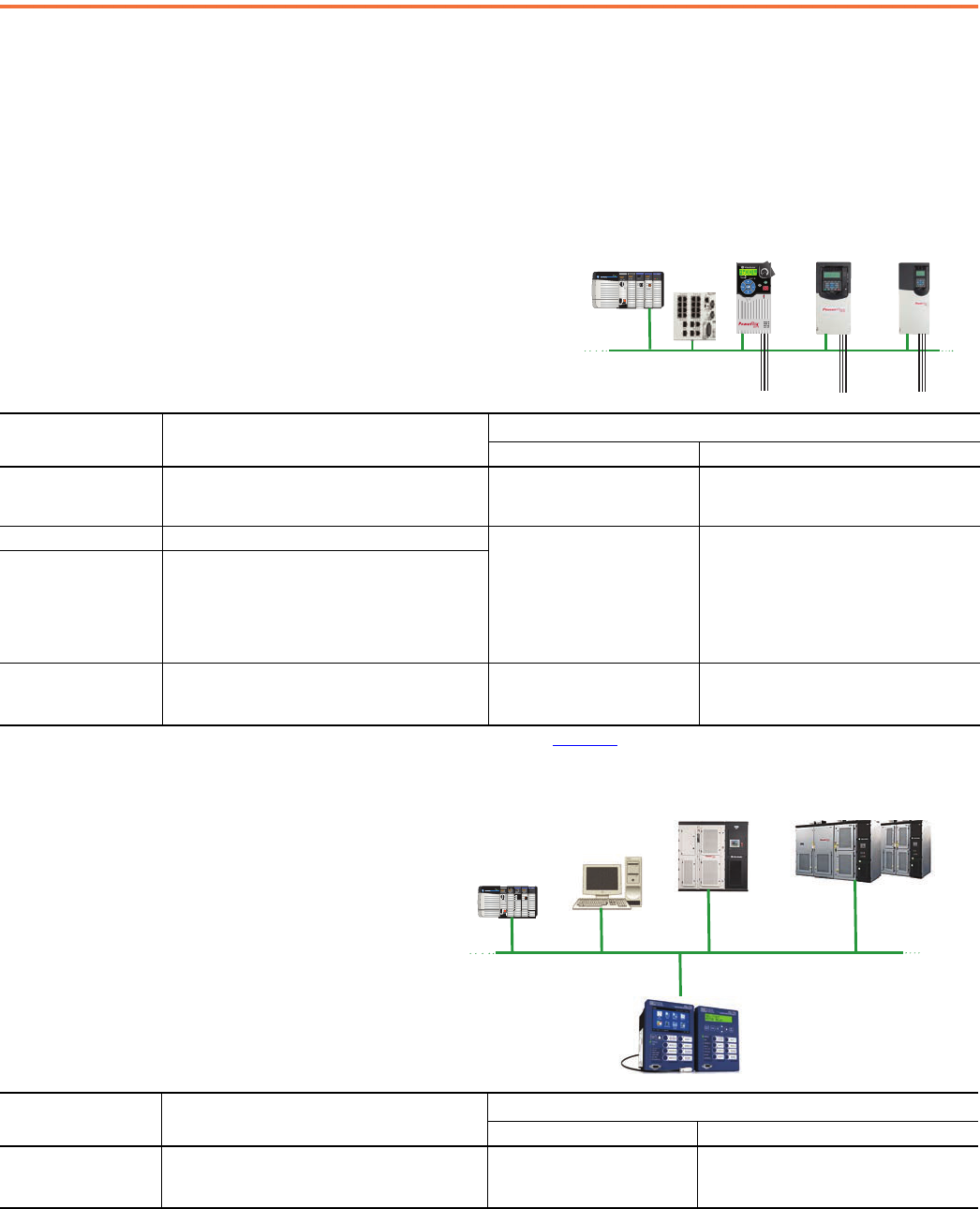
Rockwell Automation Publication PROCES-SG001T-EN-P - June 2024 47
Motor Control Devices
Rockwell Automation offers a broad range of motor control solutions to complement various application requirements. The portfolio of motor
control devices includes simplified programming and configuration along with safety features to help protect personnel and assets that help to
reduce downtime.
Low Voltage Drives
PowerFlex® Low Voltage AC drives provide scalable motor control solutions and are
designed to deliver more powerful performance and flexibility for process
applications. As part of a PlantPAx system, PowerFlex drives offer seamless
integration into your process control system for simplified development, use, and
maintenance.
Medium Voltage Drives and Relays
PowerFlex medium voltage AC drives and relays provide scalable
motor control solutions and electrical protection. Standalone
drives control speed, torque, direction, starting, and stopping of
standard asynchronous or synchronous AC motors. As part of a
PlantPAx system, PowerFlex drives incorporate leading-edge
technology, embedded communications, and significant
commonality across multiple platforms, networks, operator
interface programming and hardware. The benefits of this
exceptional level of integration between the drives and Logix
controllers provides distinctive time-saving features for the
PowerFlex 6000 and 7000 drives.
Table 44 - PowerFlex Drives and Communication Modules
Drive Cat. No.
(1)
(1) For a complete list of catalog numbers, see the PowerFlex Low Voltage AC Drives Selection Guide, publication PFLEX-SG002.
Description
Available Communication Modules
(1)
Cat. No. Description
25B-
PowerFlex 525 AC drive with an embedded EtherNet/IP
port and an embedded Safe Torque Off (STO).
• 25-COMM-E2P
• 25-COMM-D
• Dual-port EtherNet/IP, supports DLR
functionality
• DeviceNet
20F- PowerFlex 753 AC drive • 20-750-BNETIP
• 20-750-DNET
• 20-750-ENETR
• 20-750-PBUS
• 20-COMM-D
• 20-COMM-E
• 20-COMM-P
• BACnet/IP option modules
• DeviceNet option module
• Dual-port EtherNet/IP option module
• PROFIBUS DPV1 option module
• DeviceNet communication adapter
• EtherNet/IP communication adapter
• PROFIBUS DP communication adapter
20G- PowerFlex 755 drive
20G- PowerFlex 755TL/755TR
• 20-750-DNET
• 20-750-ENETR
• 20-750-PBUS
• DeviceNet option module
• Dual-port EtherNet/IP option module
• PROFIBUS DPV1 option module
Table 45 - Medium Voltage Drives and Relays
Drive Cat. No.
(1)
Description
Available Communication Modules
(1)
Cat. No. Description
PF-6000G PowerFlex 6000
• 13MLXE
• 13MLXP
• 13TMLXH, 13TMLXM, 13TMLXMP
• EtherNet/IP
• PROFIBUS RS-485
• Modbus Communication Adapters
RUN
SD
OKFORCE
Logix5575
EtherNet/IP™
EtherNet/IP Network
PowerFlex 525 PowerFlex 753 PowerFlex 755
RUN
SD
OKFORCE
Logix5575
EtherNet/IP™
EtherNet/IP Network
EWS
SEL-710-5
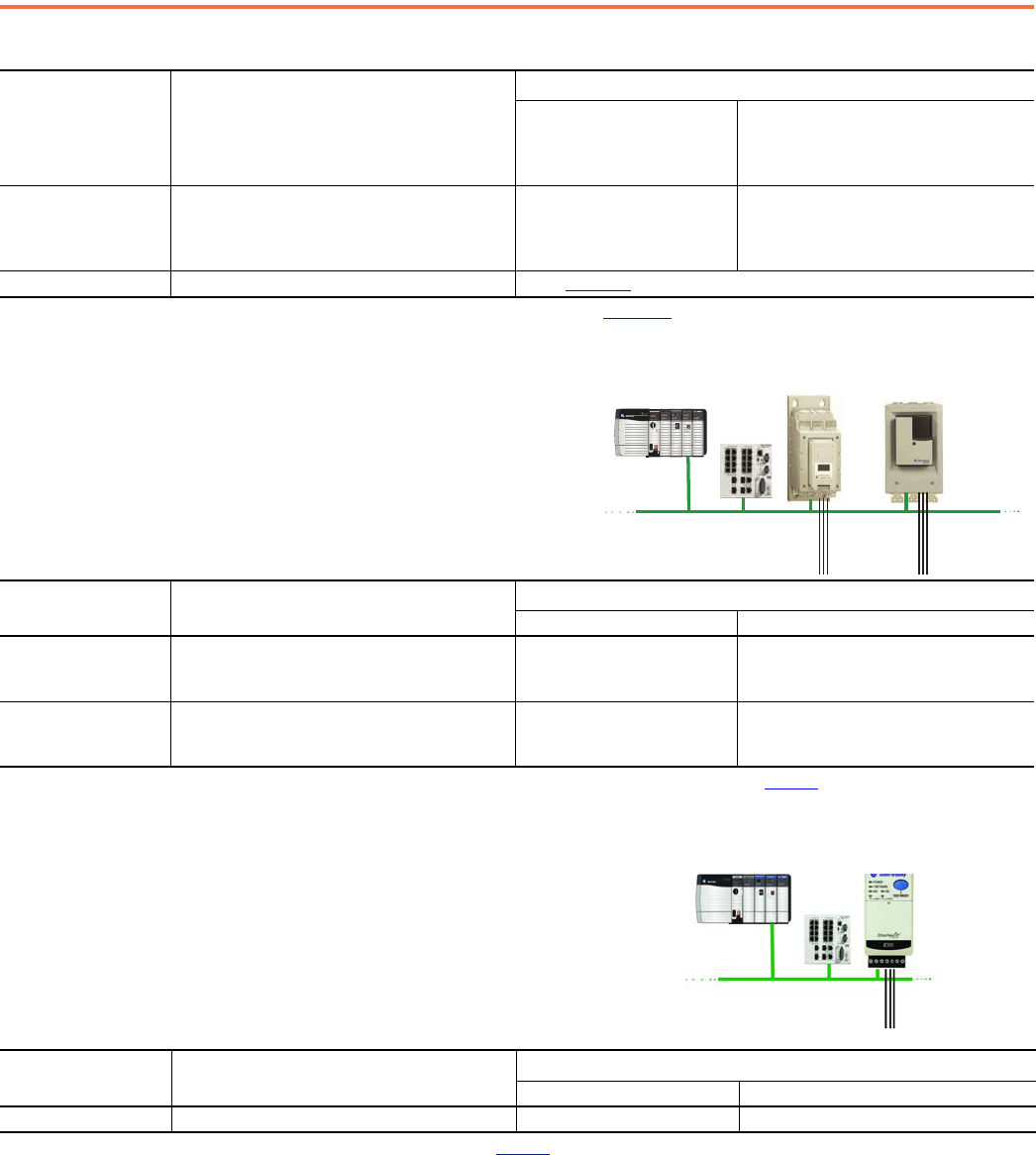
48 Rockwell Automation Publication PROCES-SG001T-EN-P - June 2024
Soft Starters
SMC™ Soft Starters are designed to help minimize cost by reducing overall
system power requirements and wear and tear on equipment. Our soft
starters can be easily integrated into your process control system to offer
higher productivity and shorter downtimes.
Across-the-line Starters
Our light industrial IEC starters are environmentally friendly, versatile, and flexible.
Our heavy-duty NEMA starters are renowned for a more-rugged construction,
more dependable performance, and longer electrical life. In addition, this portfolio
offers Electronic Overload Relays that provide integration between the starters and
Logix controllers. The diagnostic capabilities of the overload relays help maximize
uptime for motor control in an automation system.
PF-6000T PowerFlex 6000
• 13TCOMME
• 13TCOMMP
• 13TCOMMPN1, 13TCOMMPN2
• 13TMLXH, 13TMLXM, 13TMLXMP
• EtherNet/IP
• PROFIBUS DPV1
• PROFINET Communication Adapters
• Modbus Communication Adapters
PF-7000 / PF-7000A / PF-
7000L
PowerFlex 7000
• 13COMMER
• 13COMME
• 13COMMP
• 13COMMH, 13COMMM
• Dual EtherNet/IP
• EtherNet/IP
• PROFIBUS
• Modbus Communication Adapters
SEL-710-5 Motor Protection Relay See the SELwebsite
or your Rockwell Automation representative or more information.
(1) For a complete list of catalog numbers, see the PowerFlex Medium Voltage AC Drives Selection Guide, publication PFLEX-SG003.
Table 46 - SMC Soft Starters and Communication Modules
Cat. No.
(1)
(1) For additional product information, see the Smart Motor Controllers – SMC™-3, SMC™ Flex, and SMC-50 Soft Starters Family Brochure, publication 150-BR144.
Description
Available Communication Modules
(1)
Cat. No. Description
150-F SMC™ Flex Smart Motor Controllers
• 20-COMM-D
• 20-COMM-E
• 20-COMM-ER
• DeviceNet communication adapter
• EtherNet/IP communication adapter
• Dual-port EtherNet/IP communication adapter
150-S SMC™-50 Solid-state Smart Motor Controllers
• 20-COMM-D
• 20-COMM-E
• 20-COMM-ER
• DeviceNet communication adapter
• EtherNet/IP communication adapter
• Dual-port EtherNet/IP communication adapter
Table 47 - Electronic Overload Relays and Communication Modules
Cat. No.
(1)
(1) For additional product information, see the Motor Protection Solutions Brochure, publication 193-BR029.
Description
Available Communication Modules
(1)
Cat. No. Description
193/592-E300 E300™ Electronic Overload Relays 193-ECM-ETR EtherNet/IP communication module
Table 45 - Medium Voltage Drives and Relays
Drive Cat. No.
(1)
Description
Available Communication Modules
(1)
RUN
SD
OKFORCE
Logix5575
EtherNet/IP™
EtherNet/IP Network
SMC Flex SMC-50
EtherNet/IP Network
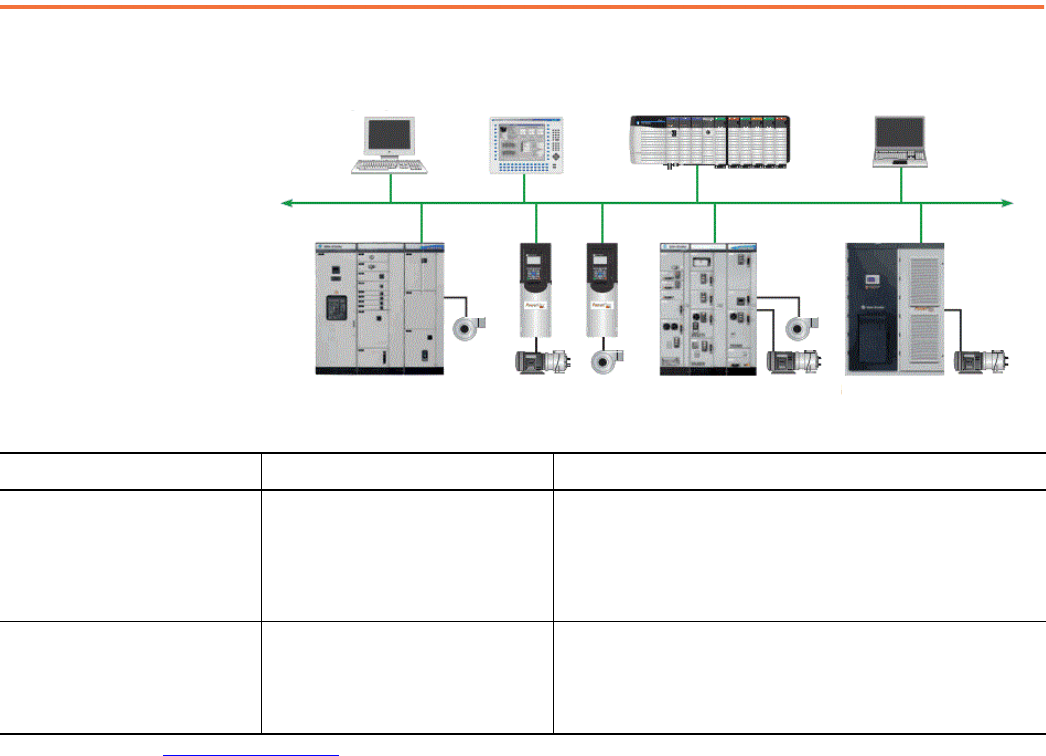
Rockwell Automation Publication PROCES-SG001T-EN-P - June 2024 49
Motor Control Centers
As an alternative to wiring each
device individually, Rockwell
Automation offers low-voltage
motor control centers (MCC). The
MCCs feature a rugged, high-
performance packaging solution for
all your motor control needs that
integrate control and power in one
centralized location.
CENTERLINE® MCCs are available
with safety options that help reduce
exposure to electrical hazards and
arc flash mitigation and
containment.
Table 48 - Low Voltage Motor Control Centers
Category
(1)
(1) For more information, see Low Voltage Motor Control Centers.
Cat. No. Description
CENTERLINE 2100 MCC 2100
• Designed to meet UL and NEMA standards
• Allen-Bradley motor control devices: starters, soft-starters, and drives
• Available with SecureConnect™ units
• ArcShield™ arc-resistant enclosures available
• EtherNet/IP and DeviceNet networking
• IntelliCENTER® software
CENTERLINE 2500 MCC 2500
• Designed to meet IEC standards
• Allen-Bradley motor control devices: starters, soft-starters, and drives
• ArcShield™ arc-resistant enclosures available
• EtherNet/IP and DeviceNet networking
• IntelliCENTER software
EWS Control Room HMI Controller Maintenance PC
EtherNet/IP Network
CENTERLINE 2500 MCC
PowerFlex Drives CENTERLINE 2100 MCC Medium Voltage Equipment
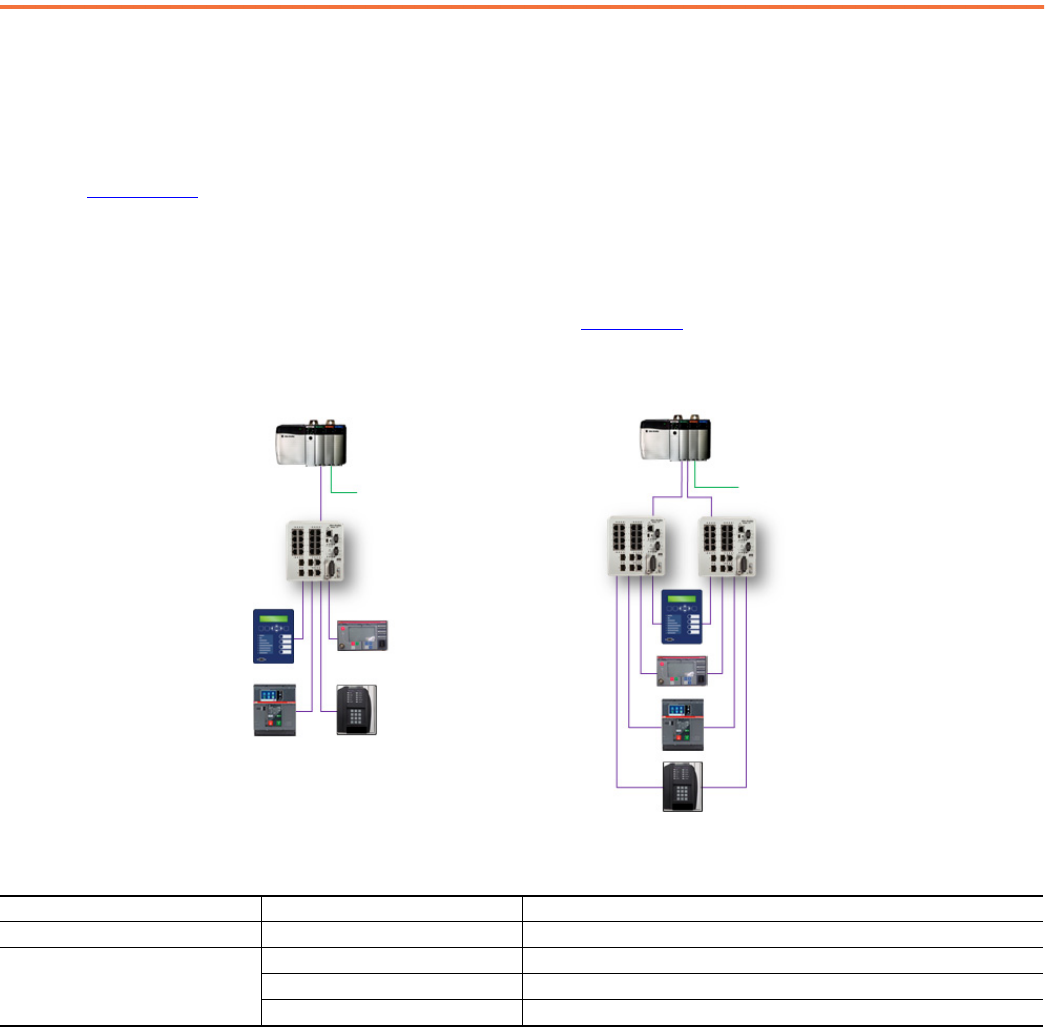
50 Rockwell Automation Publication PROCES-SG001T-EN-P - June 2024
Electrical Protection Devices
The ProSoft MVI56E-61850C is an in-chassis communication module that connects Intelligent Electronic Devices (IEDs) communicating on IEC 61850
to the process automation equipment communicating on EtherNet/IP. The IEC 61850 communication module allows users to have complete control,
visualization and reporting across their entire PlantPAx system.
Refer to the ProSoft website
for more information.
Additionally, PlantPAx fully supports the Library of Electronic Protection Devices. The Library of Electronic Protection Devices includes vendors such
as Schweitzer Engineering Lab, ABB, GE and Allen-Bradley Intelligent Electronic Devices. The library contains Add-on Instructions, Global Objects and
graphics that allows the user to easily integrate the control and visualization of IEDs into a power single line diagram.
Refer to Rockwell Automation Library of Electronic Protection Devices, publication PROCES-RM211
for more information.
IEC 61850 Module
Category Cat. No. Description
IEC 61850 module ProSoft MVI56E-61850C Prosoft In-Chassis IEC 61850 Communication Module
IEC 61850 additional components
1756-EN4TR In-Chassis Ethernet/IP Communication Module
Stratix 5400/5800 Network switch for IEC 61850 protocol
ControlLogix 5580 Controller required for IEC 61850 module (v32 or greater)
Chassis with MVI56E-
61850C and 1756-
EN4TR modules
EtherNet/IP Network
IEC 61850
Network
IEC 61850 Devices
Chassis with MVI56E-
61850C and 1756-
EN4TR modules
EtherNet/IP Network
IEC 61850
Network (PRP)
IEC 61850 Devices
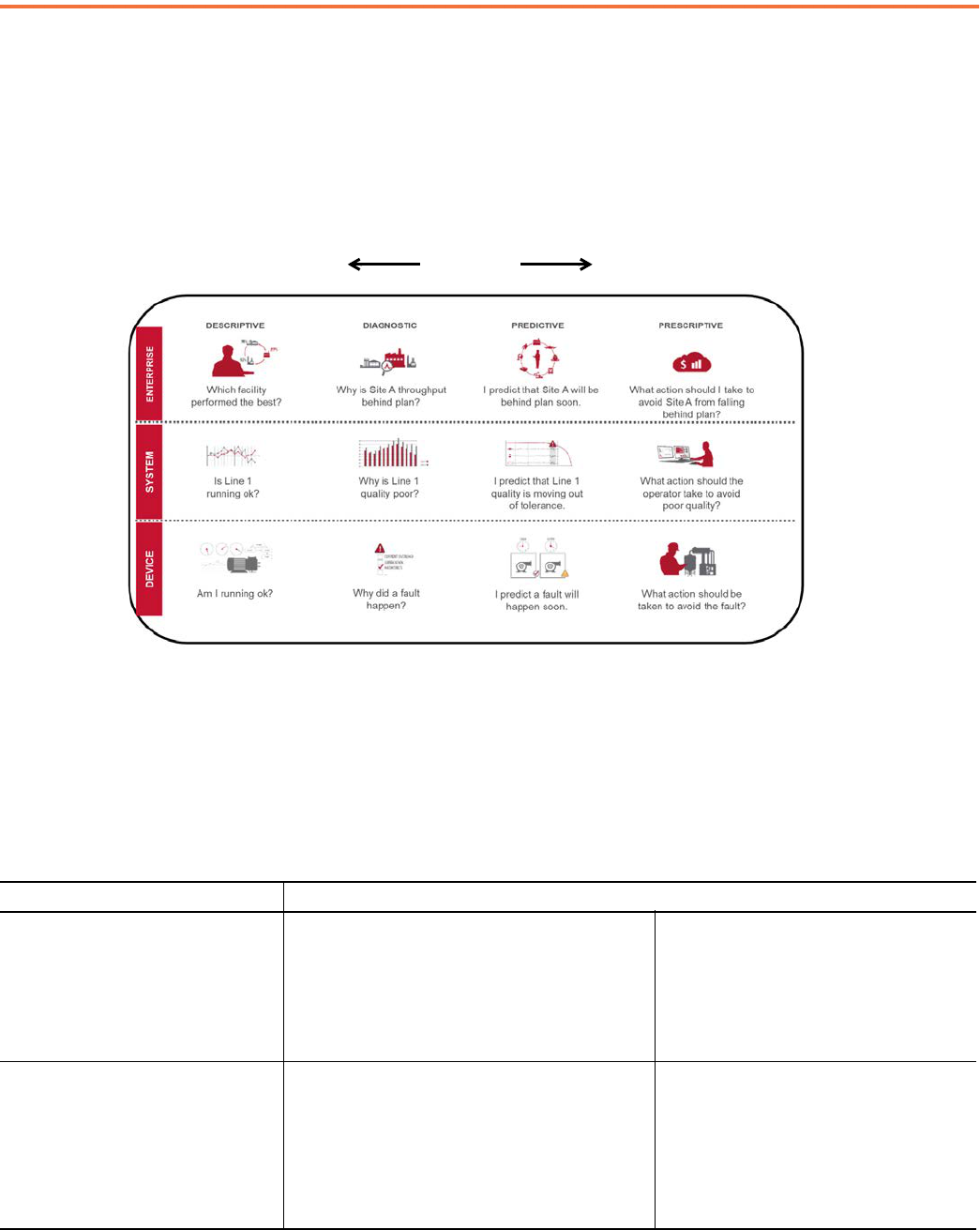
Rockwell Automation Publication PROCES-SG001T-EN-P - June 2024 51
Reporting and Analytics
Analytics is the discovery, interpretation, and communication of meaningful patterns in data. Analytics relies on the application of statistics,
computer programming, and operations research to quantify performance.
Analytics provides methods to measure our performance and then provide feedback for continuous improvement. Analytics drive business value,
regardless of the industry, by helping to:
• bring a product to market faster
• lower the total cost of ownership because of more effective maintenance
• improve asset utilization by maximizing the throughput
IIoT Data Enablement Options
To enable IOT applications with the critical data from the PlantPAx DCS, users need to utilize gateways that can pull data from the various data
sources. PlantPAx offers multiple options to enable this data flow.
Option Description
FactoryTalk Optix
While FactoryTalk Optix is known as an HMI solution, PlantPAx
support will initially utilize it as a platform to connect,
contextualize and egress data. There are many ingress and
egress options available including OPC UA.
PlantPAx specific support:
• EventQ Add on enables the capture of controller-based events
to be used in Standard PlantPAx report
Type: IIoT Data Enablement Software
Environment: Software on Premise
Requirements:
• Software Licenses available via the subscription
portal
FactoryTalk Linx Gateway
FactoryTalk Linx Gateway software provides data from the
PlantPAx FactoryTalk Linx servers as a OPC UA Server. It
integrates with IIoT applications that are configured as a OPC UA
Client for live PlantPAx DCS data.
PlantPAx specific support:
• Enables the connection from FactoryTalk Linx to ThingWorx
OPC Aggregator for live DCS data.
Type: IIoT Data Enablement Software
Environment: Software on Premise
Requirements:
• Software Licenses available via the subscription
portal
Basic Analytics Advanced Analytics
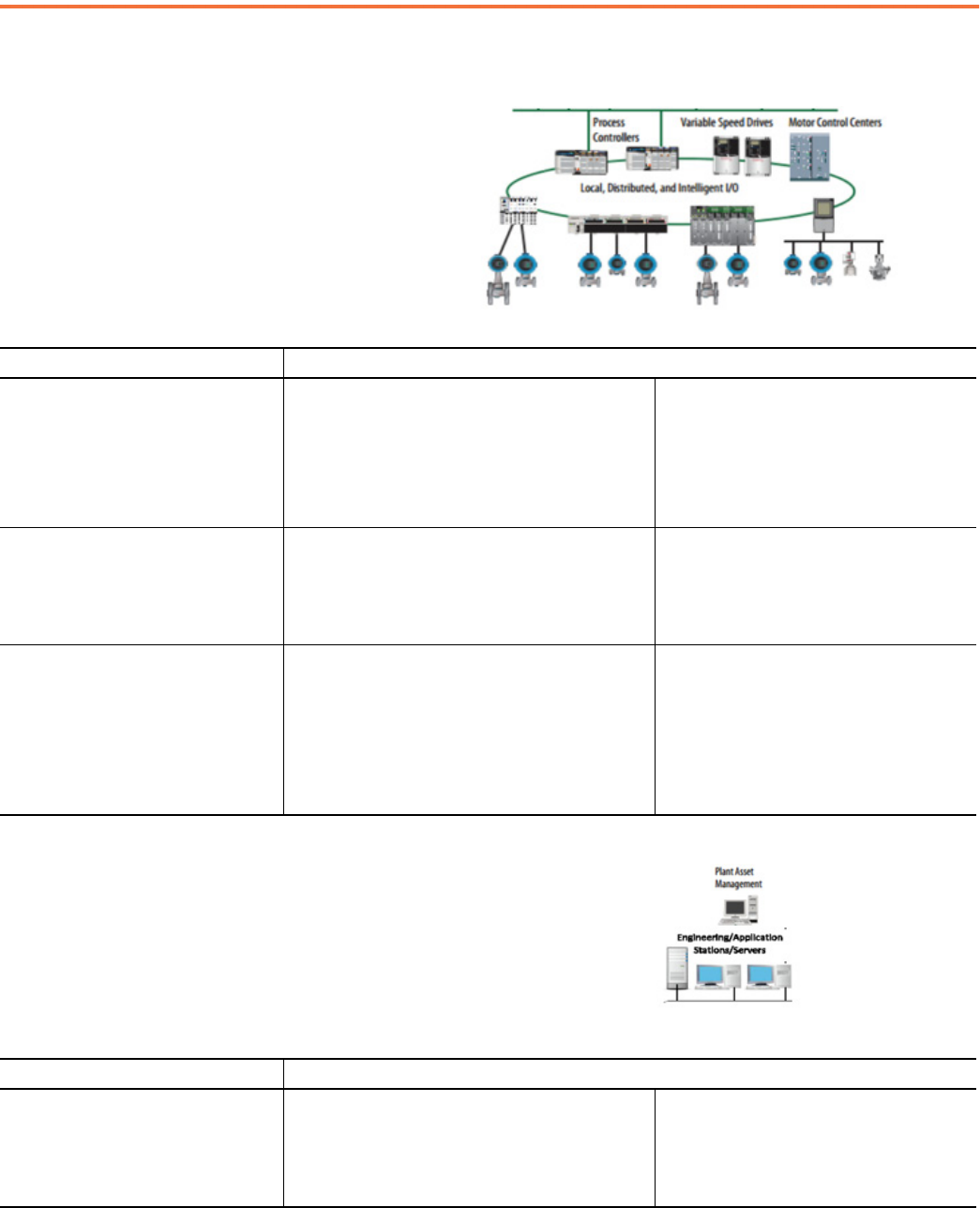
52 Rockwell Automation Publication PROCES-SG001T-EN-P - June 2024
Device Level Options
Allen-Bradley products have device-level diagnostics built in,
such as fault and alarm codes for use in fault routines. Other
products provides predictive and prescriptive analytics at the
device-level of the architecture.
Device-level analytics provide:
• Streaming analysis
• Runtime deployment
• Device data generation
Products that provide device-level analytics include:
System Level Options
System-level analytics provide:
• Data management, and transformation
• Model training and deployment
• Pattern extractions
FactoryTalk products that add system-level analytics include:
Option Description
FactoryTalk® Analytics™ LogixAI®
An embedded analytics software that enables controls engineers
to apply models to make predictions in ControlLogix applications.
Automated modeling capabilities that enable predictive
capabilities in the controller.
Type: Diagnostic, Predictive
Environment: ControlLogix chassis
Available via the subscription portal
Requirements:
• 1756M-FTALGXAIT11M FactoryTalk Analytics LogixAI
appliance
PlantPAx MPC
Model Predictive Control embedded in ControlLogix systems
• Multi-variable in and multi-variable out
• Predictive control
• Reduction in variability
Type: Predictive, Prescriptive
Environment: ControlLogix chassis
Requirements:
• 1756-PPMPC or 9529-PPMPCENM module
APC Function Blocks
You can use APC function blocks in place of PID instructions for
loops with long dead-times and interacting loops. The APC
function blocks are licensed, run on the EWS, and require the
Studio 5000 Logix Designer application.
• Internal model control (IMC) to control one process variable
• Coordinated control (CC) to control one process variable with
up to three control variables
• Modular mulitvariable control (MMC) to control two process
variables with up to three control variables
Type: Predictive, Prescriptive
Environment: Logix 5000 function blocks
Requirements:
• 9324-RLDAPCENE for first controller
• 9324-RLDAPCCLENE for subsequent controllers
Option Description
Pavilion8®
Provides closed-loop, prescriptive analytics to maximize process
performance in quality, throughput and efficiency.
• Model-based advanced, dynamic control drives stable
performance
• Integrated MPC, calculation, and soft sensor visualization and
performance reporting
Type: Predictive, Prescriptive
Environment: Server based
Requirements:
• Pavilion8 software
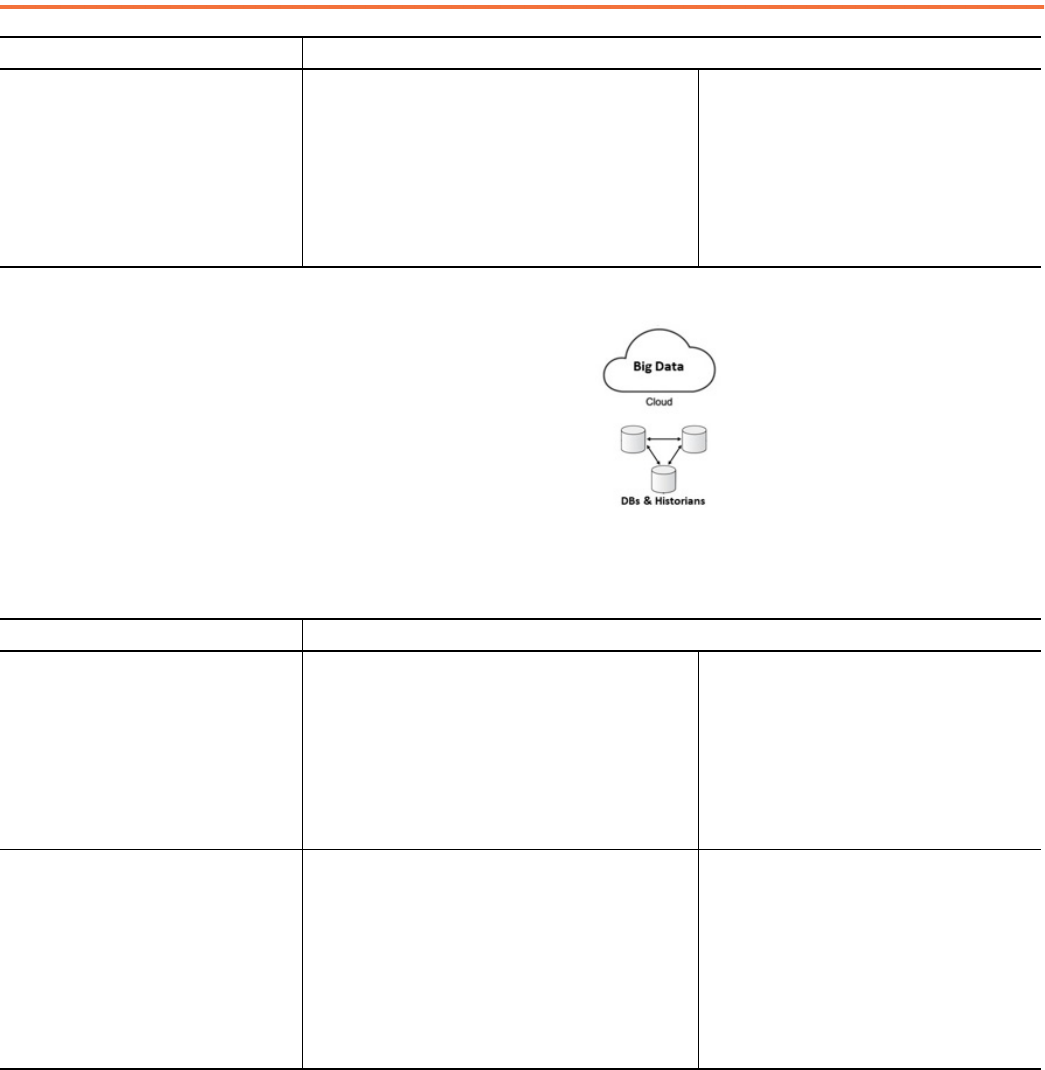
Rockwell Automation Publication PROCES-SG001T-EN-P - June 2024 53
Enterprise-Level Options
Enterprise-level analytics provide:
• Data visualization
• Data mining
• Enterprise resource planning
• Model training
• Model operationalization
• Pattern extraction
FactoryTalk products that add enterprise-level analytics include:
FactoryTalk® Analytics Edge ML
(also applicable at enterprise level)
A machine learning application that provides expert-driven data
analytics within the plant, where low latency is a requirement.
• Helps make decisions as close as possible to the data
• Reduce loads on controllers by off-loading data preprocessing
• Reduces deployment time costs
• Out-of-box connectivity reduces design time
Type: Predictive
Environment: Server based
Part of the FactoryTalk Analytics; available via the
subscription portal
Requirements:
• FactoryTalk Analytics Edge ML base bundle
or
• FactoryTalk Analytics Platform base bundle
Option Description
FactoryTalk Analytics Edge ML
(also applicable at system level)
A machine learning application that provides expert-driven data
analytics within the plant, where low latency is a requirement.
• Helps make decisions as close as possible to the data
• Reduce loads on controllers by off-loading data preprocessing
• Reduces deployment time costs
• Out-of-box connectivity reduces design time
Type: Predictive
Environment: Server based
Part of the FactoryTalk Analytics; available via the
subscription portal
Requirements:
• FactoryTalk Analytics Edge ML base bundle
or
• FactoryTalk Analytics Platform base bundle
Vuforia® Augmented Reality
An industrial augmented reality platform that can improve
workforce efficiency and customer satisfaction with real-time,
step-by-step work instructions and data.
• Work instructions become handsfree and are delivered in real
time where assembly or field service take place.
• Tribal knowledge of experienced workers is captured and
shared with new workers and service technicians.
• Remote expertise can be delivered to workers no matter where
they are in the world.
Type: Descriptive, Diagnostic
Environment: Cloud-based
Part of the FactoryTalk® InnovationSuite
Bulletin 95057C; available via the subscription portal
Requirements:
•Vuforia Engine software
• Vuforia Studio software
• Vuforia Chalk software
• Vuforia Expert Capture software
Option Description
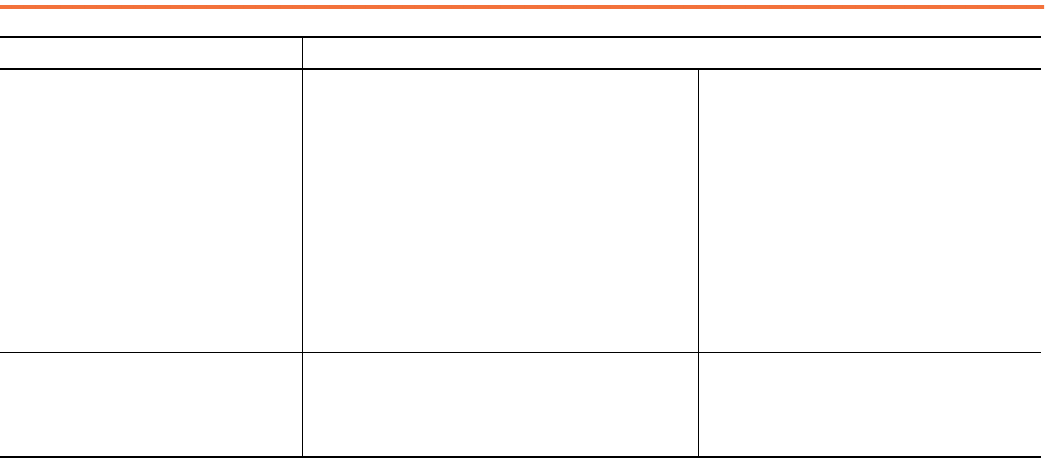
54 Rockwell Automation Publication PROCES-SG001T-EN-P - June 2024
ThingWorx® Industrial IoT platform
An integrated, secure solution to minimize risk, reduce IT burden,
and maximize value from the software investment.
ThingWorx industrial connectivity provides data access for client
applications such as MES and SCADA and IoT and Big Data
analytics software. It leverages OPC and IT-centric
communication protocols to provide one source of industrial
data. Supported protocols include proprietary protocols
(including GE NIO, SuiteLink/FastDDE, and Splunk), IT protocols
(including MQTT, REST, ODBC, and SNMP), and flow measurement
export to common oil and gas industry formats.
ThingWorx industrial connectivity provides one solution to collect,
aggregate, and securely access industrial operations data.
Connect, manage, monitor, and control diverse automation
devices and software applications through one intuitive user
interface.
Type: Descriptive, Diagnostic, Predictive, Prescriptive
Environment: Cloud-based
Part of the FactoryTalk Innovation Suite
Bulletin 95057C; available via the subscription portal
Requirements:
• ThingWorx platform software
-Asset Advisor
- Operator Advisor
- Production Advisor
- ControlAdvisor
• ThingWorx Industrial Connectivity software
PlantPAx Analytics
PlantPAx Analytics is a Rockwell Automation solution built on
FactoryTalk DataMosaix. PlantPAx Analytics delivers alarm &
event KPI dashboards and reports in a single enterprise solution.
Combine one or multiple site's data to unlock the full value of
your process data.
Requirements:
FactoryTalk DataMosaix Standard or Enterprise
Subscription
PlantPAx Analytics Subscription
PlantPAx 5.0 or later system
Option Description
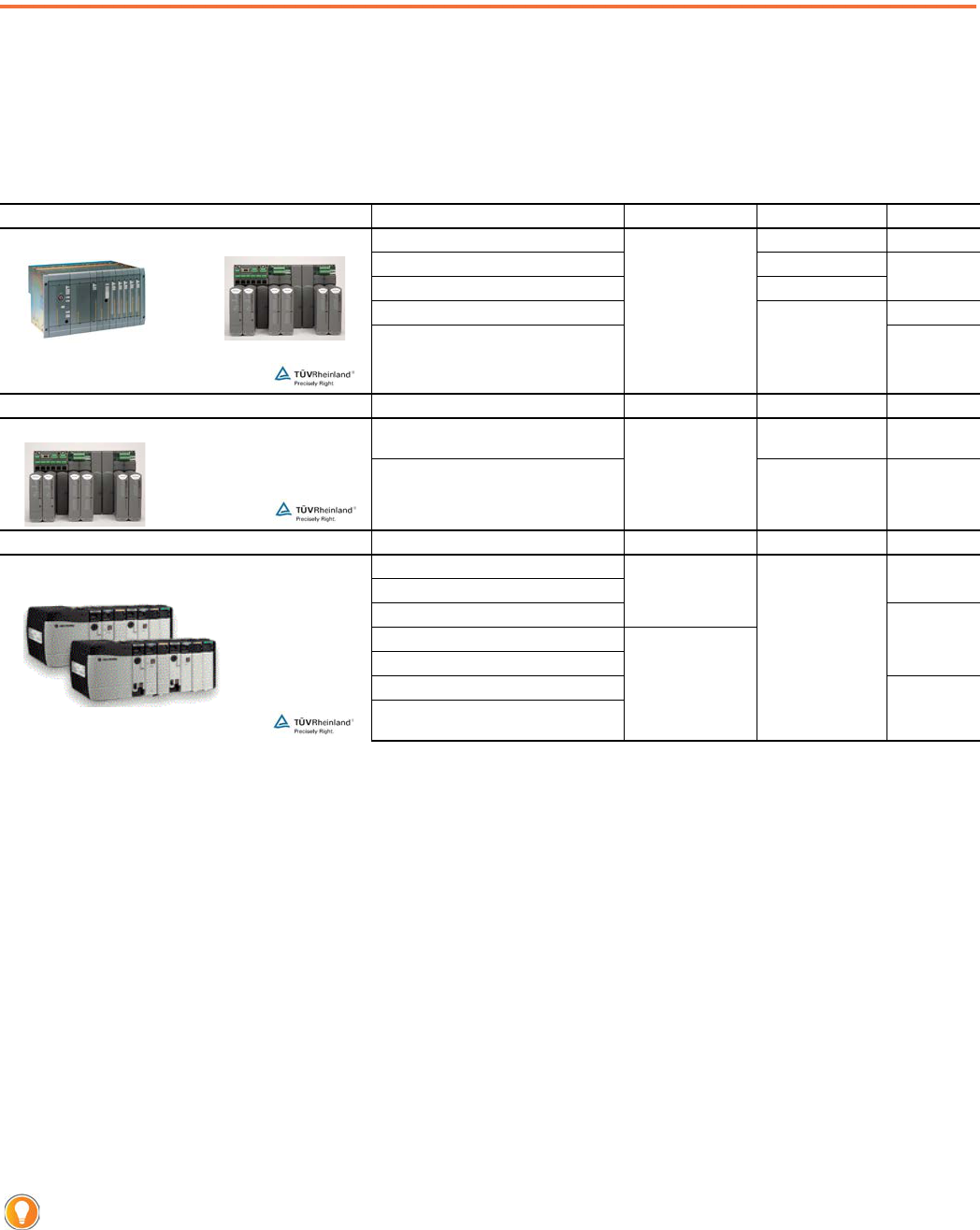
Rockwell Automation Publication PROCES-SG001T-EN-P - June 2024 55
Process Safety Systems
A process automation solution often includes the requirement for an integrated safety system as part of the overall Safety Instrumented System
(SIS) requirements for a process facility. The SIS logic solver is a separate but integrated technology that can use common or diverse technology to
meet the safety integrity needs for any process application.
The SIS logic solver requirements can include fault tolerance, fail-safe, or a mix of architecture and Safety Integrity Level (SIL) requirements. Fault
tolerance means that plant operation is maintained if a fault occurs, while fail-safe means that the SIS initiates a shutdown upon detecting a fault.
Safe, reliable systems safeguard people, property, the environment, and company or corporate reputations. Third-party certification for applying
technologies in applications up to a specific SIL level significantly reduces complexity when complying with national and international process
safety standards worldwide.
Process safety technology selection is based on functional and target SIL requirements, which are defined in the projects Safety Requirements
Specification (SRS). For example, if the SRS requirement is for the Safety Instrumented Function to fail safely upon a fault, you can select a fail-safe
only technology. If however, some level of fault tolerance is defined for your process safety system, you can select a fault tolerant technology.
There are different levels of fault tolerance available. For example:
• 1oo2d refers to a voting and degradation architecture where diagnostics are used to determine the validity of two values or states. When
both values are ‘healthy’, then either one out of the two (1oo2) available is used in the outcome of the safety instrumented function (SIF).
When one of the two values or states is determined to be ‘invalid’, then that value or state is no longer considered when determining the
outcome of the SIF. (The voting degrades to 1oo1, one out of the remaining good one). This dramatically reduces the spurious trip rate of a
basic 1oo2 architecture, while maintaining safety performance.
• 2oo3 refers to a voting and degradation architecture where comparison diagnostics are used to determine the outcome of the SIF. Two ‘out
of’ the three (2oo3) available values or states are required to determine the outcome of a SIF. This architecture, often referred to as Triple
Modular Redundancy (TMR), lets a failed value or state be ignored when resolving the SIF.
Table 49 - Typical SIL and Architecture System Requirements
Process Safety Platform Safety Application Architecture Typical SIL Range Demand
Emergency shutdown/SIS
Fault Tolerant
Up to SIL 3 Low/High
Fire and gas SIL 2
Low
High integrity pressure system SIL 3
Chemical processing
Up to SIL 3
High
Refining
Low/High
Process Safety Platform Safety Application Architecture Typical SIL Range Demand
Burner management
(continuous process)
Fault Tolerant
Up to SIL 3 High
Subsea
(1)
(1) The AADvance solution is available in a Eurocard format, qualified for Subsea production applications under ISO13628-6.
SIL 2 Low
Power generators
Process Safety Platform Safety Application Architecture Typical SIL Range Demand
Burner management (power and utilities)
Fail-safe
SIL 2
High
(2)
(2) ControlLogix controllers are limited to a demand rate not to exceed 10 demands per year. While this is a high demand rate, this solution possibly could not be suitable for high-demand applications.
Turbomachinery
Life sciences
LowMining
Fault Tolerant
Power equipment
Specialty chemical
Low/High
(2)
High Availability control systems
In addition to the comparison diagnostics, active diagnostics are also used to validate states and values that are used in the
outcome of the SIF.
Trusted
AADvance
AADvance
ControlLogix
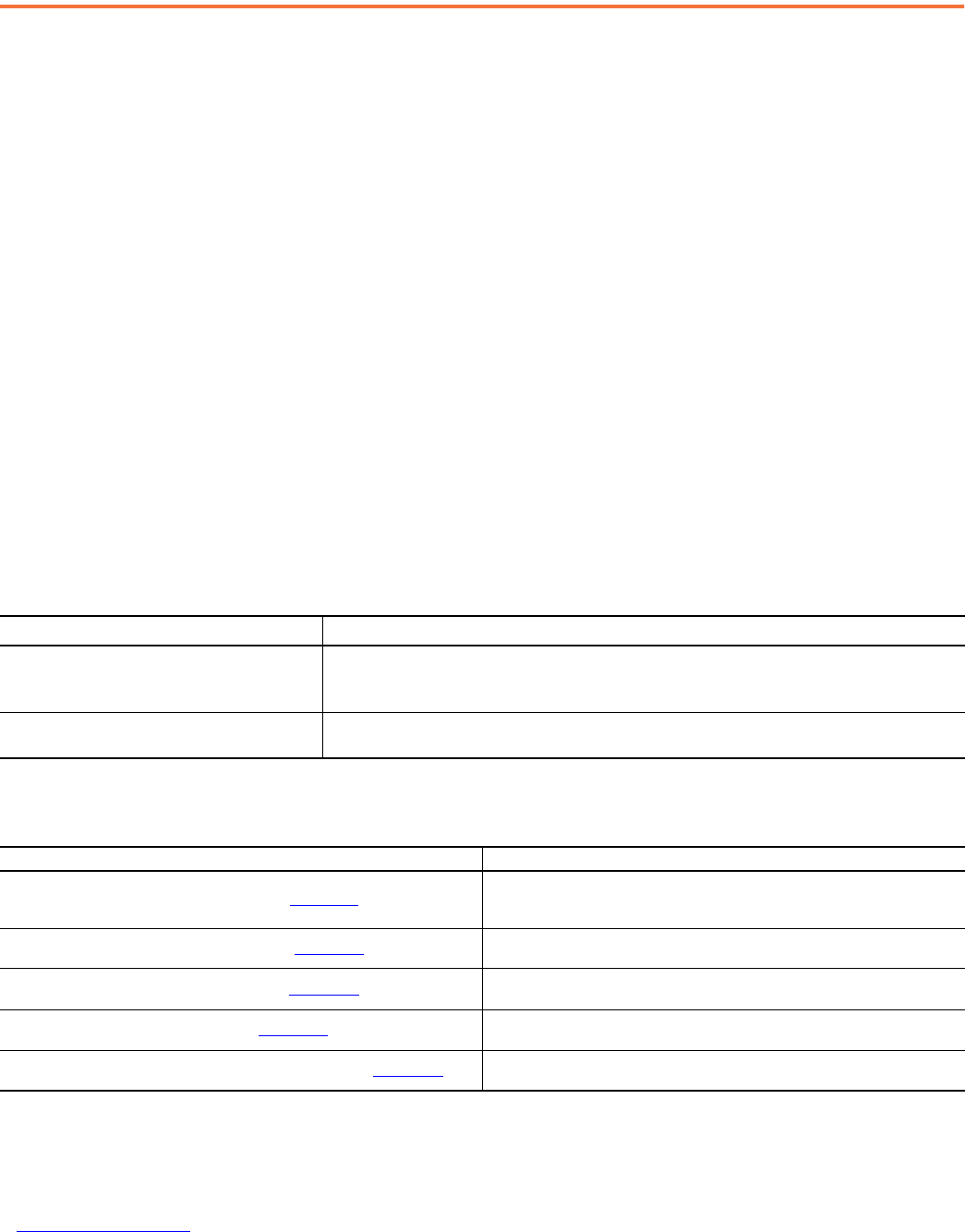
56 Rockwell Automation Publication PROCES-SG001T-EN-P - June 2024
ControlLogix SIL 2 Systems
ControlLogix supports process safety applications up to SIL 2 that require fault tolerance and redundancy. ControlLogix supports 1oo2d fault
tolerance with the 1715 I/O system. However, ControlLogix redundancy does not use a voting mechanism, rather it acts as a hot standby. The
components of the 1715 I/O system comprise a pair of partnered Ethernet adapters that communicate to ControlLogix controllers via an EtherNet/IP
network, and digital and analog I/O modules that are configurable in simplex and duplex modes.
The ControlLogix controller complies with the requirements of the relevant standards (SIL 2 according to IEC 61508) and can be used in low demand
applications up to SIL 2 according to IEC 61508). The instructions of the associated Safety Reference Manual and User Manuals are to be considered.
ControlLogix SIL 2 systems use the same programming software and data interfaces as used for process control on the PlantPAx system. The
hardware that is used for process safety must be dedicated for process safety applications. Specific hardware, firmware revisions, and software
versions are required to meet SIL certifications.
AADvance and Trusted SIL 2, SIL 3, and TMR Systems
Diverse SIS logic solvers use different hardware and software platforms for process safety applications than that used for process control on the
PlantPAx system. This approach is used to minimize common cause faults from influencing the overall safety integrity. Triple redundancy
minimizes the possibility of any single component failure to cause a spurious or spurious trip. Diverse process safety integrates with the basic
process control on the PlantPAx system by using CIP™ connectivity including profile support in the Studio 5000 Logix Designer application
(AADvance) or via OPC connectivity (AADvance or Trusted®).
Both the Trusted and AADvance systems share a common EtherNet/IP network within a PlantPAx system. In addition, AADvance and Trusted
support redundant Ethernet networks, while the AADvance system supports the CIP producer and consumer communication protocol.
SIL-rated Instruments
SIL-rated instruments are typically required for process safety loops. Rockwell Automation provides premier integration between ControlLogix
systems and Endress+Hauser SIL-rated instruments. For more details, see the Endress+Hauser website
at https://www.endress.com.
Table 50 - Diverse SIL 2 and SIL 3 Products
Category Description
AADvance system
• Configurable for SIL 2 and SIL 3
• Scalable redundancy for fault tolerance
• Simplex, duplex, or triplex configuration
Trusted system
Trusted technology uses 3-2-0 (3-2-2-0 optionally) fault-tolerant control to help eliminate spurious trips. Triple
modular redundancy (TMR) uses majority voting to identify a source of failure. Available with OPC or CIP integration.
Table 51 - Additional Resources
Resource Description
AADvance Controller Solutions Handbook, publication ICSTT-RM447
Explains the features, performance, and functionality of the AADvance controller and
systems. It sets out some guidelines on how to specify a system to meet your application
requirements.
AADvance Controller System Build Manual, publication ICSTT-RM448
Provides experienced panel builders with information on how to assemble a system,
switch on and validate the operation of a controller.
AADvance Controller Configuration Guide, publication ICSTT-RM405
Defines how to configure an AADvance controller by using the AADvance Workbench to
meet your Safety Instrument Function (SIF) application requirements.
AADvance Controller Safety Manual, publication ICSTT-RM446
Provides mandatory guidance on how to apply AADvance to meet various industry
standards and makes recommendations to apply AADvance in SIS applications safely.
AADvance Controller Troubleshooting and Repair Manual, publication ICSTT-RM406
Provides plant maintenance personnel with information on how to trace and repair a
fault in an AADvance system and perform routine maintenance tasks.

Rockwell Automation Publication PROCES-SG001T-EN-P - June 2024 57
PowerFlex SIL 2 and SIL 3 Systems
PowerFlex AC drives offer SIL ratings up to and including SIL 3. Specifically, the PowerFlex 525 AC drive offers Safe Torque Off (STO) as a standard
embedded feature with a safety rating of PLd/SIL2 Cat. 3. The PowerFlex 753 and 755 AC drives are available with optional STO functionality with a
safety rating of PLe/SIL3 Cat. 3. In addition, the PowerFlex 753 and 755 offer a Safe Speed Monitor option for applications that can benefit from
access to a safety zone while there is limited motion. The Safe Speed Monitor option has a rating of PLe/SIL3 Cat. 4.
PowerFlex STO functionality is designed to help safely remove power from the gate firing circuits of the output power devices (IGBTs). This
functionality helps prevent the output power devices from switching in the pattern necessary to generate AC power to the motor. PowerFlex AC
drives can be used in combination with other safety devices to satisfy the requirements of IEC 61508, IEC 61800-5-2 SIL 3, ISO 13849-1 PLe, and
Category 3 for STO.
For more information, see the PowerFlex Low Voltage AC Drives Selection Guide, publication PFLEX-SG002
.
OptiSIS Safety Integrated Systems
The OptiSIS® safety system uses an AADvance safety logic solver for a process safety solution that is ready to install and configure with no
programming required. OptiSIS lets you configure safety functions by using an intuitive Cause and Effect interface from the HMI display.
OptiSIS includes options for:
• Fail-safe or fault tolerant architectures
• Indoor or outdoor environments
• Floor and wall mount
• 50 or 100 I/O count
OptiSIS is a great solution for small process safety applications. In addition, if you have an existing process safety system (for example, an older
relay or legacy system) that can no longer be maintained, OptiSIS can provide a cost-effective and short delivery replacement.
For more information, see the OptiSIS Packaged Solution Profile, publication 1711-PP006
.

58 Rockwell Automation Publication PROCES-SG001T-EN-P - June 2024
Notes:

Rockwell Automation Publication PROCES-SG001T-EN-P - June 2024 59
PlantPAx Distributed Control System Selection Guide
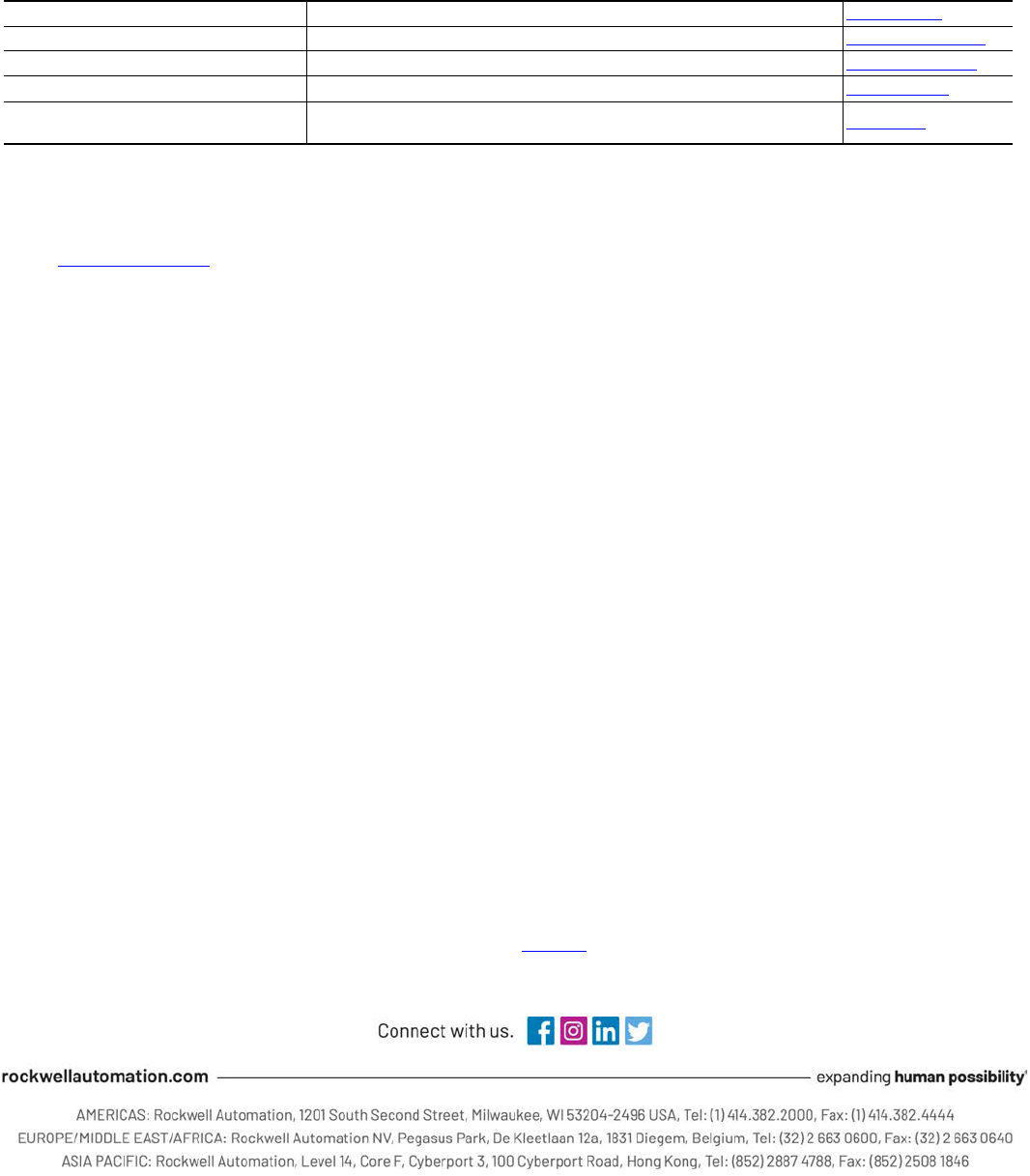
Publication PROCES-SG001T-EN-P - June 2024
Supersedes Publication PROCES-SG001S-EN-P - August 2023 Copyright © 2024 Rockwell Automation, Inc. All rights reserved. Printed in the U.S.A.
Rockwell Automation Support
Use these resources to access support information.
Documentation Feedback
Your comments help us serve your documentation needs better. If you have any suggestions on how to improve our content, complete the
form at rok.auto/docfeedback.
Technical Support Center Find help with how-to videos, FAQs, chat, user forums, and product notification updates. rok.auto/support
Knowledgebase Access Knowledgebase articles. rok.auto/knowledgebase
Local Technical Support Phone Numbers Locate the telephone number for your country. rok.auto/phonesupport
Literature Library Find installation instructions, manuals, brochures, and technical data publications. rok.auto/literature
Product Compatibility and Download Center
(PCDC)
Download firmware, associated files (such as AOP, EDS, and DTM), and access product release
notes.
rok.auto/pcdc
Rockwell Automation maintains current product environmental compliance information on its website at rok.auto/pec.
Allen-Bradley, ArcShield, ArmorPOINT, ASEM, CENTERLINE, Compact 50
00, CompactLogix, ControlLogix, Dynamix, Encompass, E300, eProcedure, FactoryTalk, FactoryTalk Analytics for Devices, FactoryTalk
Analytics Augmented Modeler, FactoryTalk Analytics DataExplorer, Display Server, FactoryTalk Analytics DataFlowML, FactoryTalk Analytics DataView, FactoryTalk Analytics LogixAI, FactoryTalk Network
Manager, FactoryTalk PolicyManager, FLEX I/O, FLEX 5000, FLEXHA 5000, Integrated Architecture, IntelliCENTER, Logix 5000, OptiSIS, PanelView, Pavilion8, PhaseManager, PlantPAx, POINT Guard I/O, POINT
I/O, PowerFlex, Product Selection Toolbox, SecureConnect, SequenceManager, SMC, Stratix, Studio 5000, Studio 5000 Logix Designer, ThinManager, Trusted, VersaView, VersaVirtual are trademarks of
Rockwell Automation.
Catalyst and Cisco are trademarks of Cisco Systems, Inc.
Microsoft, Excel, and Windows are trademarks of Microsoft Corporation.
CIP, CIP Security, CIP Sync, ContolNet, DeviceNet, EtherNet/IP are trademarks of ODVA, Inc.
ThingWorx and Vuforia are trademarks of PTC.
Trademarks not belonging to Rockwell Automation are property of their respective companies.
Rockwell Otomasyon Ticaret A.Ş. Kar
Plaza İş Merkezi E Blok Kat:6 34752, İçerenköy, İstanbul, Tel: +90 (216) 5698400 EEE Yönetmeliğine Uygundur
